
VISA TYPES: ( Issued by Embassy of Nepal )

Procedures for applying visa:
All the individuals intending to travel to Nepal need to submit online application for the visa in the portal of the Department of Nepal Immigration.
- For online application from Nepali Missions abroad , please go through the following link: https://nepaliport.immigration.gov.np/onlinevisa-mission/application
- For online application before arriving in Nepal from Nepal Immigration , please go through the following link: https://nepaliport.immigration.gov.np/online and online application after arriving in Nepal from Nepal Immigration , please go through the following link: https://nepaliport.immigration.gov.np/ and apply at the Visa-On Arrival section.
- The printed copy of the visa form generated online need to be submitted at the Embassy along with the hard copy of the passport and its photocopy, visa copy of India/copy of the relevant document.
- The required fee should be paid in local currency at the Embassy.
- After following the due procedures, the Embassy will issue the appropriate visa to the applicant. For tracking the status of the visa application, follow the link: https://nepaliport.immigration.gov.np/visa-application-track
- Please go through the following link for more information on Nepali tourist visa: https://in.nepalembassy.gov.np/visa/
- Please go through the following link for further information on Nepali immigration: https://www.immigration.gov.np/
- For any queries on the issues related to Nepali visa, please kindly contact the Consular Section of the Embassy at phone no. 01123476212, +232, +221.
TOURIST VISA FEE
VISA FOR INDIAN NATIONALS:
Effective from 1st October 2000 an Indian citizen over the age of 10 years travelling between India and Nepal by air would have to keep in his possession any of the following documents to establish his/her identity as an Indian citizen.
- Valid Indian passport; or,
- Voter ID issued by the Government of India.
- Emergency certificate issued by the Embassy of India in Nepal.
VISA FOR OTHER NATIONALS:
Nationals of other countries can apply for visa at any of the Nepalese missions abroad. Visa can also be acquired from the points of entry into Nepal.
However, nationals of the following countries should get visa prior to their arrival in Nepal:
- Afghanistan
VISA FOR NATIONALS OF SAARC COUNTRIES:
Nationals from SAARC countries other than India will be issued gratis visa for up to 30 days for the first time in a year.
DOCUMENTS TO BE SUBMITED BY HOLDER OF REFUGEE TRAVAL DOCUMENT WHILE APPLYING NEPALESE VISA:
- 3. If you are visiting Nepal to meet your relatives, please provide the following details:
- i. Name of relative
- ii. Address of relative
- iii. Nationality of your relative
- Copy of the Travel Document.
Update April 12, 2024
Information for u.s. citizens in the middle east.
- Travel Advisories |
- Contact Us |
- MyTravelGov |
Find U.S. Embassies & Consulates
Travel.state.gov, congressional liaison, special issuance agency, u.s. passports, international travel, intercountry adoption, international parental child abduction, records and authentications, popular links, travel advisories, mytravelgov, stay connected, legal resources, legal information, info for u.s. law enforcement, replace or certify documents.
Before You Go
Learn About Your Destination
While Abroad
Emergencies
Share this page:
Travel Advisory December 18, 2023
Nepal - level 2: exercise increased caution.
Reissued after periodic review with updates to risk indicators and "if you decide to travel" section.
Exercise increased caution in Nepal due to the potential for isolated political violence .
Country Summary: Political demonstrations intended to be peaceful can sometimes escalate into violence and may be met with force by Nepali authorities.
Read the country information page for additional information on travel to Nepal.
If you decide to travel to Nepal:
- Avoid demonstrations and crowds.
- Do not trek or climb alone. The Government of Nepal requires solo or foreign independent trekkers (FITs) to use a local guide or porter while trekking in Nepal's official national parks and protected areas.
- Review the Adventure Travel Page before your trip.
- Enroll in the Smart Traveler Enrollment Program ( STEP ) to receive Alerts and make it easier to locate you in an emergency.
- Follow the Department of State on Facebook and Twitter .
- Review the Country Security Report for Nepal.
- Visit the CDC page for the latest Travel Health Information related to your travel.
- U.S. citizens who travel abroad should always have a contingency plan for emergency situations. Review the Traveler’s Checklist .
Embassy Messages
View Alerts and Messages Archive
Quick Facts
Must have six months remaining validity or more at time of entry.
At least one blank visa page (not endorsements page) required for entry visa.
COVID-19 vaccination/negative PCR test report is not required (Effective May 26, 2023)
US $5,000; Pure/raw/unworked gold and silver are strictly prohibited; Worked gold/jewelry up to 50 grams and worked silver/jewelry up to 100 grams are allowed. Indian currency in denominations greater than 100 rupees notes.
US $5,000; Pure/raw/unworked gold and silver are strictly prohibited; Worked gold/jewelry up to 50 grams and worked silver/jewelry up to 100 grams are allowed; Indian currency in denominations greater than 100 rupees notes. Nepalese currency no more than Rs. 5000.
Embassies and Consulates
U.s. embassy kathmandu.
Maharajgunj Kathmandu, Nepal Telephone: +(977)(1) 423-4000 or 423-4500 Emergency After-Hours Telephone: +(977)(1) 400-7266 Email: [email protected]
Destination Description
Learn about the U.S. relationship to countries around the world.
Entry, Exit and Visa Requirements
STRONGLY RECOMMEND: No Solo Trekking; Follow Medical Advice regarding High Altitude Mountain Sickness; Review customs policies prior to travel
The Department of Immigration rescinded all previously issued orders regarding country-specific travel limitations. All travelers regardless of vaccine status can receive on-arrival visas at the port of entry. Amendments to existing orders and new orders may be promulgated with little notice. Please continue to monitor this space and local media for additional information.
Effective May 26, 2023, travelers entering Nepal from abroad by air or land are no longer needed to submit certificate of full vaccination against COVID-19. A negative PCR test report for COVID-19 is not required.
Quarantine is currently not required for travelers regardless of their vaccine status, nationality, or recently visited locations.
Travelers departing Nepal by air are subject to health protocols of their destination country only. The airlines are responsible for ensuring passengers meet requirements of destination countries. Please consult with your airlines prior to your arrival and departure from Nepal. Please check with your airline regarding future flight availability and any necessary flight re-bookings. Operation of cargo flights, rescue flights, and evacuation flights will be carried out subject to special permission.
Requirements for Entry:
- Passport must have six months or more validity remaining at the time of entry
- One blank visa page available in passport for visa (not endorsements page)
- Nepali authorities generally allow entrance on an emergency passport printed overseas
- Visa appropriate for purpose of travel
Customs: International travelers arriving and departing Nepal via international airport(s) are permitted to no more than one of the following personal items:
- Electronic tablet/laptop, video camera, and camera
- Portable music system
- Perambulator or tricycle
- Cellular mobile phone
- Pure/raw/unworked gold and silver are strictly prohibited to carry through ports of entry. Worked gold / jewelry up to 50 grams and worked silver/ jewelry up to 100 grams
- Items for professional use, including drones (check in advance with the Nepal Department of Customs)
Regular Tourist Visas:
- If you will arrive by air, either apply for a tourist visa at a Nepalese embassy or consulate before traveling or purchase a tourist visa upon arrival at Tribhuvan International Airport in Kathmandu. NB: Pre-arrival visas are subject to availability. Check with the nearest Nepalese embassy or consulate for current availability.
- For an online visa application form , see https://online.nepalimmigration.gov.np/tourist-visa . Note that obtaining a visa on arrival may take several hours.
- If you will arrive by land , you are responsible both for obtaining a visa and going through the necessary immigration formalities. U.S. citizens may not be stopped by border officials in either direction to process immigration and visa documentation. Consequences for non-compliance are severe and have included lengthy prison sentences and large fines.
- When crossing by land into Nepal, U.S. citizens should carry U.S dollar bills to pay their Nepali visa fee. U.S. citizens travelling by land from India to Nepal should be aware that Nepali visa fees must be paid in cash in U.S. dollars. Credit cards or other currencies will not be accepted. All U.S. bills must be new (no older than 2003) and in good condition (no tears, excessive wear, creases, visible repairs, etc.) Individuals crossing the border by foot are provided 24 hours service.
- If you do not have a visa and do not receive an entry stamp from an immigration officer, you will not be allowed to depart Nepal and may face additional consequences.
- U.S. citizens can purchase an on-arrival tourist visa at the following land border points of entry:
- Pashupati Nagar, Jhapa District (Eastern Nepal, currently closed)
- Kakarvitta, Jhapa District (Eastern Nepal, currently closed)
- Biratnagar, Morang District (Southeastern Nepal, only arrival; No Departure)
- Birgunj, Parsa District (Central Nepal, arrival and departure)
- Belahiya, Bhairahawa, Rupandehi District (Southern Nepal, arrival and departure)
- Jamunaha, Nepalgunj, Banke District (Mid-West Nepal, currently closed)
- Mohana, Dhangadi, Kailali District (Southwest Nepal, currently closed)
- Gadda Chauki, Mahendranagar Kanchanpur District (Western Nepal, only arrival; No Departure )
- Hilsa, Humla District (Far Western Nepal, for group tourists only; arrival and departure)
- Korala, Mustang District (North-west Border, currently closed)
- Timure, Rasuwa District (Northern Border; arrival and departure)
- Kodari, Sindhupalchowk District (NortheastBorder– for group tourists only; arrival and departure)
Tourists obtaining visas provided on-arrival by the Nepali Department of Immigration may stay no more than 150 days in any given calendar year. Visas will only be given in 15, 30, or 90 day increments, but may be extended at the Department of Immigration office in Kathmandu.
Tourists may request the following visa at the time of arrival at TIA and checkpoints:
- 15 days multiple-entry tourist visa (approx. $30 USD)
- 30 days multiple-entry tourist visa (approx. $50 USD)
- 90 days multiple-entry tourist visa (approx. $125 USD)
Visa fees are payable in U.S. dollars. While money-changing and ATM services are available at the airport, credit card payment is not a reliable option, and ATM machines occasionally malfunction.
Other Visa Categories:
As of January 2023, all foreign travelers must arrive in Nepal on a tourist visa and can only convert their visa to a different category after arrival. Check with the Department of Immigration for visa details and the online application for various types of visas, including student and work visas. Your purpose of travel will dictate what category of visa you will need to obtain. If you intend to apply for a study or work visa from Nepal, it is strongly advised to start the visa conversion process with the institution/employer and the concerned government authorities at least two months prior to expiration of your tourist visa. Non-tourist visa issuance has been known to take months to process and stays beyond 150 days on a tourist visa will lead to deportation with overstay fines and penalties.
Extending Your Visa:
- The Department of Immigration headquarters in the Kalikasthan neighborhood of Kathmandu is the only office that can extend all category visas.
- The Immigration Offices in Pokhara, Kakarvitta, Birgunj and Belahiya can extend tourist, relationship (marriage) and Non-Residential Nepali (NRN) visas.
- Visitors should apply to extend their visas before the expiration date; failure to do so will result in penalty and late fees.
- Long overstays beyond the expiration date can result in heavy fines, arrest, and detention pending formal deportation proceedings, followed by a ban on re-entry.
- Payment at the Department of Immigration can be made only in cash via Nepali rupees or U.S. dollars.
Requirements for Exit:
- You must have a valid visa in a valid passport before you will be allowed to depart Nepal. If your visa has expired, you must extend your visa before you will be allowed to depart.
- The Immigration Office at Tribhuvan International Airport is not authorized to extend visas. Travelers who have tried to extend their visa at the airport will be sent to the Immigration Office in Kathmandu to pay the extension fee and, as a result, many travelers have missed their flights.
- If you renew or replace your passport at the Embassy in Kathmandu, you must go to the Department of Immigration to transfer your Nepali visa by pasting a new visa into the new passport. Transferring a visa from one passport into another on one’s own is a serious crime in Nepal, with punishments of up to 9 years in prison and significant fines.
- See the Government of Nepal’s Department of Immigration website for additional immigration information.
Travel across the Nepal-China Border:
You may encounter immigration difficulties with Chinese authorities when traveling across the Nepal-China border on land in either direction. Chinese authorities often require U.S. citizens and other foreign tourists to organize "group" tours through established travel agencies as a prerequisite for obtaining visas and entry permits into Tibet. Chinese authorities have occasionally closed the border, especially around the anniversary of significant events in Tibet. For current information on border crossing status, check with the Embassy of the People’s Republic of China in Nepal . Please read the Department of State’s travel information for China and check for current regulations on entry into Tibet.
HIV Restrictions:
The Department of State is unaware of any HIV/AIDS entry restrictions for visitors or foreign residents of Nepal.
Surrogate Births:
Surrogacy was halted by the Nepal Supreme Court on August 25, 2015 and the practice was formally banned by a Cabinet decision on September 18, 2015, using the Supreme Court decision date as a cut-off. The Supreme Court’s final verdict was announced on December 12, 2016, and holds that surrogacy is legal for infertile Nepali married couples, but illegal for single men or women, transgender couples, and foreign nationals. Surrogacy services are not permitted in Nepal. This includes ancillary services such as birth documentation and the issuance of a visa/exit permission in cases where the child was born in Nepal, even where IVF/surrogacy services were provided outside of Nepal. Without a visa/exit permission a newborn child will not be able to leave Nepal.
U.S. Military Personnel and DOD Contractors:
DOD personnel must review the Foreign Clearance Guide (FCG) for travel to Nepal. All official travel and active duty personal travel must be submitted through an APACS request . Contact information for the Defense Attaché Office can be found in the FCG if you have additional questions.
Dual Citizenship
Nepali law does not permit dual citizenship. Any citizen of Nepal who by naturalization or registration acquires the citizenship of another country shall cease to be a citizen of Nepal.
Find information here on dual nationality , prevention of international child abduction , and customs .
Safety and Security
All U.S. Citizen travelers are encouraged to enroll into Smart Traveler Enrollment Program while traveling abroad. This is a free service that allows U.S. citizens traveling or living abroad to receive the latest security updates from the U.S. Embassy. Enrolling in STEP will help the U.S. embassy contact them and provide assistance during an emergency overseas.
U.S. government employees on official travel to Nepal must seek approval before traveling outside of Kathmandu Valley.
Political-Related Violence: The potential for isolated political-related violence remains a real risk in Nepal. There are occasionally small-scale improvised explosive device (IED) incidents in various parts of Nepal, particularly during periods of heightened political tension. Reported incidents have not been directed toward Westerners or Western interests but have caused injury and damage to nearby individuals and property. The Embassy is also aware of extortion attempts and threats of violence by a local group against private businesses and aid organizations, including local and international schools within the Kathmandu Valley. Historically, violent political activity has been more prevalent in the Terai – the southern plains region of Nepal bordering India – than elsewhere in Nepal. Demonstrations have on occasion turned violent, although these activities generally have not been directed at U.S. citizens.
Bandhs: Bandhs (general strikes) were formerly a common form of political agitation in Nepal but have occurred only infrequently in recent years. Bandhs are unpredictable, may include violent incidents, and can occur with little notice. They can cause schools and businesses to close and can stop traffic. Individuals not complying with bandhs may be harassed, and in extreme cases assaulted, by supporters. If you plan air travel to or from Nepal during a scheduled bandh, please note that transportation may be affected. Usually, bandh organizers allow specially marked buses operated by the Nepal Tourism Board to travel between the airport and major tourist hotels. Do not attend or approach political demonstrations or checkpoints established during bandhs.
Avoid all unnecessary travel where bandhs are occurring.
Actions to Take:
- Avoid all large gatherings, protests, and demonstrations.
- Report any difficulties or security concerns to police.
- Monitor local media for updates.
- Do not engage in argumentative or combative behavior if challenged or told that you cannot go to access a certain area.
- Keep a low profile.
- Be aware of your surroundings.
Crime: Although relatively low, crime in Kathmandu and throughout the country has risen in some categories, including:
Financial Crimes and Theft:
- Pickpocketing and bag-snatching may occur at major tourist sites, including the Thamel area of Kathmandu. Store valuables, including passports and cash, in the hotel safety deposit box; do not carry them. The Nepal Tourist Police recommend that you carry a photocopy of your passport when going out.
- Exchange money only at banks, hotels and government authorized money exchanger. Criminals use sophisticated scams, such as ATM skimming, particularly in Kathmandu.
- Avoid walking alone after dark, carrying large sums of cash, and wearing expensive jewelry.
- See the Department of State and the FBI pages for information on scams.
Violent Crimes:
- Travel in groups, especially at night.
- While not common, sexual assaults against foreigners have been reported, including in popular tourist areas of Kathmandu and Pokhara, and in remote mountainous areas.
- Be aware of your surroundings. Foreigners have occasionally had sedative drugs added to their food or drink by individuals who seek to rob or otherwise take advantage of them. Solo travelers should take extra precautions to ensure their personal safety. We strongly recommend no solo trekking. Local guide service is available in trekking regions.
- Nepali police forces may have limited resources to deter and investigate crimes. Many criminal cases reported to the police remain unresolved.
- U.S. citizen victims of domestic violence may contact the Embassy for information on available resources and assistance.
Victims of Crime: Report crimes to the local police by dialing “100" as soon as incident occurs. This number is equivalent to “911” in the United States, and it is staffed 24/7 by the local police. When calling the emergency number, speak slowly and clearly so that your message gets across to the official without misunderstanding. Tourist Police , who can be reached by dialing “1144, +977-01-4247041 or +977-9851289444” have good English language capabilities and also stand ready to assist in popular tourism areas. Remember that local authorities are responsible for investigating and prosecuting crimes. For additional information, visit the State Department’s webpage on help for U.S. victims of crime overseas .
U.S. citizen victims of crime in Nepal may always contact the U.S. Embassy in Kathmandu for assistance. Sexual assault victims might be more comfortable contacting the Embassy before reporting the crime to local authorities. In the event of a crime, the Embassy can:
- Help you find appropriate medical care
- Assist you in reporting a crime to the police
- Contact relatives or friends with your written consent
- Provide a list of local attorneys
- Provide information on victim’s compensation programs in the United States
- Provide an emergency loan for repatriation to the United States and/or limited medical support in cases of destitution
- Help you find accommodation and arrange flights home
- Replace a stolen or lost passport
Tourism: No formal tourism industry infrastructure is in place. Tourists are considered to be participating in activities at their own risk. Emergency response and subsequent appropriate medical treatment is not available in-country. U.S. citizens are encouraged to purchase medical evacuation insurance and be aware of potential insurance fraud. See our webpage for more information on insurance providers for overseas coverage .
Local authorities are generally the best first responder in emergency situations. Many local resources are available by phone, although it may become necessary to flag down an officer or visit a local police or government office.
In the event of an emergency, dial 100 to contact the police in Nepal. This number is equivalent to “911” in the United States, and it is staffed 24/7 by the local police. Their toll free number is 16600141916 .
Tourist Police have good English language skills and are often a better point of contact for foreigners than the regular police. They generally stand ready to assist in popular tourism areas. Dial 1144 for the tourist police hotline. They can be reached at +977-01-4247041 or +977-9851289444. The Tourist Police Office is located at Bhrikuti Mandap, Kathmandu, Tourist Service Center Building.
Nepal Police telephone directory is available for quick reference.
Dial 101 for fire. Dial 102 for ambulance service. Dial 103 for traffic control. Dial 197 for telephone inquiry.
U.S. citizens requiring emergency assistance may contact the U.S. Embassy at any time. For an emergency involving death, arrest, serious illness or injury, or anything that threatens the life or safety of a U.S. citizen in Nepal during the weekends and holidays, call +977-01-423-7266. During normal business hours, call the operator at 01-423-4000 and tell that you have a U.S. citizen emergency and ask to be transferred to the American Citizen Services Unit. After normal business hours, describe your U.S. citizen emergency to the operator and ask to be connected with the Duty Officer, who is on-call at all times for emergency situations involving the life and safety of U.S. citizens, but cannot assist in any way with visa inquiries or routine services. If the primary number does not work, you can also call the analog back-up number, +977-01-423-4500.
The State Department’s Office of Overseas Citizens Services also stands ready to assist. From the United States and Canada, dial +1-888-407-4747 and from overseas dial +1-202-501-4444. General information on the range of emergency services that the office of Overseas Citizen Service makes available to U.S. citizens overseas is available at http://travel.state.gov .
(The “+” sign indicates your international dialing prefix, which is 011 in the United States and 00 in most other countries. For example, if dialed from the United States, the normal business hours number is 011-977-1-423-4000.)
Local Laws & Special Circumstances
Arrests and Consequences: You are subject to local laws. If you break local laws in Nepal, your U.S. passport will not help you avoid arrest or prosecution. If you violate local laws, even unknowingly, you may be expelled, arrested, or imprisoned. If you are arrested in Nepal, the authorities may keep you in detention for weeks or even longer during the investigation stage. Punishment for violations of criminal laws in Nepal range from fines to imprisonment, depending on the crime. Furthermore, some laws are also prosecutable in the United States, regardless of local law. For examples, see crimes against minors abroad and the Department of Justice website.
Arrest Notification: If you are arrested or detained, ask police or prison officials to notify the U.S. Embassy immediately. See our webpage for further information.
Driving Under the Influence: Driving in Nepal after consuming any amount of alcohol could result in arrest.
Illicit Drugs: A variety of illegal drugs are available in Nepal. Purchasing, possessing or consuming illegal drugs, including marijuana and hashish, could result in both fines and jail time.
Firearms and Ammunition: You may not bring any kind of firearm or ammunition into Nepal. Violators who bring in firearms or ammunition – even imitations or in jewelry form – may be prosecuted.
SPECIAL CIRCUMSTANCES
TREKKING IN NEPAL
Solo Trekking: DO NOT TREK ALONE. The U.S. Embassy in Kathmandu strongly discourages U.S. citizens from hiking alone or even separating from larger traveling parties while on a trail. In recent years, U.S. citizens and other foreigners have disappeared, been seriously injured, or been victims of violent crime while trekking alone. In some cases, even after extensive search efforts, missing solo trekkers have not been found. The safest option for trekkers is to join an organized group and/or use a reputable trekking company that provides an experienced guide and porters who communicate in both Nepali and English. Effective April 1, 2023, new requirements established by the Nepal Tourism Board (NTB) and more than a dozen trekking organizations, with the support of Nepal’s Ministry of Culture, Tourism, and Civil Aviation, will require solo or foreign independent trekkers (FITs) to use a local guide from licensed trekking guide and obtain Trekking.
Information Management System (TIMS) card through authorized trekking agencies registered with the Government of Nepal while trekking in Nepal’s official national parks and protected areas. Failure to comply with this requirement may result in considerable fines. Please review travel related information on the official websites of the Nepal Tourism Board and the U.S. Embassy-Kathmandu prior to travel.
Natural Disaster Risks: Trekking in Nepal comes with the risk of natural disaster. DO NOT TREK ALONE. Trekkers should be alert to the possibility of avalanches, landslides, and falling rocks, even when trails are clear. Although these risks existed prior to the April 2015 earthquake and its aftershocks, earthquakes have further destabilized some mountainous areas, causing severe landslides in some affected areas. Monsoon rains, which generally begin in June and largely end in September, may destabilize steep slopes and mountainsides. During the monsoon season, floods and landslides regularly damage travel infrastructure and telephone services, complicating efforts to locate U.S. citizens and arrange medical evacuations. Consult carefully with trekking agencies for current, location-specific information, and heed warnings of potential danger. Provide family or friends with a detailed itinerary prior to trekking and check in at all police checkpoints where trekking permits are logged. Register your itinerary through the STEP enrollment process. Before leaving Kathmandu, trekkers can check with the Himalayan Rescue Association (phone: +977-1-444-0292/444-0293) for reliable information about trail conditions and potential hazards of traveling in the Himalayas. We strongly recommend supplemental travel and evacuation insurance.
Altitude Risks: Everyone, regardless of age, experience, or fitness level, should exercise caution when trekking at high altitudes. Many popular trekking routes in Nepal cross passes as high as 18,000 feet. Only experienced mountain climbers should tackle the Himalayas. DO NOT TREK ALONE. Acclimatization is best achieved by walking slowly, rather than hurrying, to cover the distance at high altitudes. Without acclimatization, trekkers of all ages, experience, and fitness levels can experience acute mountain sickness (AMS), which can be deadly. Speak with your doctor or medical professionals in Kathmandu for specific recommendations. We strongly recommend supplemental travel and evacuation insurance.
Evacuation by Helicopter: Obtain emergency medical evacuation insurance before visiting Nepal. Many foreigners require or request evacuation by helicopter from Nepal’s rugged mountain terrain. Most hospitality employees along trekking routes can connect you with a helicopter evacuation service provider. Helicopter companies will generally require either specific evacuation insurance, pre-approval from your health insurance, or payment upfront by credit card in order to assist. Carry appropriate insurance and travel with credit card information. If you hope to have health insurance pay large bills without pre-approval, please note that the service provider may ask to hold onto your passport pending receipt of payment.
Lodging and Travel: During peak trekking seasons, generally spring and autumn, hotel rooms may become scarce. Make advance booking for hotel rooms and plan for possible flight/airport delays. Domestic air flight cancellations and delays occur frequently because of bad weather, including to and from Lukla (gateway to the Everest Base Camp trek) and Jomsom (gateway to the Mustang region). Leave ample time to catch outbound international flights when connecting from domestic flights. Be aware that many hotels in Nepal do not meet international fire or earthquake safety standards.
TIMS Card and Trekking Permits: The Government of Nepal has authorized the Trekking Agency Association of Nepal (TAAN) and the Nepal Tourism Board (NTB) to implement a system for foreign hikers called the Trekkers’ Information Management System (TIMS). Foreign visitors on hiking trips in Nepal, including those not with organized hiking groups, are required to have a valid TIMS card through authorized trekking agencies registered with the Government of Nepal. In case of an emergency, this system helps authorities find trekkers.
Special Permits for Restricted Areas: Trekking in certain remote areas of Nepal and in national parks may require additional permits or fees. Travelers may consult with an experienced tour agency, or review the website of the Nepali Department of Immigration for more information. Please be aware that restricted areas have special requirements for helicopter rescue flights, which may delay assistance even in the event of a medical emergency.
Other Outdoor Activities: Nepal offers many exciting outdoor activities that come with a variety of risks. Several tourists have drowned while swimming in Phewa Lake near Pokhara and other lakes in Nepal because of flash floods triggered by monsoon rains, or after becoming entangled in submerged tree branches or roots. Incidents of boats capsizing on choppy water have also occurred. Wear life jackets. Paragliding and ultralight aircraft tourism have become popular in Pokhara, and many new companies offer such services. Weigh the risks involved with paragliding and ultralight aircraft travel; safety standards may or may not follow international best practices. When engaging in adventure activities, Embassy personnel are strongly encouraged to use professional guide services and to carry a Personnel Tracker Locator device. There are also a number of deep and dangerous ravines not clearly visible to pedestrians in Pokhara city, mainly in the outlying areas. Some local residents and foreigners have fallen into these ravines and sustained serious injuries or died. Medical care is limited and often does not meet Western standards.
Volunteering: Nepal’s Department of Immigration considers volunteering as work, and thus requires volunteers to obtain a work visa. Volunteering on a tourist visa is illegal, and can result in detention by immigration authorities, fines, expulsion from Nepal, and lengthy bans on returning to Nepal.
Some visitors to Nepal wish to volunteer at orphanages or other organizations in an effort to help disadvantaged persons – especially children. Others try to help by donating cash or goods. While we applaud this generous spirit, we are aware of reports that many such opportunities – especially those involving volunteering at orphanages or “children’s homes” – are not in fact charities. Instead, they are for-profit enterprises set up to attract donations from abroad and financial support from volunteers. Many of the children are reportedly not orphans, and volunteering at such an organization may indirectly contribute to child exploitation by creating a demand for children who may be trafficked to such locations. Prospective volunteers in Nepal should read a recent report prepared by a U.S.-based NGO in Nepal regarding ethical volunteering , with a focus on issues relating to “voluntourism.” It can be difficult even for those with significant experience in Nepal to determine which organizations provide authentic and valuable opportunities for well-meaning volunteers, and which manipulate goodwill for profit. With respect to orphanages or children’s homes, the Nepali National Child Rights Council can help confirm an organization’s legitimacy. You can direct inquiries to Ms. Namuna Bhusal, [email protected] , +977-9851139474. The NCRC also handles complaints against children’s homes. U.S. citizens should be aware that the Government of Nepal has limited resources to monitor and regulate non-profit organizations. If you are not certain about an organization, you may want to consider routing contributions through a reputable national or international charity to avoid the possibility that your time and money could unknowingly support the exploitation of children. Learn more about best practices for volunteering abroad .
Currency and Money Issues: The Government of Nepal requires travelers to declare either the import or export of currency that exceeds US$5,000 USD in value by filling out a customs declaration form. The Embassy is not aware of any banks or money exchange offices in Nepal that accept U.S.-issued travelers checks or cash U.S. checks. Accordingly, travelers should consider alternative methods of accessing local currency (e.g., exchanging cash U.S. dollars for Nepali rupees at a bank or money exchange office, or withdrawing rupees from an ATM). Travelers should ensure that they keep a copy of the declaration form after customs officials have put the official endorsement and appropriate stamps on the form to prevent any problems upon departure. Please note that this requirement is subject to change and travelers should contact the Embassy of Nepal in Washington, D.C. to obtain the latest information. Carrying Indian currency in denominations greater than 100 rupees notes is illegal/restricted in Nepal. Consequences for violating this requirement generally include seizure of all cash, gold, or jewelry carried, as well as fines and imprisonment. travelers coming to Nepal from India who hope to change Indian currency into Nepali Rupees are advised to bring 100 Indian Rupee notes or lower denominations only. Please note that Nepali Rupees cannot be exchanged outside of Nepal. See the section below on Customs regarding prohibitions on the importation of gold and silver.
Customs: Do not carry any amount of pure gold, more than 50 grams of gold jewelry, or more than 100 grams of silver into Nepal. You will be detained, the valuables will be seized, and you will need to pay a fine equivalent to the full value of the items seized in order to be released.
Nepal customs regulations are complex. Customs authorities enforce strict regulations concerning importation (even temporarily) and exportation of certain items. Do not carry other valuable metals, articles of archaeological or religious significance, wildlife or related items, drugs, or weapons and ammunition. Do extensive research before importing household pets (including cats and dogs), communications equipment, and other items that might be perceived as sensitive. Drones are strictly regulated throughout Nepal and require special permission from the Home Ministry and other government authorities.
Items purported to be for donation to schools, hospitals, and other social organizations have sometimes been confiscated or cleared only after payment of a significant fine for failure to obtain prior approval from the Ministry of Finance . Those wishing to donate items to a charity or any organization in Nepal must obtain prior approval for waiver of the custom fees from the Ministry of Finance by sending a formal request letter (not via email) to the following address:
Spokesperson: Mr. Ananda Kafle Ministry of Finance Singha Durbar Kathmandu, Nepal Tel: +977-1- 4200537 Email: [email protected] The request should include detailed information about the items to be imported, as well as the organizations receiving the donations. The Secretary will review the request and refer it to the Ministerial level for final decision and approval. Note that all requests are processed on a case-by-case basis. It is highly recommended that intended recipient(s) coordinate with the Ministry to get requests processed. Please see additional information about Customs and Import Restrictions.
Dual Nationality: Nepal does not recognize dual nationality. Accordingly, when a Nepali citizen naturalizes as a U.S. citizen, he/she loses his/her Nepali citizenship. Some travelers who have tried to maintain both U.S. and Nepali passports have faced difficulties entering or exiting Nepal. U.S. citizens of Nepali descent may be eligible for a special visa called a “Non-Resident Nepali” or “NRN” Identity Card. The NRN Identity Card allows a holder to open a local bank account, invest, and own certain types of property, subject to certain restrictions. For more information, contact the Nepali Ministry of Foreign Affairs or the Embassy of Nepal in the United States.
Natural Disasters: Nepal lies on an active fault zone and is considered at high-risk for major earthquakes, as demonstrated by the April and May 2015 earthquakes that caused extensive damage in the Kathmandu Valley and other districts. Lack of adequate emergency response vehicles, equipment, and medical facilities, combined with building codes that are not strictly enforced, may multiply the extent of possible catastrophic damage from a major earthquake, especially in the Kathmandu Valley. Nepal is also prone to flooding and landslides. The Government of Nepal’s ability to respond in the event of a natural disaster may be limited. General information about natural disaster preparedness is available from the U.S. Federal Emergency Management Agency (FEMA) .
In Case of Emergency or Natural Disaster:
- Monitor us on Twitter and Facebook for updates.
- Call us in Washington at 1-888-407-4747 toll-free in the United States and Canada or 1-202-501-4444 from other countries from 8:00 a.m. to 8:00 p.m. Eastern Time, Monday through Friday (except U.S. federal holidays).
- Enroll in the Smart Traveler Enrollment Program ( STEP ) to receive security messages and make it easier to locate you in an emergency.
Faith-Based Travelers: As of August 2018, religious conversion and proselytization are illegal in Nepal.
See the following webpages for details:
- Faith-Based Travel Information
- International Religious Freedom Report – see country reports
- Human Rights Report – see country reports
- Best Practices for Volunteering Abroad
LGBTI Rights: Same-sex sexual activity is not criminalized, and lesbian, gay, bisexual, transgender and intersex (LGBTI) persons in Nepal actively and openly advocate for their rights. Nepal, however, remains a conservative and traditional society. Discrimination exists, and reports of non-violent harassment of LGBTI persons have been received. Accordingly, LGBTI travelers may wish to be discreet and avoid public displays of affection. See our LGBTI Travel Information page and section 6 of our Human Rights report for additional details.
Travelers Who Require Accessibility Assistance: Individuals with disabilities may find accessibility and accommodation difficult throughout Nepal. Nepali law prohibits discrimination against persons who have physical and mental disabilities, including discrimination in employment, education, access to health care, and in the provision of other state services. The law mandates access to buildings, transportation, employment, education, and other state services, but these provisions generally are not enforced. Nepal’s poor infrastructure makes it impracticable in many cases for a mobility-impaired traveler to move around the country, including within the Kathmandu Valley. The government is largely ineffective in implementing or enforcing laws regarding persons with disabilities. Except for a few clinics and hospitals, Nepal mostly lacks accessible and appropriate accommodation for individuals with disabilities.
Students: See the Students Abroad page and FBI travel tips .
Women Travelers: See the travel tips for Women Travelers .
General: Although availability of medical care has improved within the Kathmandu valley, outside the valley, it is limited and generally not up to Western standards. Medical facilities are often overwhelmed because of insufficient resources. Emergency medical services, especially in public hospitals, are of poor quality compared to that available in the United States. Routine medical issues and basic emergency surgeries can be performed by clinics and hospitals in Kathmandu. Serious illnesses, however, often require evacuation to the nearest adequate medical facility in a neighboring country. There is minimal mental health care available in Nepal. U.S. citizens with mental health problems are generally stabilized and transported to the United States or to another regional center for care. The U.S. Embassy in Kathmandu maintains a list of local medical facilities and practitioners .
Intestinal tract diseases, including cholera, are present. Food hygiene and sanitary food handling practices are uncommon in Nepal, and precautions should be taken to prevent water and food-borne illnesses. Prudent travelers should avoid raw, green, leafy vegetables during the monsoon season. Malaria is present in the Terai region.
For emergency services in Nepal, dial 102.
Ambulance services are widely available in major cities, but training and availability of emergency responders may be below U.S. standards and is dependent on the quality of hospital from which the ambulance is dispatched.
COVID-19 Testing: Local medical facilities, including outpatient labs, offer PCR COVID-19 tests on a cash basis, paid by the test recipient. Some facilities may offer in-home testing when arranged in advance. Average PCR test costs are $10-15, with expedited results offered for an additional fee. Most results are available within 48 hours. Expedited results may be available in as little as 6 hours. Results are typically sent via email and/or text message with a link to a .pdf file with scannable barcode. Local pharmacies generally stock rapid COVID-19 antigen tests, which typically cost $5-8.
COVID-19 Vaccines: The COVID-19 vaccine is available for U.S. citizens to receive in Nepal on an as-available basis through Nepal government. Those interested in receiving a COVID-19 vaccine should contact local ward authority. Medical providers in Nepal have been trained in English and most reception staff will be able to communicate in English. Visit the FDA's website to learn more about FDA-approved vaccines in the United States.
Assisted Reproductive Technology and Surrogacy: Assisted Reproductive Technology services are widely available in Nepal and are generally safe. Surrogacy is illegal for foreigners and LGBTQI+ citizens in Nepal, and is subject to complex local regulations. Be aware that individuals who attempt to circumvent local law risk criminal prosecution.
Stray Animals: Stray animals are common on the streets of Kathmandu and at popular tourist sites. Visitors should be aware that stray animals may be infected with rabies. The CDC’s Preventing Dog Bites webpage recommends that if you are bitten by an animal, get to a safe place, immediately wash wounds with soap and water, and seek medical attention.
The U.S. Embassy does not pay medical bills. Be aware that U.S. Medicare does not apply overseas.
Medical Insurance: Obtain emergency medical evacuation insurance before visiting Nepal. Serious medical issues and injuries suffered while hiking in remote areas may require evacuation by helicopter to Kathmandu. Those trekking in remote areas of Nepal should factor the high cost of a potential helicopter rescue into their financial considerations. We strongly recommend supplemental insurance to cover medical evacuation, as medical evacuations can cost tens of thousands of dollars. Payment will be expected in cash before the medevac can take place, if there is no insurance coverage. Neither the U.S. Embassy nor the U.S. government pays private medical bills overseas.
Make sure your health insurance plan provides coverage overseas. Most care providers overseas only accept cash payments. See our webpage for more information on insurance providers for overseas coverage .
BEWARE OF MEDEVAC SCAMS: Medevac scams are common in Nepal, particularly for those traveling in the popular trekking regions of Solukhumbu (Everest region) and Annapurna (Pokhara region). Unscrupulous trekking companies and medical providers may pressure trekkers experiencing mild altitude sickness effects to take medevac helicopter flights back to Kathmandu and be transported by ambulance to a hospital, then charged inflated costs to bill insurance companies, with the excess fees split between involved parties. Trekkers themselves are often knowingly involved in these scams. Such activities are illegal in Nepal, but rarely prosecuted and often difficult to discern in advance. Trekkers should use only TAAN-registered trekking agencies and seek information on costs for medical treatment in advance. Travelers should, however, be aware of the life-threatening risks involved with altitude sickness and err on the side of caution when receiving treatment.
Prescription Medication: To avoid problems at port of entry, always carry prescribed medication in the original packaging, along with your doctor’s prescription If traveling with prescription medication, check with the Embassy of Nepal to ensure that the medication is legal in Nepal. Local authorities irregularly enforce restrictions on certain drugs regularly prescribed by doctors in the United States or other foreign countries. To avoid problems, always carry prescription medication in the original packaging, along with your doctor’s prescription.
Vaccinations: Stay up-to-date on all vaccinations recommended by the U.S. Centers for Disease Control and Prevention.
For further health information :
- World Health Organization
- WHO’s Nepal Profile
- U.S. Centers for Disease Control and Prevention (CDC)
- CDC’s Health Information for Travelers to Nepal
Travel and Transportation
Road Conditions and Safety: In Nepal, vehicles are driven on the left-hand side of the road. In general, roads in Nepal are in poor condition and lack basic safety features, resulting in significant numbers of accidents and fatalities. Traffic is poorly regulated and traffic jams are common on major streets. The volume of vehicles on the roads is increasing faster than improvements in infrastructure. Many drivers are neither properly licensed nor trained, vehicles are poorly maintained, and public vehicles are often overloaded.
Nepali law requires that any driver – including U.S. citizens – have a valid Nepali license in order to legally operate a motor vehicle in Nepal. If you drive without a valid local license, you will expose yourself to greater legal liability. The Nepal Department of Transportation does not convert U.S. driver’s license into a Nepali license. Foreign nationals must either pass the driving test in Nepal or obtain an online International Driving Permit.
Nighttime Travel: Avoid nighttime road travel outside the Kathmandu Valley and minimize nighttime travel within Kathmandu because of insufficient street lighting and hazardous road conditions. Embassy personnel are prohibited from traveling at night outside urban areas in Nepal.
Motorcycle Travel: Deaths from motorcycle accidents have risen dramatically in recent years, including urban areas within Kathmandu. Avoid riding motorcycles in Nepal, particularly on highways; and always wear a helmet.
Buses: Long-distance buses often drive recklessly, and bus accidents involving multiple fatalities are not uncommon. It is dangerous to travel on the roofs of buses as live electrical and other communications wires hang low in many places. Traffic police also impose fines and detain individuals for riding on the roofs of buses.
Taxis: Taxis are a safer and more convenient alternative to buses. Almost all taxi drivers in Nepal insist on negotiating the price of the trip in advance, even if the taxi has a meter installed. Online apps for taxis, such as Pathao, are widely used.
Pedestrian Travel: Sidewalks are nonexistent in many areas, and drivers generally do not yield the right-of-way to pedestrians. Pedestrians account for a considerable portion of traffic fatalities in Nepal.
See our Road Safety page for more information.
Aviation Safety and Oversight: As there is no direct commercial air service to the United States by carriers registered in Nepal, the U.S. Federal Aviation Administration (FAA) has not assessed the government of Nepal’s Civil Aviation Authority for compliance with International Civil Aviation Organization (ICAO) aviation safety standards. Further information may be found on the FAA’s safety assessment page .
Domestic air safety is a concern. In recent years, there have been a number of fatal plane crashes on domestic routes in Nepal, including some crashes in which U.S. citizens have been killed. Nepal’s mountain airports, including Lukla and Jomsom, are notoriously dangerous due to challenging weather and terrain. As a result of Nepal’s poor aviation safety record, since 2013 the European Union (EU) has banned all Nepali airlines from flying into or within EU countries. Although Nepali domestic flights are insured, payments to the families of victims of a plane crash are minimal. Domestic air travelers may want to consider flight insurance that will cover domestic flights in Nepal before leaving home. Check Nepal’s air safety profile with the Aviation Safety Network.
For additional travel information
- Enroll in the Smart Traveler Enrollment Program (STEP) to receive security messages and make it easier to locate you in an emergency.
- Call us in Washington, D.C. at 1-888-407-4747 (toll-free in the United States and Canada) or 1-202-501-4444 (from all other countries) from 8:00 a.m. to 8:00 p.m., Eastern Standard Time, Monday through Friday (except U.S. federal holidays).
- See the State Department’s travel website for the Worldwide Caution and Travel Advisories .
- Follow us on Twitter and Facebook .
- See traveling safely abroad for useful travel tips.
Review information about International Parental Child Abduction in Nepal . For additional IPCA-related information, please see the International Child Abduction Prevention and Return Act ( ICAPRA ) report.
Travel Advisory Levels
Assistance for u.s. citizens, learn about your destination, enroll in step.

Subscribe to get up-to-date safety and security information and help us reach you in an emergency abroad.
Recommended Web Browsers: Microsoft Edge or Google Chrome.
Make two copies of all of your travel documents in case of emergency, and leave one with a trusted friend or relative.
Afghanistan
Antigua and Barbuda
Bonaire, Sint Eustatius, and Saba
Bosnia and Herzegovina
British Virgin Islands
Burkina Faso
Burma (Myanmar)
Cayman Islands
Central African Republic
Cote d Ivoire
Curaçao
Czech Republic
Democratic Republic of the Congo
Dominican Republic
El Salvador
Equatorial Guinea
Eswatini (Swaziland)
Falkland Islands
France (includes Monaco)
French Guiana
French Polynesia
French West Indies
Guadeloupe, Martinique, Saint Martin, and Saint Barthélemy (French West Indies)
Guinea-Bissau
Isle of Man
Israel, The West Bank and Gaza
Liechtenstein
Marshall Islands
Netherlands
New Caledonia
New Zealand
North Korea (Democratic People's Republic of Korea)
Papua New Guinea
Philippines
Republic of North Macedonia
Republic of the Congo
Saint Kitts and Nevis
Saint Lucia
Saint Vincent and the Grenadines
Sao Tome and Principe
Saudi Arabia
Sierra Leone
Sint Maarten
Solomon Islands
South Africa
South Korea
South Sudan
Switzerland
The Bahamas
Timor-Leste
Trinidad and Tobago
Turkmenistan
Turks and Caicos Islands
United Arab Emirates
United Kingdom
Vatican City (Holy See)
External Link
You are about to leave travel.state.gov for an external website that is not maintained by the U.S. Department of State.
Links to external websites are provided as a convenience and should not be construed as an endorsement by the U.S. Department of State of the views or products contained therein. If you wish to remain on travel.state.gov, click the "cancel" message.
You are about to visit:

गृह मन्त्रालय
अध्यागमन विभाग.
कालिकास्थान, काठमाडौँ
- आगमन र प्रस्थान सम्ब...
आगमन र प्रस्थान सम्बन्धी जानकारी 2074-10-18
अध्यागमन विभागले आफ्ना कार्यलयहरु मार्फत् नेपाली नागरिकको आगमन तथा प्रस्थान ब्यवस्थापन र बिदेशी नागरिकको नेपाल आगमन, प्रस्थान र उपस्थितिको नियमन गर्दछ।
अध्यागमनबाट नेपाली नागरिकलाई प्रस्थान अनुमति नदिइनुका कारणहरु
- राहदानी वा भिषा जाली भएमा।
- गन्तब्य मुलुकको भिषा सक्कल नभएमा वा अनलाइन verify नभएमा।
- पेश गरिएका अन्य ट्राभल डकुमेन्ट जाली वा झुटो भएमा।
- भ्रमणको उद्धेश्य विपरित श्रम गर्ने उद्धेश्यले बिदेश जान खोजेको पाइएमा।
- जाने मुलुकको शहर वा ठाउँमा बासको बारेमा एकिन नभएमा।
- भिसा पाएको मुलुकमा नभई अन्य मुलुकमा प्रवेश गर्न चाहेको बुझिएमा।
- पर्यटक भिसामा जाने तर फर्कने टिकट नभएमा।
- मानव तस्करी तथा बेचबिखनको जोखिममा पर्ने देखिएमा।
Do you need a visa to travel to Nepal?

Feb 6, 2022 • 5 min read
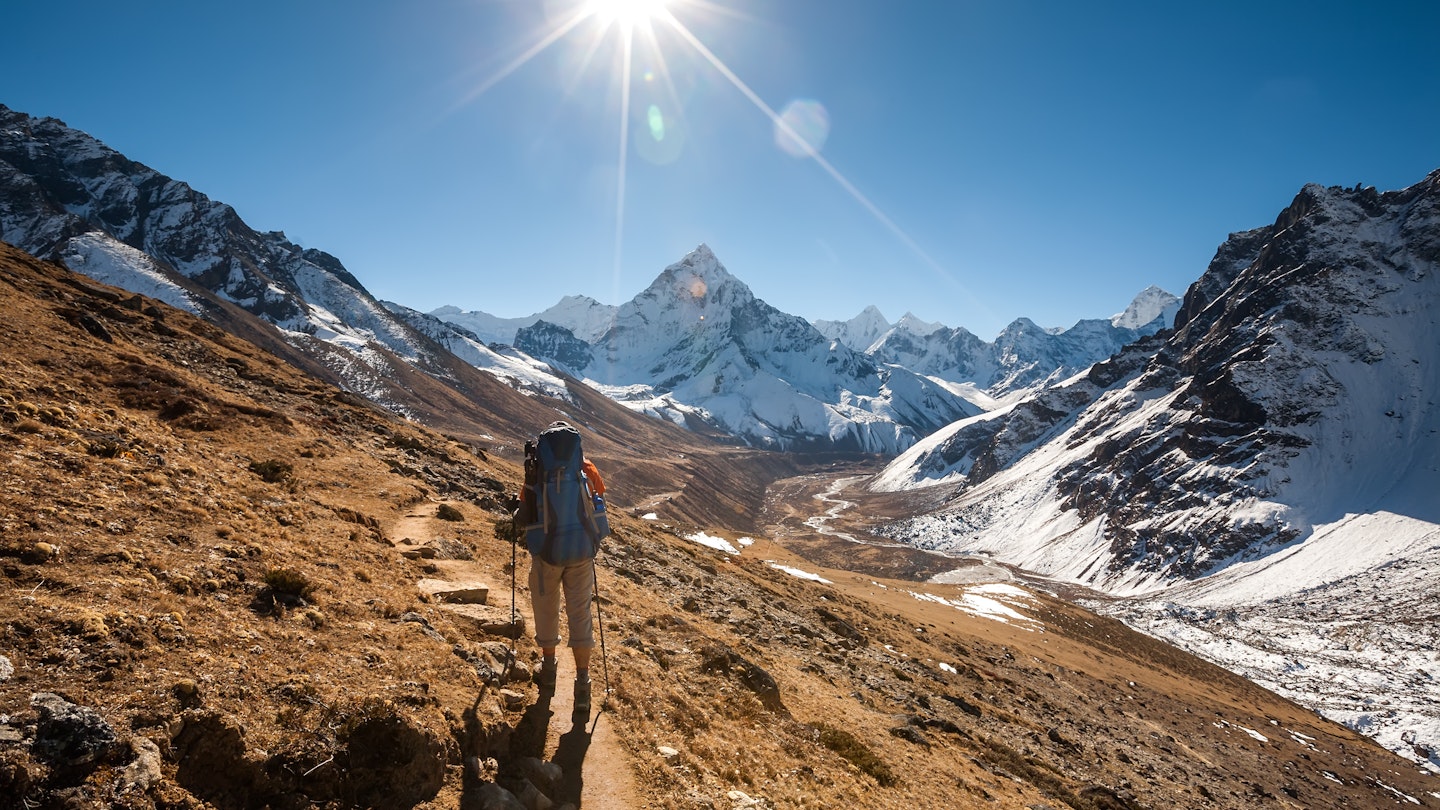
Applying for visa on arrival in Nepal may be all that stands between you and the mountains © My Good Images / Shutterstock
With world-class trekking, mountain biking and whitewater rafting, historic cities and abundant wildlife, it’s easy to understand why Nepal draws so many travelers from across the globe. Few countries in the world fit so many thrilling landscapes – from the towering Himalayas to forested foothills and steamy lowlands – into such a small space.
Deciding to visit Nepal is easy, but the logistics of getting into the country can be a bit more complicated. Here’s our handy guide to the visa requirements for Nepal, including information on tourist visas, how to extend your stay and applying to work or study in the country.
Most travelers can get a Nepali visa on arrival
Here's the good news – for most travelers, the entry requirements for Nepal are fairly simple and pain-free. Indian citizens do not need a tourist visa to visit the country, and most other tourists can get a 15-, 30- or 90-day visa on arrival. This includes visitors from the United States, Canada, Australia, New Zealand, Japan, South Korea, the UK, Ireland, France, Germany and most other Western European countries.
When you land at Kathmandu’s Tribhuvan International Airport , you need to fill in an arrival card and have your photo taken at one of the automatic registration machines – to save time, you can do this online in advance (this must be done less than 15 days before you arrive). If you leave it till you land in Kathmandu, expect the process to take over an hour, with lots of queuing.
Once the paperwork is filed, you must then pay a visa fee of US$30 for 15 days, US$50 for 30 days, or US$125 for 90 days at the payment counter. Children under the age of 10 do not need to pay for their tourist visas unless they are US citizens. Payment is accepted in a variety of major currencies but it’s advisable to bring small bills. Finally, head to the immigration desk with your arrival form, payment receipt and passport, and enjoy Nepal!

Crossing into Nepal overland
You can also cross into Nepal overland via a series of border crossings in the Terai plains, including the busy crossing at Sunauli/Bhairawa, accessible by bus from Delhi and Varanasi in India. You can still get a visa on arrival if you enter Nepal by land, but it's best to bring some passport photos with you, and you'll need to pay the visa fee in cash in US dollars.
Getting a visa in advance will save time
Even if you're eligible for a visa on arrival, the queues for a tourist visa at Tribhuvan airport can move painfully slowly, particularly during the October–November peak season. To save time, you can get a tourist visa in advance from the Nepali embassy or consulate in your home country (or the nearest embassy in a neighboring state).
If you do obtain a visa before you travel, you must enter the country within six months of the visa being issued, though the 15-, 30- or 90-day period only starts when you actually arrive in Nepal. The web portal of the Government of Nepal has a full list of Nepali overseas missions.
Some travelers can get a free visa
Reflecting Nepal's friendly relations with neighboring states, Chinese citizens are eligible for a free tourist visa, while Indian travelers can enter Nepal without a tourist visa. Travelers from many South Asian Association for Regional Cooperation (SAARC) countries can get a free 30-day visa for their first visit to Nepal in a calendar year. This rule applies to citizens of Bangladesh, Bhutan, the Maldives, Pakistan and Sri Lanka, but not to citizens of Afghanistan.
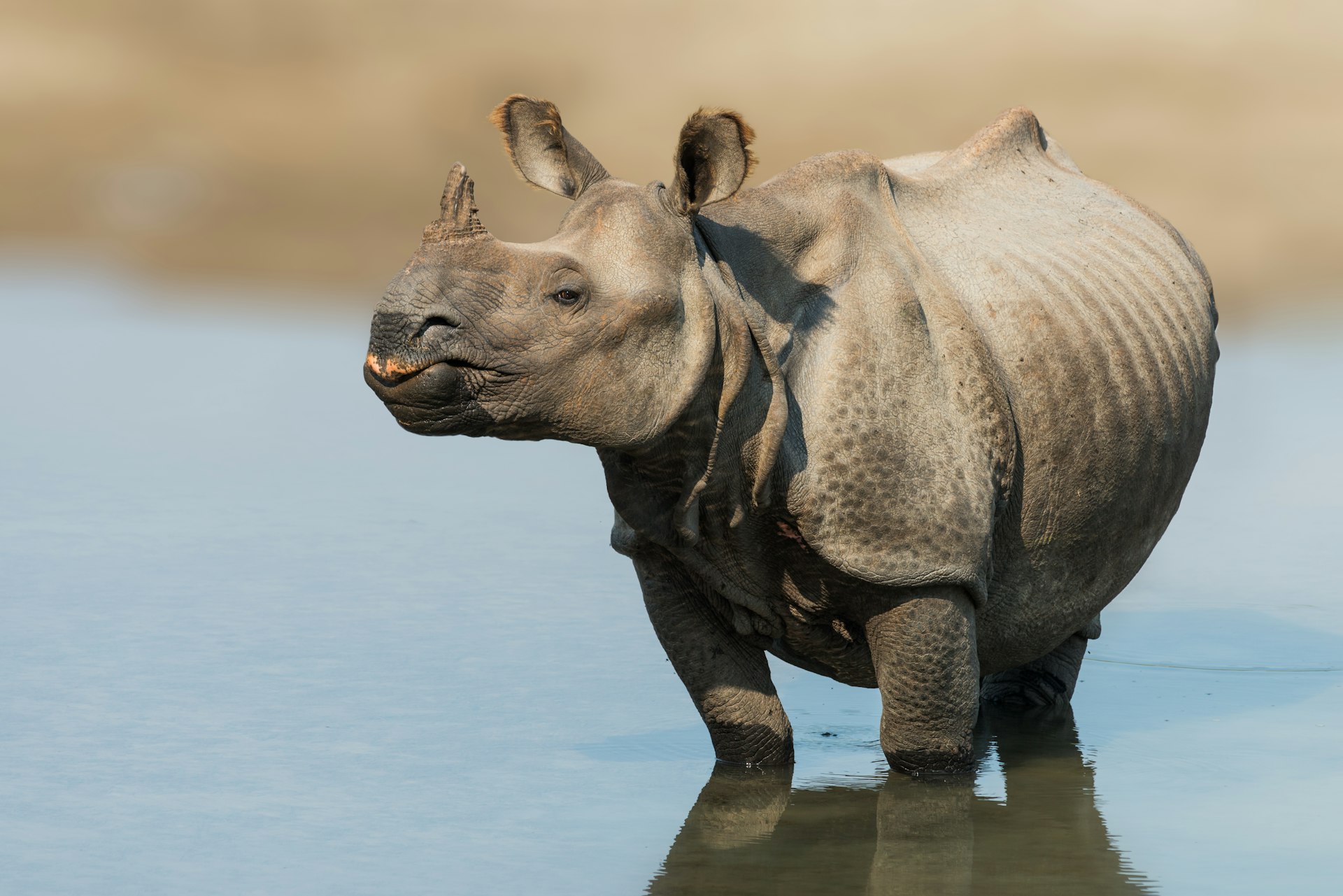
Other travelers must get a visa in advance
Citizens of Afghanistan, Cameroon, Eswatini, Ethiopia, Ghana, Iraq, Liberia, Nigeria, Palestine, Somalia, Syria and Zimbabwe must obtain a visa from their local Nepali embassy or consulate before traveling. Refugees with travel documents from their host nation must do the same.
Travelers can pay extra for a multiple entry visa
While it's more common to detour from India to Nepal than the other way round, you can turn your single-entry Nepali visa into a multiple-entry visa for US$25 at the Central Immigration Office in Kathmandu or the smaller office in Pokhara . This is helpful if you plan to take a side trip from Nepal to Bhutan or Tibet .
If you are entering Nepal from India and plan to return to India, make sure you get a multiple-entry India visa – obtaining a new visa for India in Kathmandu is a painfully slow and complicated process.

You can extend your visa for up to 150 days
If you decide you need more of Nepal's mountains and monasteries, you can extend your visa at the Department of Immigration offices in Kathmandu or Pokhara, up to a limit of 150 days in any calendar year (January to December). Extensions cost US$45 for the first 15 days, followed by US3 per day after that until you reach the 150-day limit.
Don’t overstay your visa – if you do you’ll be fined US$5 per day and you may have trouble visiting Nepal in future. Make sure you leave a gap of several days between the end of a trek and your international flight home in case there are delays getting back to Kathmandu from the trailhead.
Apply for work and study visas well in advance of travel
If you want to work or study in Nepal, you’ll need to apply for a special class of visa and fulfill a number of strict criteria. The process can be complicated, bureaucratic and time-consuming, as you have to provide recommendation letters, bank statements and other documents. Visit the Department of Immigration’s website for detailed information.
You may also like: Tragedy and resilience among the Sherpa people of the Himalaya Uncovering Kathmandu’s cosmopolitan culture: why you're going to want to linger longer 7 expert tips to sustainably trek to Everest Base Camp
Explore related stories
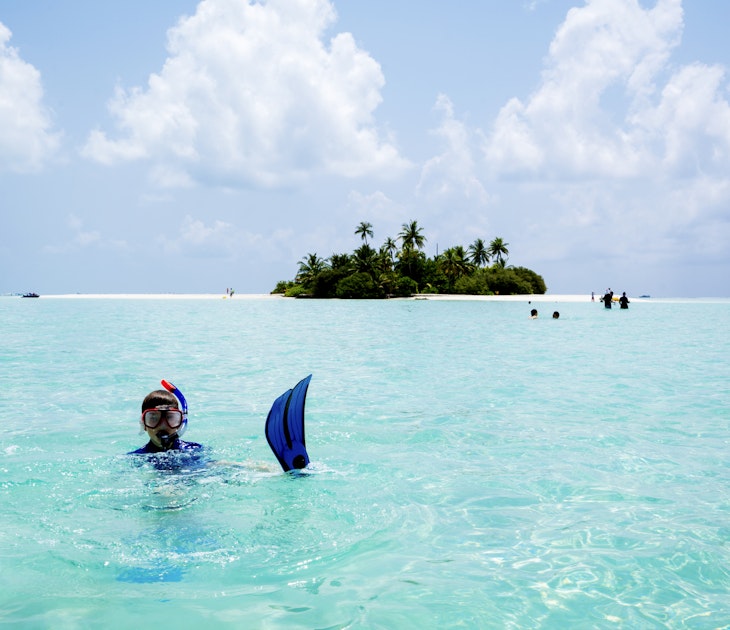
Budget Travel
Feb 22, 2024 • 5 min read
The Maldives is not a cheap place to visit, but there are ways to make your money stretch further. Here are our top budget tips.
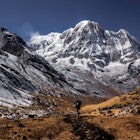
Feb 22, 2024 • 3 min read
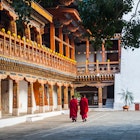
Feb 2, 2024 • 15 min read
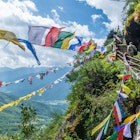
Jan 28, 2024 • 7 min read

Jan 17, 2024 • 6 min read

Jan 17, 2024 • 8 min read
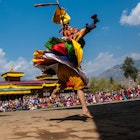
Jan 16, 2024 • 5 min read
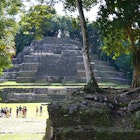
Jan 11, 2024 • 4 min read

Jan 2, 2024 • 8 min read
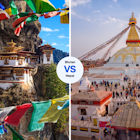
Dec 20, 2023 • 7 min read
- KAYAK for Business NEW
Nepal Travel Restrictions
Traveller's COVID-19 vaccination status
Travelling from India to Nepal
Open for vaccinated visitors
COVID-19 testing
Not required
Not required for vaccinated visitors
Restaurants
Not required in public spaces and public transportation.
Ready to travel?
Find flights to nepal, find stays in nepal, explore more countries on travel restrictions map, destinations you can travel to now, netherlands, new zealand, philippines, saudi arabia, switzerland, united arab emirates, united kingdom, united states, know when to go.
Sign up for email alerts as countries begin to open - choose the destinations you're interested in so you're in the know.
Can I travel to Nepal from India?
Most visitors from India, regardless of vaccination status, can enter Nepal.
Can I travel to Nepal if I am vaccinated?
Fully vaccinated visitors from India can enter Nepal without restrictions.
Can I travel to Nepal without being vaccinated?
Unvaccinated visitors from India can enter Nepal without restrictions.
Do I need a COVID test to enter Nepal?
Visitors from India are not required to present a negative COVID-19 PCR test or antigen result upon entering Nepal.
Can I travel to Nepal without quarantine?
Travellers from India are not required to quarantine.
Do I need to wear a mask in Nepal?
Mask usage in Nepal is not required in public spaces and public transportation.
Are the restaurants and bars open in Nepal?
Restaurants in Nepal are open. Bars in Nepal are .
Visa Traveler
Exploring the world one country at a time
Nepal Visa for Tourists: A Comprehensive Guide
Updated: September 6, 2023
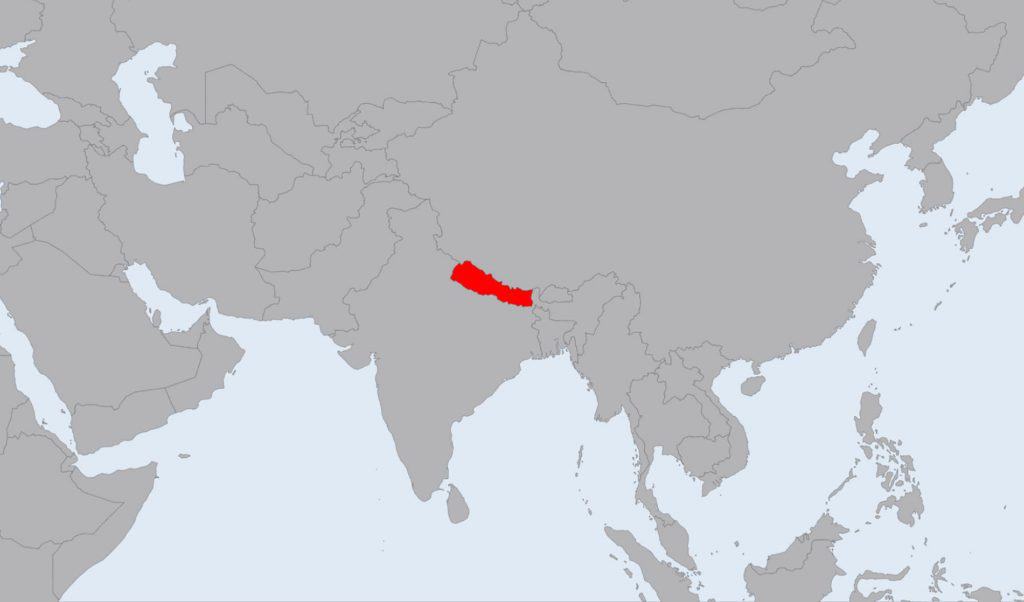
Nepal visa requirements are fairly simple and easy to understand. Nepal has an excellent visa ON ARRIVAL policy, offering visa ON ARRIVAL for passport holders of most countries in the world.
Visa ON ARRIVAL is issued free of cost for nationals of SAARC (South Asian Association for Regional Cooperation) countries including Bangladesh, Bhutan, Maldives, Pakistan and Sri Lanka.
As part of the treaty of peace and friendship between India and Nepal, Indian nationals do not need a visa to enter and stay in Nepal.
Table of Contents
Nepal visa requirements.
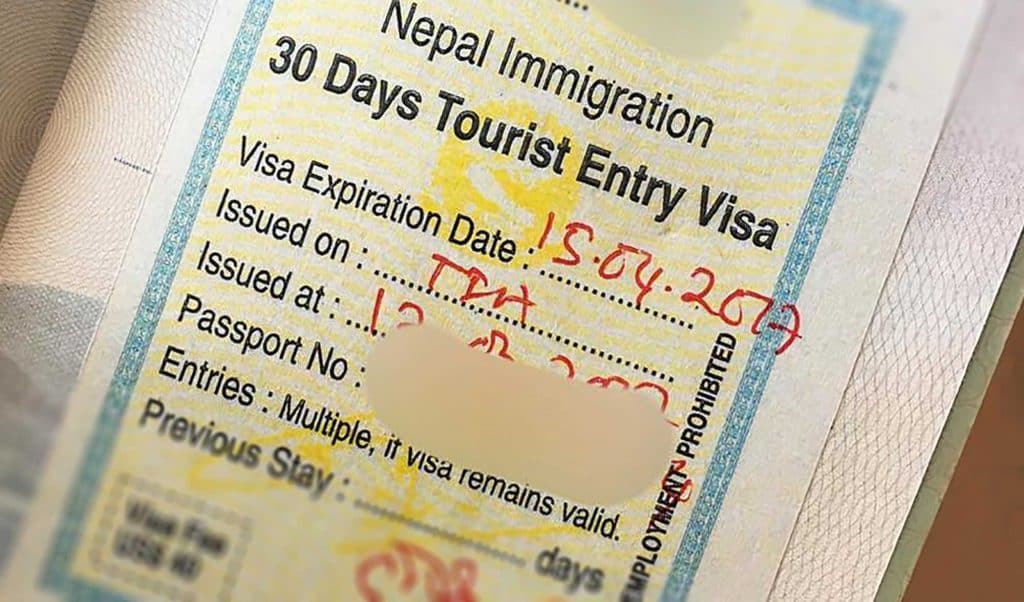
Visa EXEMPT passport holders
Visa required passport holders.
- Afghanistan
Note: Visa is also REQUIRED for passport holders with refugee status.
Visa ON ARRIVAL passport holders
Passport holders that are neither EXEMPT nor REQUIRED must apply for the visa ON ARRIVAL at Tribhuvan International Airport in Kathmandu or any of the following road border crossings.
- Bhairahawa/Sunauli
- Gaddachauki
Application Process
Visa REQUIRED passport holders must apply for Nepal tourist visa at the consulate of Nepal in their country of residence. must enter Nepal within 6 months from the date of issue. For more details, check the Nepal Immigration website or contact your nearest consulate general of Nepal.
Documentation
Visa REQUIRED passport holders must apply for Nepal tourist visa at the consulate of Nepal in their country of residence. Check the Nepal Immigration website or contact your nearest consulate general of Nepal for more details.
For the Visa ON ARRIVAL, you need to fill out and submit the online tourist visa application prior to arrival. This application is valid for a maximum of 15 days. Therefore, submit this application only within 15 days of your arrival. Take a print of the submission receipt and bring it with you on the day of arrival.
If your application has expired or forgotten to fill prior to your arrival, you can still fill it out at one of the kiosks in Tribhuvan International Airport in Kathmandu.
Documentation required for visa ON ARRIVAL at Tribhuvan International Airport.
- Filled in arrival card (your airline will give you one or you can grab one at the immigration and customs)
- Submission receipt of the online tourist visa application. If you have not submitted your application online, you can fill it at the immigration kiosks
- Passport size photo
Documentation required for visa ON ARRIVAL at road border checkpoints
- Filled in application form (you can grab one at the checkpoint)
Since passport holders of India do not need a visa to enter Nepal, they have to go through the same line as the Nepalese at Tribhuvan International Airport. They must fill out the arrival card before heading to the immigration.
The visa ON ARRIVAL fee is based on the number of days of your stay.
- 15 days visa – $25 USD
- 30 days visa – $40 USD
- 90 days visa – $100 USD (Includes multiple entry fees of $20)
Passport holders of SAARC (South Asian Association of Regional Cooperation) countries (except Afghanistan and India) visiting Nepal for the first time in a given year (Jan 01 to Dec 31), a 30-day visa ON ARRIVAL is issued free of cost. The same fee structure as everyone else applies to visas longer than 30 days.
As part of the treaty of peace and friendship between India and Nepal, passport holders of India do not need a visa. Therefore, passport holders of India must go through the same immigration line as Nepalese.
For multiple entry visas, there is an additional fee of $20 USD. 90-day visas are multiple entry and they include an additional $20 USD.
Visa fees can be paid in USD, GBP, Euro or NPR. Other currencies are also accepted but guaranteed. It is advised to have some USD handy to avoid any trouble.
Visa Extension
Tourist visas can be extended for a maximum period of 150 days in a given year (Jan 01 – Dec 31). The visa extension fee is $2 USD for each additional day.
Visa extensions can only be processed at the following immigration offices
- Immigration office in Kathmandu
- Immigration office in Pokhara
Filling an online tourist visa application is mandatory for all visa extensions. Fill out the online application and print the submission receipt before going to the immigration offices in Kathmandu or Pokhara. The following documentation is required.
- Online application submission receipt
- Copy of your Passport ID page
- Copy of your current Nepal visa
- Visa extension fee
Apply in person
Below 12 countries and any passport holders with refugee status must apply for the visa in person at the consulate of Nepal in their country of residence prior to travel to Nepal.
Immigration and Customs
Most airlines do not let you check-in online if you need a visa to travel to the destination country. If you check-in online or at the airport, either way, make sure to arrive at the gate a bit early and see the airline staff. They sometimes have to go through the visa requirements again, verify the documents and put a “Docs OK” stamp on your boarding pass.
Make sure your passport is valid for at least 6 months from the day of travel.
If you are applying for the visa ON ARRIVAL, fill out the tourist visa application online prior to arrival in Nepal. Carry a copy of the submission receipt and a passport photo with you.
When you enter the Tribhuvan International Airport in Kathmandu, follow the below steps
- Grab and fill out the arrival card
- If you haven’t submitted the tourist visa application online already, fill it out at one of the immigration kiosks
- Pay the visa fee according to the number of days you are planning on staying in Nepal
- Go through the immigration and customs
- Claim your baggage
Prepaid taxis at the Tribhuvan International Airport are a bit expensive. If you prefer to catch a cheaper taxi, exit the airport and walk towards the front of the taxi line. You will see a few taxis at the front that are not prepaid and you can negotiate the fare. You can get a taxi to Thamel for 500 NPR.
You will have to go through passport control on exit. You will also need to fill out a departure card for foreigners. This card is the same for all including Indian nationals.
You might be asked how long were you in Nepal and what was your purpose. Exit formalities take about 10-15 minutes at Tribhuvan International Airport in Kathmandu.
You may have to go through immigration and customs on your return to your home country or the country you are flying back to. If you are flying back on an Airbus A330/A340/A380 or Boeing 747/777, expect long lines at the immigration and customs.
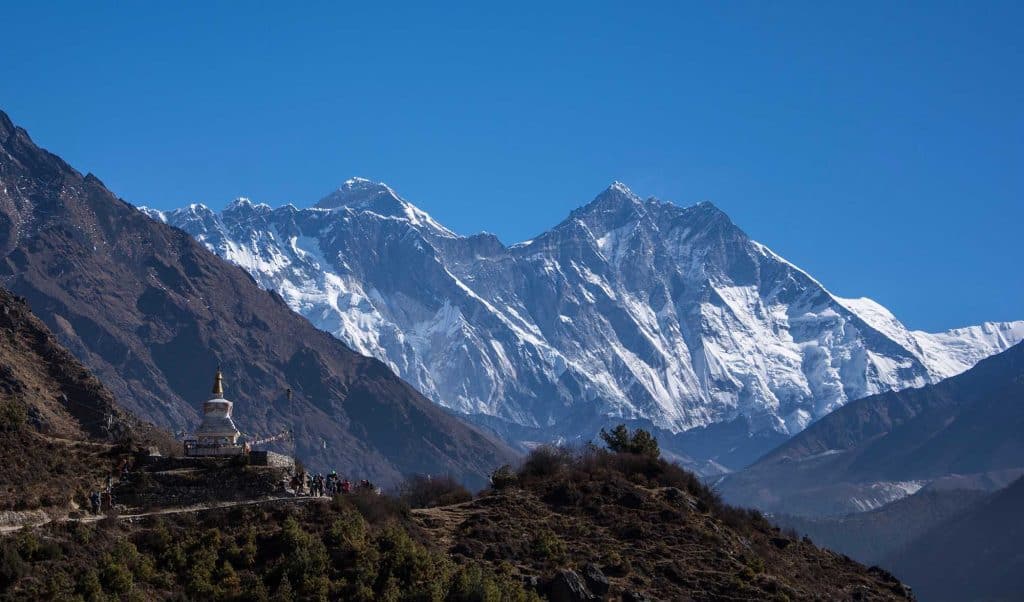
Nepal visa requirements are fairly simple. Nepal has an excellent visa on arrival policy, offering visa on arrival for most nationalities in the world. Visa on arrival is issued free of cost for citizens of SAARC countries (except Afghanistan). Indian citizens do not need a visa to enter and stay in Nepal.
WRITTEN BY THIRUMAL MOTATI

Thirumal Motati is an expert in tourist visa matters. He has been traveling the world on tourist visas for more than a decade. With his expertise, he has obtained several tourist visas, including the most strenuous ones such as the US, UK, Canada, and Schengen, some of which were granted multiple times. He has also set foot inside US consulates on numerous occasions. Mr. Motati has uncovered the secrets to successful visa applications. His guidance has enabled countless individuals to obtain their visas and fulfill their travel dreams. His statements have been mentioned in publications like Yahoo, BBC, The Hindu, and Travel Zoo.
PLAN YOUR TRAVEL WITH VISA TRAVELER
I highly recommend using these websites to plan your trip. I use these websites myself to apply for my visas, book my flights and hotels and purchase my travel insurance.
01. Apply for your visa
Get a verifiable flight itinerary for your visa application from DummyTicket247 . DummyTicket247 is a flight search engine to search and book flight itineraries for visas instantly. These flight itineraries are guaranteed to be valid for 2 weeks and work for all visa applications.
02. Book your fight
Find the cheapest flight tickets using Skyscanner . Skyscanner includes all budget airlines and you are guaranteed to find the cheapest flight to your destination.
03. Book your hotel
Book your hotel from Booking.com . Booking.com has pretty much every hotel, hostel and guesthouse from every destination.
04. Get your onward ticket
If traveling on a one-way ticket, use BestOnwardTicket to get proof of onward ticket for just $12, valid for 48 hours.
05. Purchase your insurance
Purchase travel medical insurance for your trip from SafetyWing . Insurance from SafetyWing covers COVID-19 and also comes with a visa letter which you can use for your visas.
Need more? Check out my travel resources page for the best websites to plan your trip.
LEGAL DISCLAIMER We are not affiliated with immigration, embassies or governments of any country. The content in this article is for educational and general informational purposes only, and shall not be understood or construed as, visa, immigration or legal advice. Your use of information provided in this article is solely at your own risk and you expressly agree not to rely upon any information contained in this article as a substitute for professional visa or immigration advice. Under no circumstance shall be held liable or responsible for any errors or omissions in this article or for any damage you may suffer in respect to any actions taken or not taken based on any or all of the information in this article. Please refer to our full disclaimer for further information.
AFFILIATE DISCLOSURE This post may contain affiliate links, which means we may receive a commission, at no extra cost to you, if you make a purchase through a link. Please refer to our full disclosure for further information.
MORE VISA GUIDES

UNITED KINGDOM

VIEW ALL VISA GUIDES
- Cookie Policy
- Copyright Notice
- Privacy Policy
- Terms of Use
- Flight Itinerary
- Hotel Reservation
- Travel Insurance
- Onward Ticket
- Testimonials
Search this site
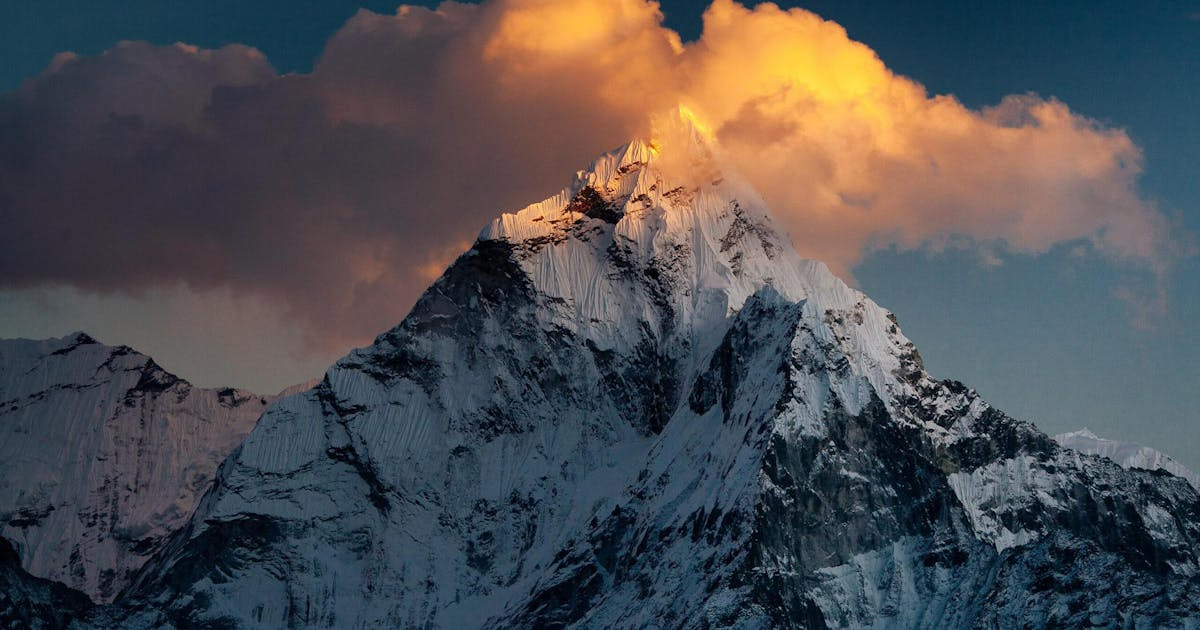
Nepal Visa for Indians: Visa Free Entry & Travel Requirements
Last Updated : 23 Apr 2024
Last Updated : 23 Apr 2024 at
If you're traveling to Nepal from India, you're in luck. This post covers everything you need to know about going to Nepal, including if you need a Nepal visa for Indians.
Do Indian Citizens Need A Visa For Nepal?
No , you don't. But there are things you need to know about traveling to Nepal, including documents and procedures you will need in order to gain entry into the country. But, of course, this also depends on how you will get to Nepal, whether by air or the road.
Can Indians Use Their Aadhaar Card To Enter Nepal?
No . Unfortunately, Indians cannot use their Aadhaar card to enter Nepal, although it is a type of ID card.
Can I Get A Visa On Arrival In Nepal?
No , you can't. Since Indians don't need a visa for Nepal from India, you don't have to apply for a visa on arrival.
What Documents Are Required To Enter Nepal From India To Nepal By Air?
Once you arrive at the airport, you will need to go through customs and present your travel documents.
Any proof of identity with a clear photograph of yourself (this needs to be issued by the Indian government and can either be in the form of an identity certificate or voter ID, etc.)
A valid passport issued by the government of India
An Emergency Certificate is given to you by the Embassy of India in Kathmandu, Nepal. (This is especially for those who do not have the correct documents required to visit Nepal for Indian for traveling.
Indian citizens below 15 years old or older than 65 years old will be allowed entry into Nepal with a PAN card, ration card, or drivers license
Indian citizens between the ages 15 and 18 will be allowed entry with an Identity Certificate given to them by their school
What Documents Are Required To Enter Nepal From India By Road?
It might take longer, but if you prefer traveling by road, you will need to present the following documents to Immigration officers at the Nepal border:
Your vehicle’s registration certificate.
A valid driving license.
A customs permit.
A vehicle permit.
Brief Overview For Indians Traveling to Nepal
We've already established that you don't need a Nepal visa for Indians. However, you might still have some unanswered questions. This section covers some extra details about travel to Nepal from India.
What Are The Nepal Tourist Visa Fees For Indians?
There are none . As an Indian citizen, you will not need to pay a Nepal tourist visa fee since Indian nationals are exempted from applying for the Nepal tourist visa(Nepal visa for Indians).
What Are The Financial Requirements For Traveling To Nepal For Indians?
The average cost for one person visiting Nepal costs about 2,500 (INR) . One week in Nepal will cost about 17,500 (INR) per person, and one month will cost about 75,000 (INR) in Nepal. These estimated costs include local transportation services, accommodation, and meals.
Is A Passport Required To Enter Nepal?
Yes , it is. You must have your valid passport with you in order to get into Nepal.
Don't forget: Your passport isn't the only document you need to enter the country. Scroll up to read more about the travel documents you need.
How Long Can Indians Stay In Nepal?
There is no time limit for how long Indian citizens can stay in Nepal without a Nepal visa for Indians. Therefore you will be able to stay in the country as long as you wish, provided that your budget allows it.
However, if you plan to stay in Nepal for longer than 6 months, register yourself at the Indian Embassy in the capital city of Nepal, Kathmandu.
Can I Work In Nepal Without A Visa?
Yes . You can work and live in Nepal for as long as you like without applying for a Nepal visa for Indians.
What Can Indians Expect On Arrival In Nepal?
If you are coming to Nepal via air, your flight will land at Tribhuvan International Airport, the only international airport available in the country. Then you will need to go through customs and immigration, presenting all of your essential documents.
The same applies for when traveling by road, except you will present your documents at the Nepal border to the Nepalese immigration officers.
Once your documents are checked and approved, you are free to go.
Nepal Awaits You
Now you are more than ready to embark on an amazing adventure to the intriguing land of Nepal. Check out the FAQ for any more questions you may have.
The information in this post comes from reliable sources:
Ministry Of External Affairs .
Department Of Immigration
Embassy Of Nepal In New Delhi .
Frequently Asked Questions
You don't have to get a Nepal visa for Indians. However, suppose you're a national of another country in India, and you wish to travel to Nepal. In that case, you must apply for an e-visa or visa on arrival (depending on your nationality).
Visas in Under a Week
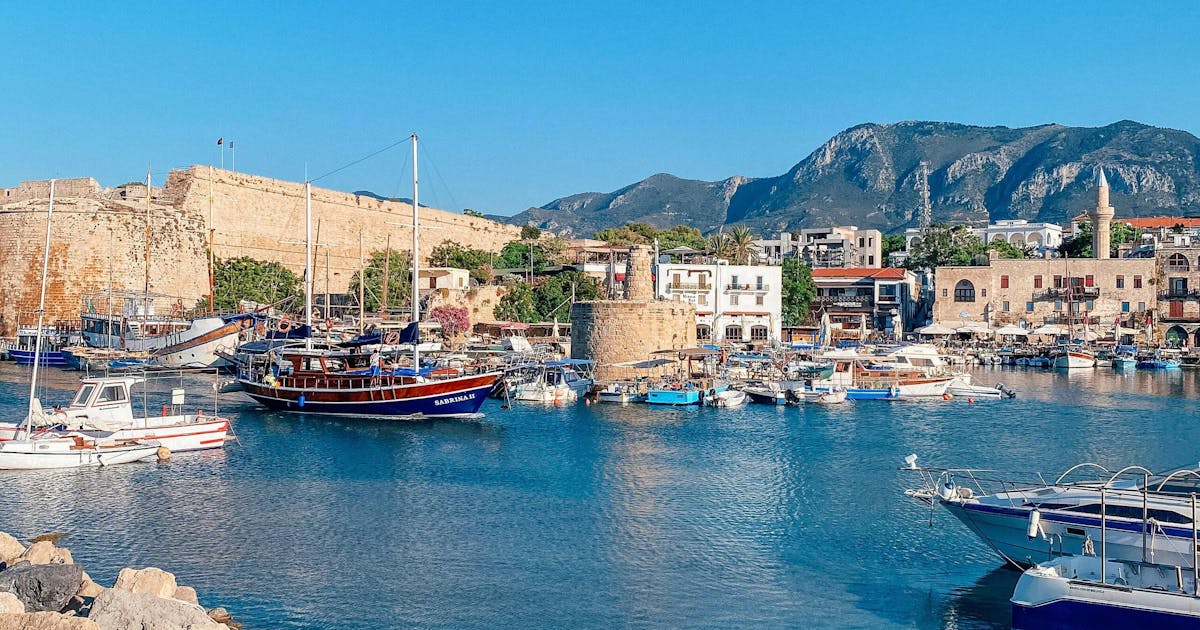
Cyprus Visa for Indians: Requirement, Fees & How to Apply
Cyprus visa for Indians
Learn how to secure a Cyprus visa for Indians, from booking a Schengen visa appointment, paying the fees, to in-person submission of the required documents.
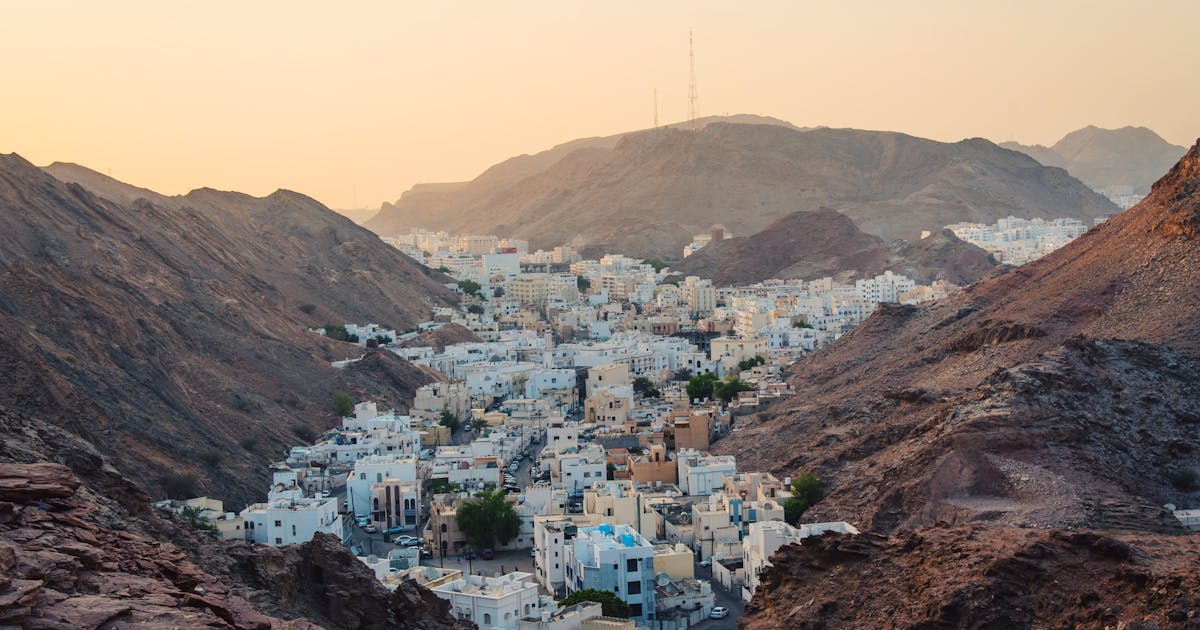
Oman Visa for Indians: Online Visa Requirements & Fees
Oman Visa for Indians
Check out our guide on the Oman visa for Indians and learn about the application process, fees, validity and more
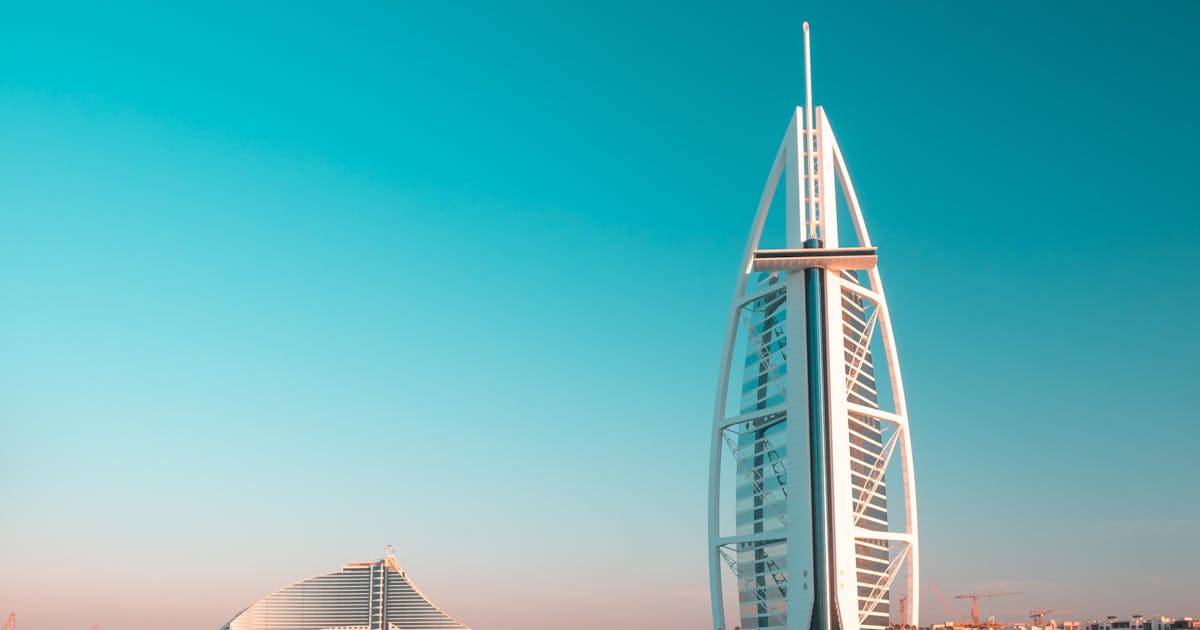
How Indians Can Apply For A Dubai Visa
In this post, you will find how Indians can apply for their Dubai Visa. We will also cover different ways to apply for your Dubai Visa and the required documents.
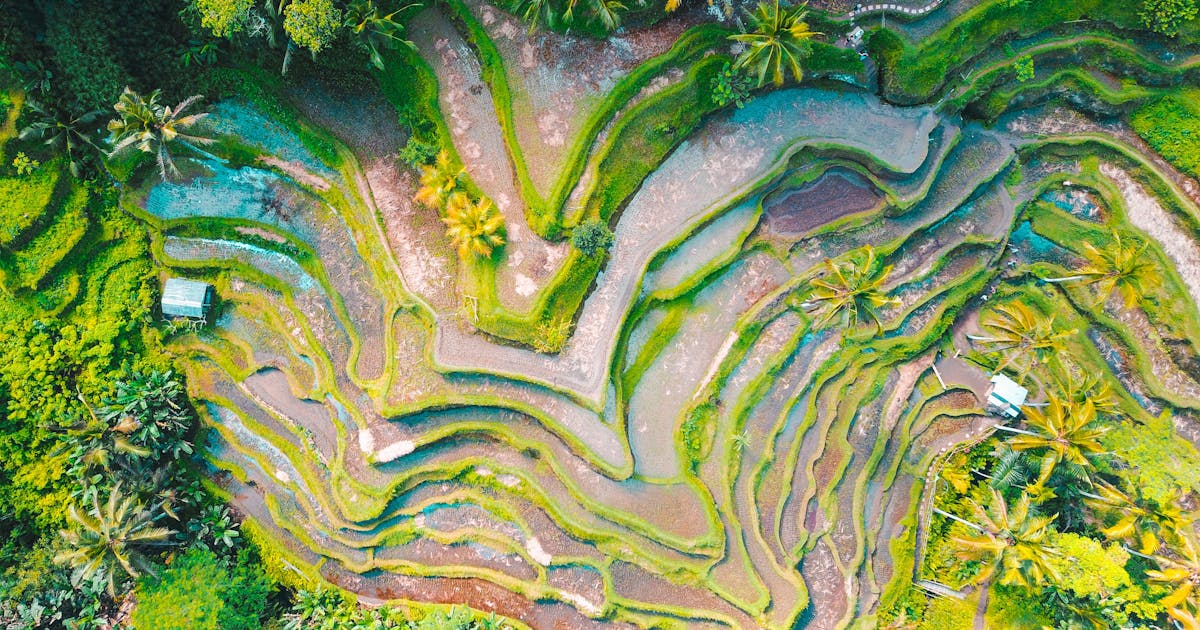
Indonesia Visa for Indians: Online Visa Requirements & Fees
Indonesia E-Visa for Indians
Learn about the visa requirements, fees, processing time, and visa validity. Follow our step-by-step guide to apply for an Indonesia visa for Indians.
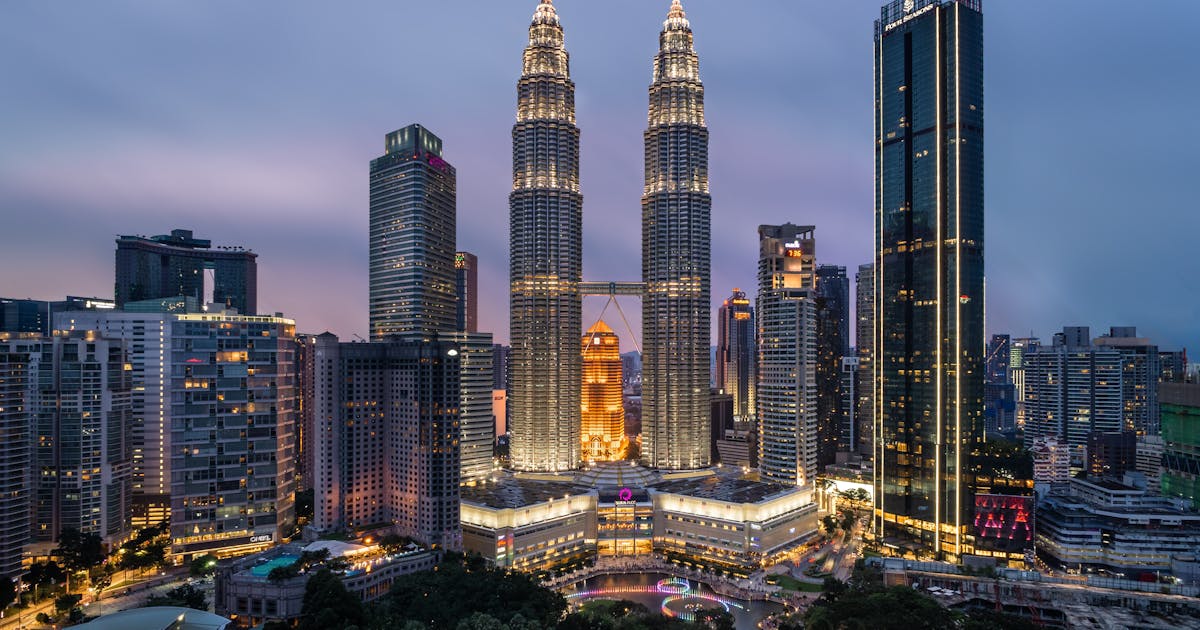
Malaysia Visa for Indians - New Visa Changes with MDAC
Malaysia visa for Indians
Learn the new policy updates for the Malaysia visa for Indians. Our detailed guide includes the new visa regulations, requirements, and related fees.
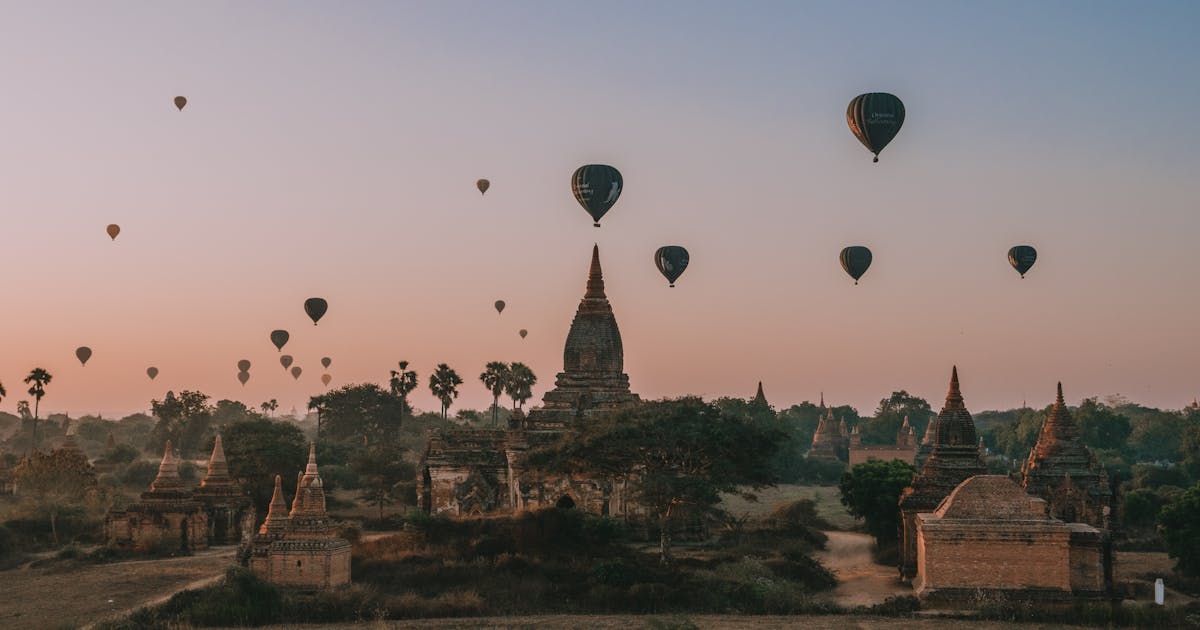
Myanmar E-Visa for Indians: Online Visa Requirements & Fees
Myanmar Visa For Indians
Know more about the essential steps to obtain Myanmar visa for Indians. Includes up-to-date info on requirements, fees, and application tips for Indian travellers.
Instant Visas
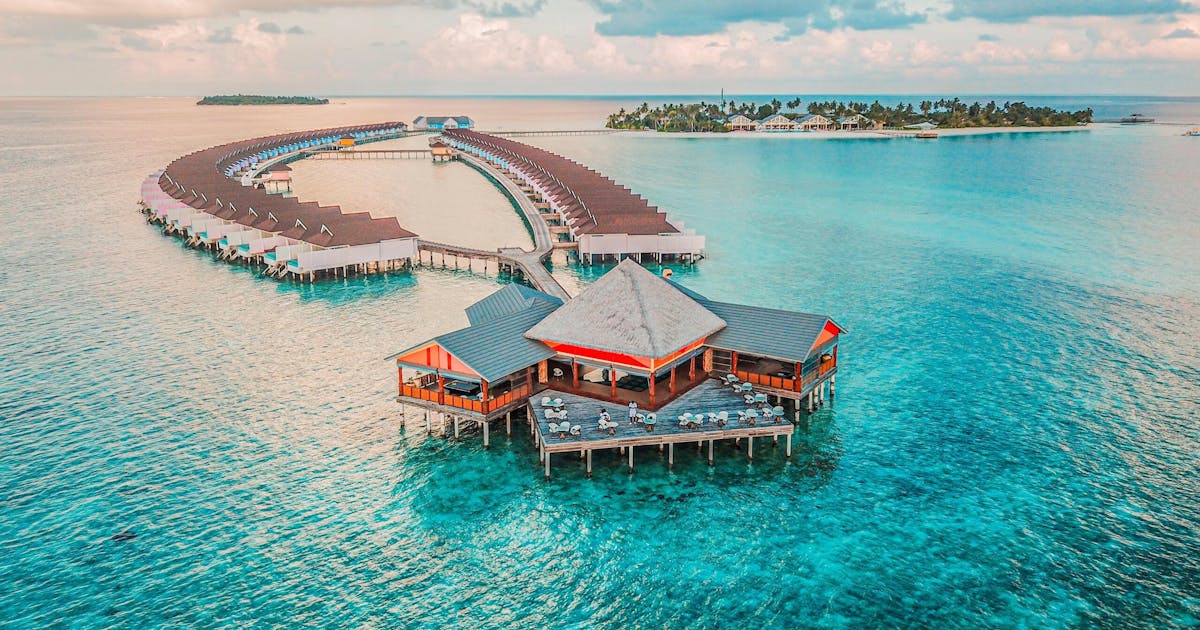
Maldives Visa for Indians: Visa on Arrival & Requirements
Maldives Visa for Indians
Plan your Maldives trip with ease. Find out everything about the Maldives visa for Indians, from the required documents to the on arrival application process.
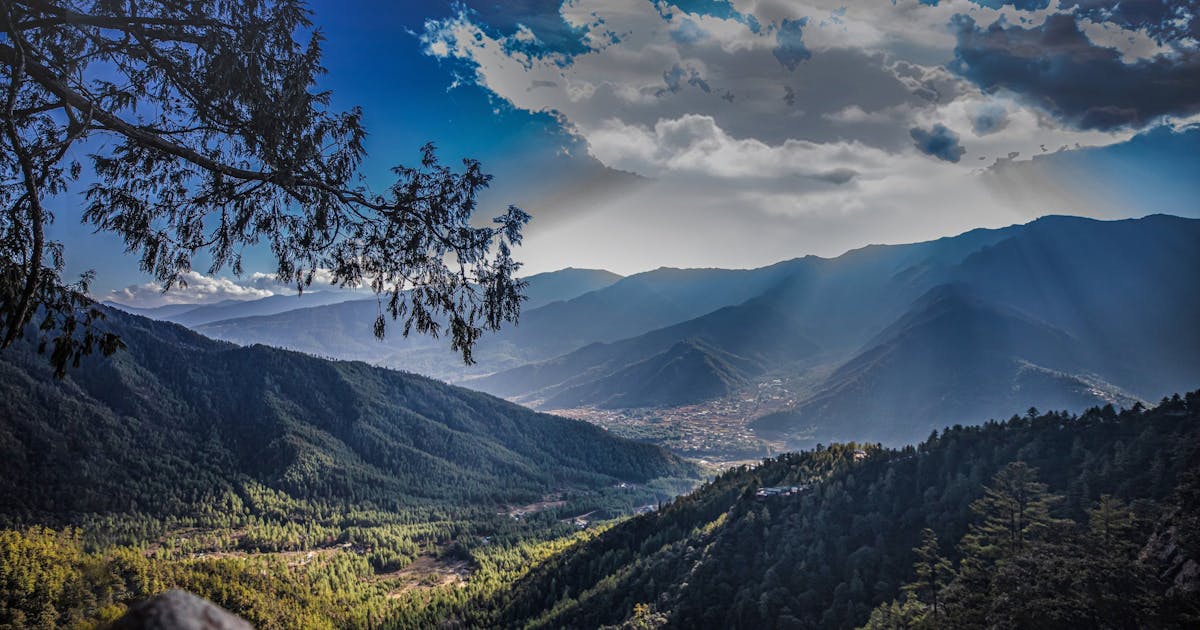
Bhutan Visa for Indians: Visa Free Entry & Travel Requirements
Bhutan Visa for Indians
Explore Bhutan without the visa hassle: A guide for Indians on visa-free entry, the Bhutan entry permit, and what you need to know for a smooth travel experience.
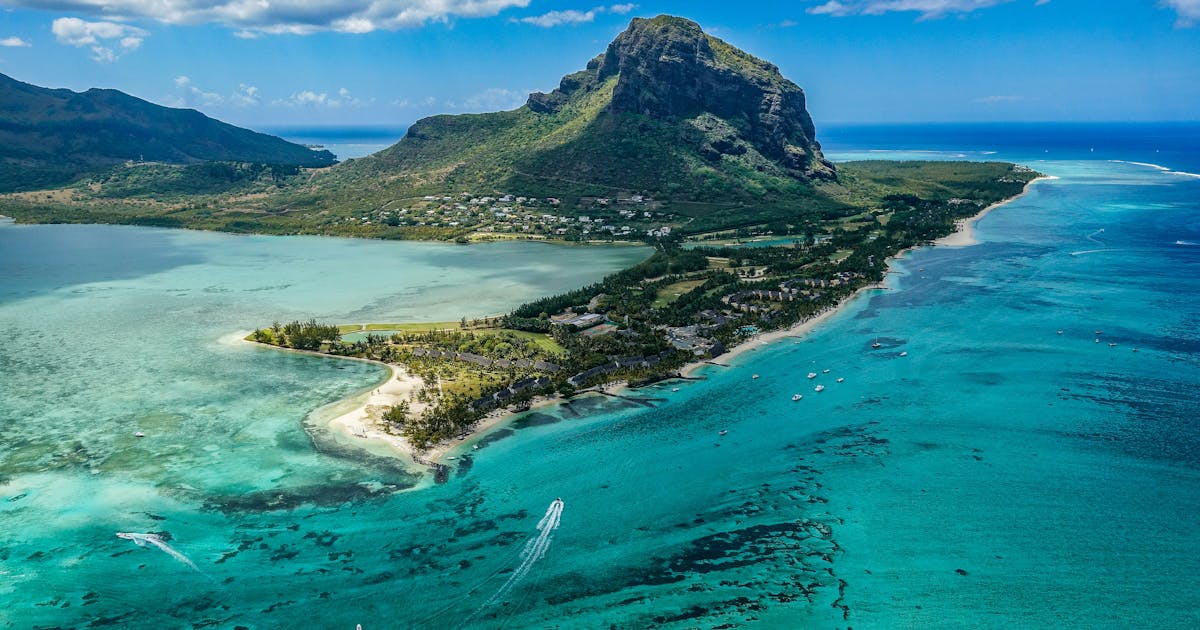
Mauritius Visa for Indians: Visa on Arrival & Requirements
Mauritius Visa For Indians
Simplify your Mauritius journey with our ultimate guide on the Mauritius visa for Indians. Learn about the visa requirements, visa-on-arrival process, fees, and more.
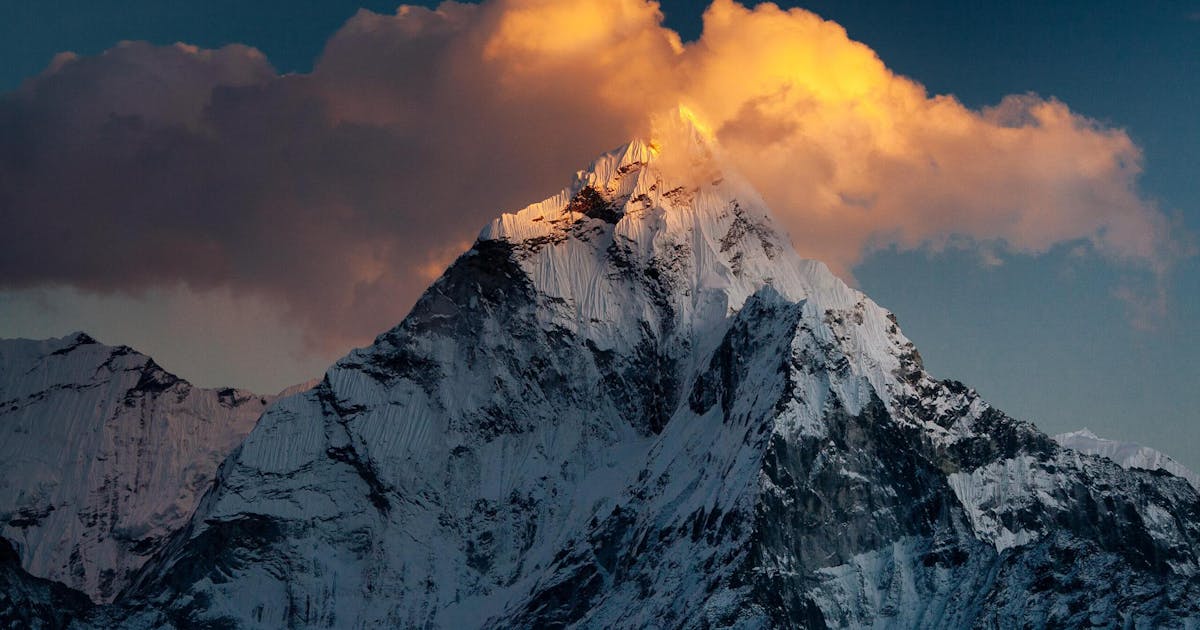
Nepal Visa For Indians
Explore Nepal without the visa hassle as an Indian traveler by understanding the visa-free entry and documents required to enter Nepal from India.
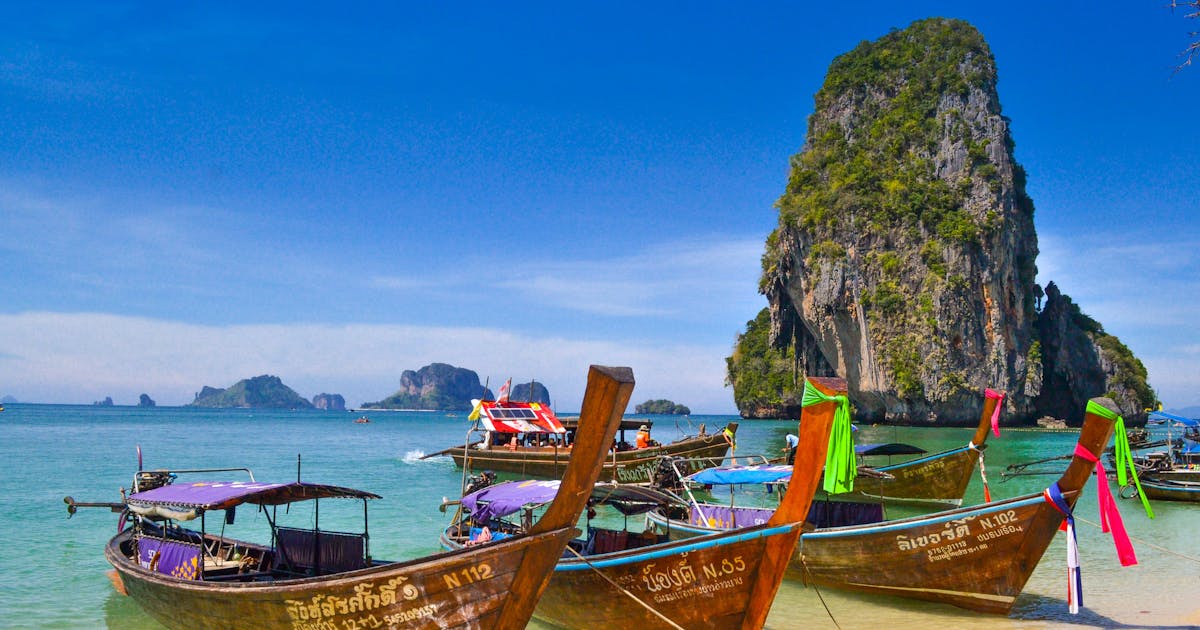
Thailand E-Visa on Arrival for Indians: Fee, Requirements & Process
Thailand E-Visa on Arrival
Get your Thailand visa for Indian travellers with ease. Learn about processing times, required documents, fees, validity, and tips for hassle-free entry in Thailand.
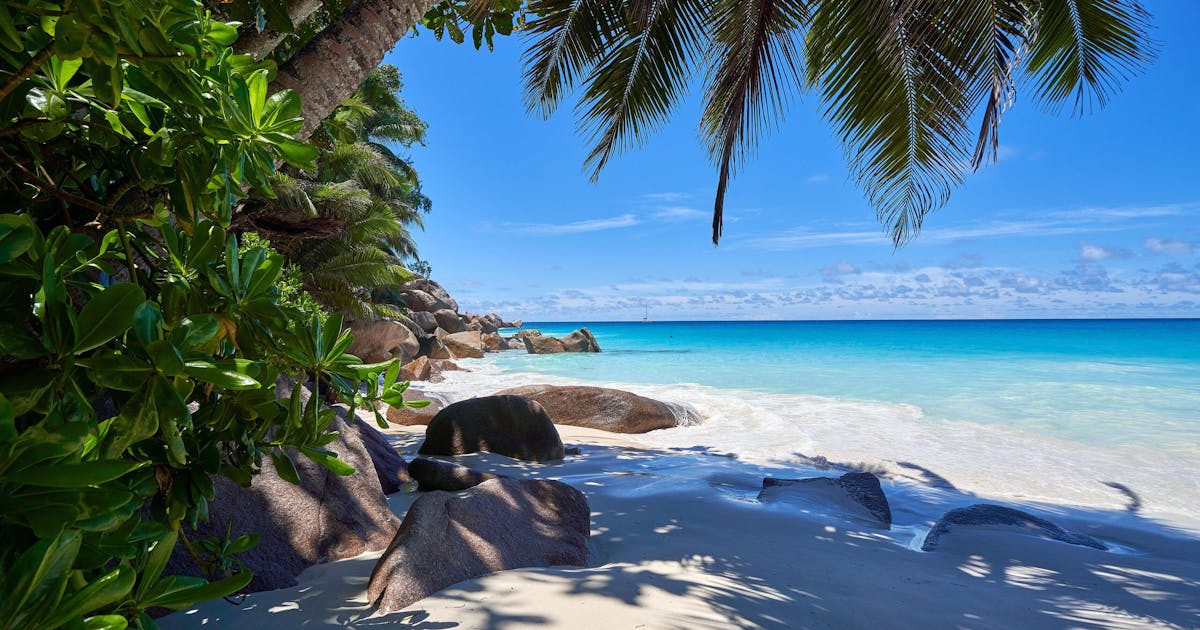
Seychelles Visa for Indians: eTA Requirements & Application
Seychelles Visa For Indians
Your complete guide to Seychelles visa for Indians: Learn about requirements, costs, and travel tips for an unforgettable experience.
Visa Guaranteed on
You are using an outdated browser. Please upgrade your browser to improve your experience.
We use cookies to improve your website experience and provide more personalized services to you, both on this website and through other media. By continuing to use this website, you agree to our use of cookies as explained in our Cookie Policy . Please read our Cookie Policy for more information on how we use cookies and how you can disable them.
New User? Register
- Manage bookings
- Cancellation
- On Behalf Booking
- MyQuotation
We're unable to sign you in because the password entered incorrect.
Your request for OTP will be sent to registered email id and mobile number, if not registered please do the same.
You exceed the OTP limit. Please try again after some time
Don't have an account?
- Contains between 8-12 alphanumeric characters.
- Can add special character but not mandatory(Only !, @, #,$,%,^,&,* to be used).
- Does not contain White spaces
I would like to be kept informed of special Promotions and offers. I hereby accept the Privacy Policy and authorize Thomascook to contact me.
Already have an account?
- Your existing Google or Facebook Id will be a Thomascook ID
- No need to remember different Ids & Passwords
- One Click login
Fill in the email Address that you used to register or book with Thomascook.
We will reset and send your new password.
Please enter the valid email address
Your request for new password has been accepted.
The new password would be emailed to the registered email address, if not registered please do the same

- travel guidelines
I accept the Privacy Policy and I authorise Thomas Cook to contact me with details
- A. 15th June 2020
Pre-Arrival
Nepal travel guidelines.
- Open for Travel: Yes Open For Travel
- Vaccination
- Fully vaccinated passengers.
- Approved vaccine: All WHO Approved Vaccines
- Booster dose criteria: Not Applicable
- RTPCR Test As Per Nepal Quarantine Rules
- Not applicable for Indians. Valid Passport or Voter Id is a Valid Document to Travel.
- Operating Status As Per Nepal Travel Restrictions
- Nepal Travel Guidelines for tourists:
- Nepal Quarantine rules: No quarantine
- Apps/Portal: For Nepal :- https://ccmc.gov.np/ (Self Declaration Portal)
- For India :- https://www.newdelhiairport.in/airsuvidha/apho-registration (Self Declaration Portal)
- Travel Pass: Not Applicable
- Airlines Operating
- Air India, Indigo, Vistara, Air Arabia
"Grab Best Deals on Nepal Holiday Packages "

1800 22 7979
+91 22 2101 7979
+91 22 2101 6969
+91 88799 00414
Business hours
Top Recommended Destinations
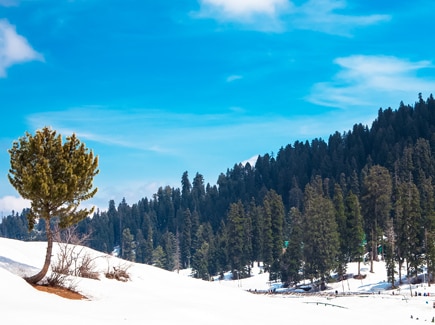
Jammu and Kashmir
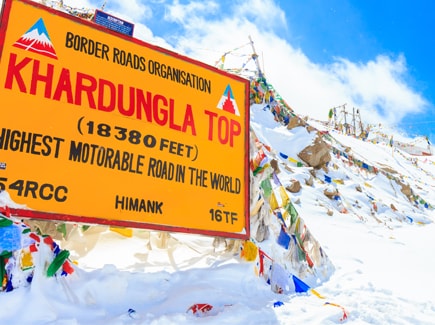
Sikkim Darjeeling
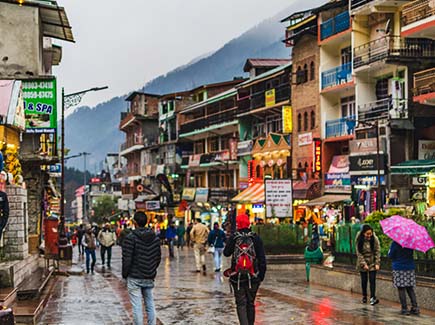
Himachal Pradesh
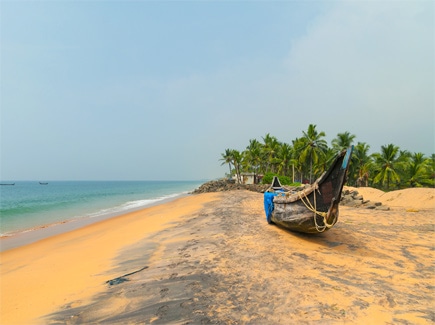
- Chandrataal
- Dharamshala
- Spiti Valley
- Nubra Valley
- Pangong Tso
Punjab & Haryana
- Kurukshetra
Uttarakhand
- Jim Corbett Park
Uttar Pradesh
- Fatehpur Sikri
Andaman & Nicobar Islands
- Neil Island
Andhra Pradesh
- Visakhapatnam (Vizag)
- Chitradurga
- Murudeshwar
- Shravanbelagola
- Athirappilly
- Thiruvananthapuram
- Kanchipuram
- Kanyakumari
- Mahabalipuram
- Pondicherry
Arunachal Pradesh
- Kaziranga National Park
- Manas National Park
- Cherrapunjee
- Bhubaneshwar
West Bengal
- Narmada Tent City
- Rann of Kutch
Madhya Pradesh
- Omkareshwar
Maharashtra
- Chittorgarh
- Kumbhalgarh
- Ranthambore
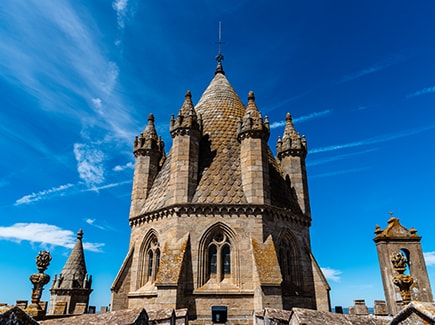
South East Asia
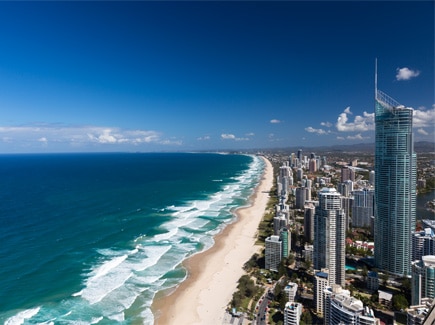
Australia New Zealand
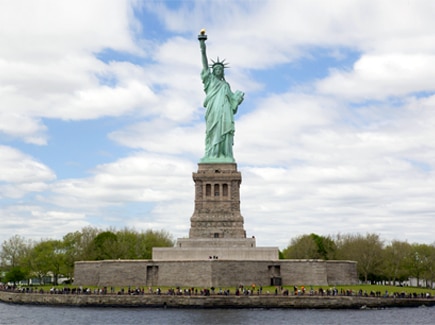
Dubai Egypt Israel
- Nile Cruise
South Africa
- Johannesburg
- Pilanesberg National Park
- Port Elizabeth (Gqeberha)
- Stellenbosch
- Victoria Falls
- Rio De Janerio
- Los Angeles
- Niagara Falls
- Philadelphia
- San Francisco
- Nuwara Eliya
- Kuala Lumpur
- Genting Highlands
- Nusa Penida
- Ho Chi Minh
- Cherry Blossom Tours
South Korea
- Great Barrier Reef
- Great Ocean Road
New Zealand
- Christchurch
Western Europe
- Liechtenstein
- Netherlands
- Switzerland
- Vatican city
Central & Eastern Europe
- Czech Republic
Northern Europe
Mediterranean Europe
- Midnight Sun
- Northern Lights
- Scandinavia
United Arab Emirates
- Ferrari World
Saudi Arabia
An adventure of a lifetime awaits you. Immerse yourself in the untouched beauty of the last frontier on Earth, the serene beauty of icebergs, and witness landscapes that seem straight out of your dreams.

Speciality Tours
POPULAR & available TOURS
Honeymoon special.
Embark on a journey of togetherness.
Inspiring beautiful journeys & Scenic Routes.
Seniors' Special
Golden age celebration tours for 55+ yrs.
Women's Special
Exclusive handcrafted women only tours.
Family Tour Packages
Veena World’s safe, secure, and popular tours
Women's Special with Kids
Travel with your kids (boys & girls, under 12 yrs)
Upcoming Tours
Couples only.
Exclusive tours for middle aged couples.
Luxury Tours
Enjoy the sweet life of luxury & pampering.
One Week One Place
Explore one place at a relaxed pace.
Post Tour Holidays
Explore the city after your big tour.
Short Trips
Quick getaways to stunning destinations.
Treks & Hikes
Exiting adventure & challenges (15-55 yrs).
YOLO Adventures
Experiences for adrenaline junkies (18-35 yrs).
City Walks & Day Trips
Explore the city and culture.
WOW Adventures
Thrilling holidays for family (10-55 yrs).
Students' Special
Dhamaal tours after 10th & 12th exams
Customized Holidays
THEMED EXPERIENCES - Find your reason!
Romantic Holidays
City Breaks
Adventure Stories
Taj Holidays
Air Inclusive Holidays

Luxury Holidays
choose the right tailor-made luxury travel vacations

Island Getaways
explore the tropical island getaways
Buy & Sell Foreign Currency
Aed - uae dirham, gbp - british pound.
All your FOREX needs taken care of
- Nepal Visa For Indians – Here Is All The Information You Need
Nepal Visa for Indians – Here is All The Information You Need
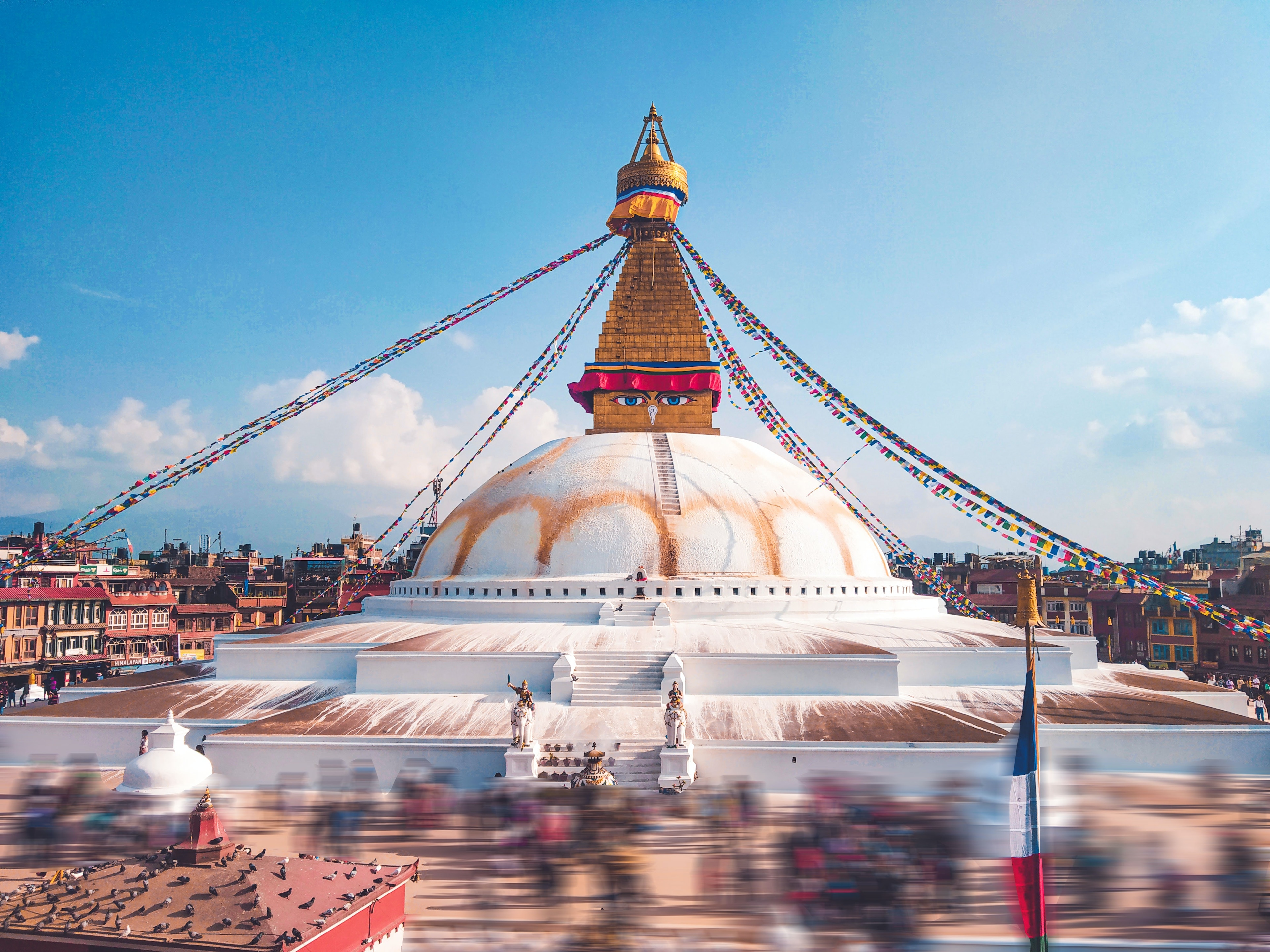
Nepal, also known as the "Roof of the World", is a coastal country in South Asia. It is mostly located in the Himalayas, with a small portion in the Indo-Gangetic plains. It is an untouched beautiful place, officially known as the Federal Democratic Republic of Nepal. Nepal is one of the most sought-after travel destinations due to its snow-capped mountain peaks, pristine rivers, and lush scenery. This mountainous region is also well-known for its trekking opportunities. Pilgrimage is another aspect of Nepal that attracts tourists, with numerous Buddhist and Hindu temples to take a trip.
Nepal, which borders India, is one of the top tourist attractions near India. For a variety of reasons, Indians frequently choose Nepal as their vacation spot. While it is located abroad, it is one of India's closest neighbours. Furthermore, vacations in Nepal are extremely pocket-friendly, which is one of the primary reasons why the country is a popular choice for Indian tourists.
With many Indians planning to visit Nepal, it is extremely crucial that applicable visa requirements are thoroughly understood before venturing on a vacation. Furthermore, because Nepal's immigration rules differ from those of other countries, it is extremely important to have a good understanding of them.
Here are the details of the Nepal visa for Indians.
Nepal Visa for Indians
It is always a good thing to be able to travel to a different country without having to worry about Visa procedures. Fortunately, Nepal is one of the visa free countries for Indians . As a result, you can visit this nation without worrying about visa issues. So if you're an Indian national travelling to Nepal by air, all you need to bring with you and produce is one of the following two forms of identification:
- Election Commission Card (Voter's ID Card)
Is a Visa Required for Indians to Visit Nepal?
No, Indian citizens do not need a visa for entering Nepal. It is worth noting that citizens of the majority of other countries require a visa to enter Nepal. This exception is only available to Indian citizens. Indians, on the other hand, are expected to carry proper documents required to visit Nepal for Indians.
Is it possible for Indians to obtain a visa on arrival or an e-visa in Nepal?
No, because Indian travellers do not need a visa to visit Nepal, the need for such a visa on arrival or E-visa is no longer necessary. Indians can easily travel to Nepal with their passports or other relevant documents to gain entry to the country, whether at the immigration center at Kathmandu International Airport or elsewhere.
Is it necessary to purchase Nepal Travel Insurance?
Nepal immigration rules for Indians do not require them to have a travel insurance policy in place in order to enter the country. Those travelling overseas for trekking, on the other hand, must purchase a travel insurance policy. These policies usually cover medical expenses up to and including hospitalization charges, even if the injury occurred while participating in an adventure sport. These plans typically cover the loss of luggage as well as the application for lost passports. A travel insurance policy not only assists in financially coping with unexpected expenses that may arise while travelling to Nepal; it also helps in providing immediate assistance during an emergency.
Do Indian visitors to Nepal need to have a passport?
Yes, valid passports are required for Indians travelling to Nepal. Tourists from India who do not have a passport for Nepal can enter the country with the help of a few other documents like a visa for Nepal.
Documents Required to Enter Nepal for Indian Citizens
The following are the documents required to visit Nepal for Indians:
- While Nepal visa requirements for Indian citizens are unnecessary, the following documents must be carried by Indians in order to gain entry.
- Any photo-identification document issued by Central/State/UT authorities.
- The Election Commission of India issues voter identification cards.
- The Indian Embassy in Kathmandu has issued an emergency certificate.
- The following Nepal entrance requirements for Indian citizens should also be taken into consideration.
- Indians over the age of 65 or under the age of 15 can enter Nepal by presenting photo-identity proof such as a PAN card, driving license, ration card, etc.
- Indians between the ages of 15 and 18 can enter Nepal with an Identity Certificate issued by their academic institution's principal.
What Documents Are Necessary If You Enter by Road?
Indian citizens allowed to enter Nepal by road with their own vehicle must present the following documents at the Nepal border, in addition to their proof of citizenship:
- Vehicle registration certificate
- Driving License
- A Yaatayaat Anumati a vehicle permit
- A Bhansar, also known as a customs permit
How to Reach Nepal
Here are some different ways to reach Nepal:
Nepal is well-connected by air, thanks to its airport in Kathmandu, the country's capital. Tribhuvan International Airport serves as the primary entry point into the country for visitors arriving by air. Air Arabia, Jet Airways, Air Asia X, Qatar Airways, Etihad Airlines, Air China, Fly Dubai, Malaysia Airlines, Oman Airlines, Silk Air, and Thai Air are the main flight operator. There are flights to various destinations around the world, including India, Bangkok, Hong Kong, Dubai, and Kuala Lumpur.
Passengers and freight trains run between Sirsiya in southern Nepal and Raxaul in India. Only Indian citizens are permitted to use this line to cross borders by rail.
To make the journey to Nepal from India by road, take a bus that connects different points between the two countries, such as the Sunauli-Bhairawa border checkpoint from Varanasi, the Raxaul-Birgunj crossing from Patna, Kolkata, the Siliguri-Kakarbhitta crossing from Darjeeling, the Banbasa-Mahendranagar passing from Delhi, and the Bahraich-Nepalgunj crossing from Lucknow. You can also rent a car or cab from a location near the border in India. You must pay a toll of NPR 120 and a transport permit of NPR 50.
Best Time to Visit Nepal
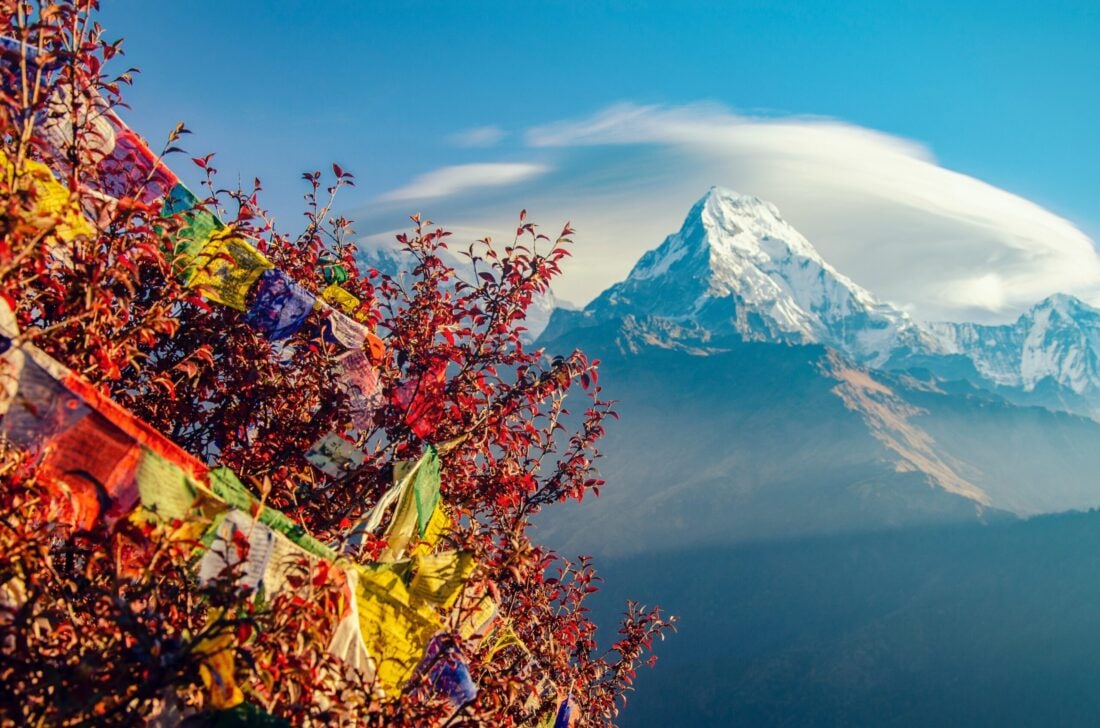
The best time to visit Nepal is linked to the type of experiences you want to have. The months of late September to late November are ideal for visiting Nepal. This is the most popular time to visit the country. Trekkers from all over the world flock to the Foothills of the Himalayas and mountains during the autumn months. The trails are clear, and the sky has been washed clean by the monsoon that has just passed. Visiting Nepal during this time will also allow you to witness three of the country's major festivals, Dashain, Tihaar, and Mani Rimdu.
The spring season, which lasts from the end of February to the end of April, is the second-best time to visit Nepal. The surroundings become lush and colourful, but the sky becomes hazy. Though the pathways are busy at this time, it is still a nice time to trek and relish the breathtaking views of the valley. The weather is also conducive to sightseeing. If you visit during this time of year, make a point of visiting Chitwan National Park in the Terai region. With greenery terrain and wildlife, it truly becomes a perfect destination.
The winter season, which lasts from December to February, is one of Nepal's other seasons. Summer lasts from May to September. Nepal's must-see destinations include Kathmandu, Pokhara, Nagarkot, Janakpur, and Lumbini.
Now that you know how easy it is to get to Nepal and that a visa isn’t required for Indians, there's no reason not to visit this captivating paradise. Book a Nepal tour package and enjoy with your family, friends, or partner as soon as possible to explore this hillside destination with them.
We are an Indian travel company founded in 2013 and excel at domestic and international tour packages including guided group tours, specialty tours, customized holidays, corporate MICE travel, inbound travel and destination weddings.
Post your Comment Please let us know your thoughts on this story by leaving a comment.
Blog categories.
- Travel Guide
Looking for something?
Embark on an incredible journey with Veena World as we discover and share our extraordinary experiences.

Request Call Back
Tell us a little about yourself and we will get back to you

Our Offices
Located across the country, ready to assist in planning & booking your perfect vacation.
Locate nearest Veena World
Listen to our Travel Stories

5 Minute Travel Tips with Neil Patil
Become a smart traveler in five minutes. Every Monday join Neil Patil and hear about different travel tips and secrets to unlock your full travel Ninja potential.

Aapla Maharashtra
'आपला महाराष्ट्र' ही पॉडकास्ट मालिका म्हणजे महाराष्ट्राची झलकच. गौरवशाली इतिहास , वैविध्यपूर्ण परंपरा आणि आकर्षक भूगोल लाभलेल्या महाराष्ट्राची ओळख करून देण्यासाठीच वीणा वर्ल्डने ही मालिका सुरू केली आहे. या मालिकेतून महाराष्ट्राच्या रोमांचक इतिहासाचे साक्षीदार असलेल्या गड - किल्ल्यांचा थोडक्यात परिचय करुन दिला जाईल. मग दर गुरुवारी न चुकता ऐका ' आपला महाराष्ट्र ' आणि तुमच्या भटकंतीला द्या नवीन दिशा. Looking to explore the wonders of Maharashtra, India? Tune in to 'Aapla Maharashtra', a podcast series that takes you on a journey through the state's rich history, captivating culture, and breathtaking geography. Join us every Thursday for a new episode and discover the many forts that bear witness to Maharashtra's majestic past. Take your travel experience to the next level with 'Aapla Maharashtra'.

Chalo Bag Bharo Nikal Pado
#ChaloBagBharoNikal Pado, a Hindi podcast by Veena World, is here to take you on a virtual tour around the world. Every episode, our host Neil will be joined by expert travellers with years of experience in the Travel and Tourism industry. They’ll share their personal journeys and stories that you’ve probably never heard of before. A new guest, a new experience. New episode every Wednesday. Join us to Celebrate Life virtually.

Know the Unknown
Know something unknown daily in under 3 minutes

Life Stories by Veena Patil
‘Exchange a coin and you make no difference but exchange a thought and you can change the world.’ Hi! I’m Veena Patil... Fortunate enough to have answered my calling some 35 years ago and content enough to be in this business of delivering happiness almost all my life. Tourism indeed moulds you into a minimalist... Memories are probably our only possession. And memories are all about sharing experiences, ideas and thoughts. Life is simple, but it becomes easy when we share. Places and people are two things that interest me the most. While places have taken care of themselves, here’s my podcast, which I consider to be a great platform, through which I can share some interesting stories I live and love on a daily basis with all you wonderful people out there. I hope you enjoy the journey... Let’s go, celebrate life!

Travel. Explore. Celebrate Life.
Travel is indeed one of the things that help us celebrate life. And 2020 has made us realise that more than anything else. With Travel. Explore. Celebrate Life., let's go on a journey around India and the world and talk about culture, history, experiences, food, and more. Your co-hosts Neil Patil and Sunila Patil along with special guests every episode, discuss where to go, what to eat, where to stay, what to pack, what to explore, and much much more. So hop on, chalo bag bharo nikal pado!

Travel Katta
#TravelKatta, a Marathi podcast by Veena World, is here to take you on a virtual tour around the world. Every episode, our host Sunila will be joined by expert travellers with years of experience in the Travel and Tourism industry. They’ll share their personal journeys and stories that you’ve probably never heard of before. A new guest, a new experience. New episode every Friday. Join us to Celebrate Life.
Recommended Tours
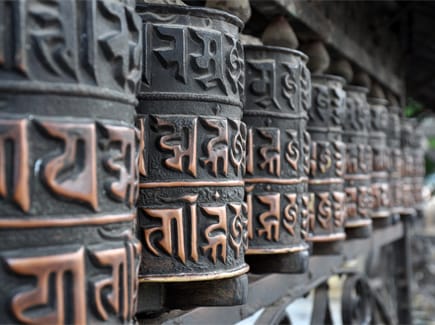
Best of Nepal
Tour includes, super deal price, (24 apr 2024) last 5 seats.
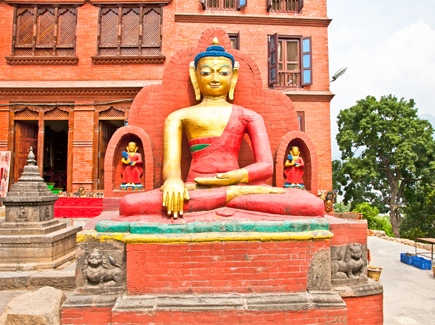
Senior's Special Nepal
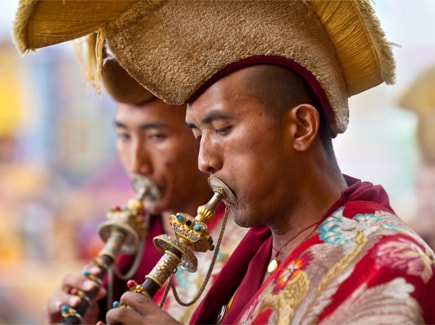
Women's Special Nepal
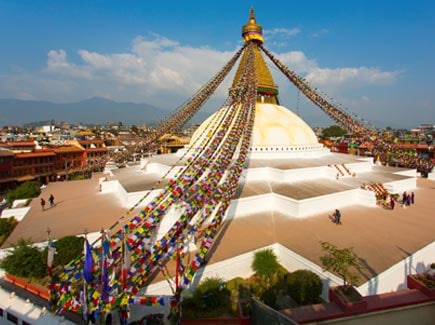
Kathmandu Pokhara
Starts from.
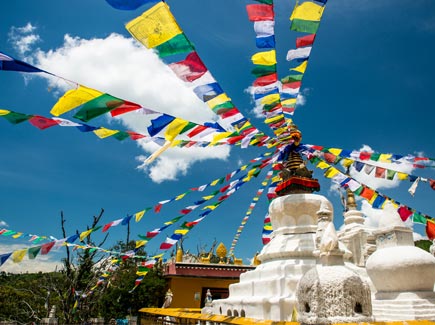
Nepal Chitwan Pokhara
Most commented, calling out the spiritually inclined - 10 places of worship worth visiting in india, top 10 places in china - discover the land of oldest living civilization, a 2 week itinerary for a holiday in africa - trace your roots in the cradle of mankind, handpicked wedding destinations around the world for your big day, keep travelling all year round.
Subscribe to our newsletter to find travel inspiration in your inbox.
Trending videos for you

Top Travel Experiences

With Veena World

Dekho Apna Desh

Places to Visit in 2023
Veena world tour reviews, what are you waiting for chalo bag bharo nikal pado, nainital mussoorie haridwar rishikesh corbett park upcoming tour dates.
"1st On tour Call Done. Guest are happy with the service, the food & stay are also good . Tour Manager is also good."
"1st on tour call done, Guest said tour is going great all the sightseeing are on time Tour manager Ajit Soman & Gaurav Vanjari both are... Read more
"1st on tour call done, Guest said they are very happy with the tour, Tour managers are helpful and kind."
"1st on tour call done Guest are very happy and enjoying the tour Tour Manager is very cooperative and caring helping everyone."

254 departures
53,482 guests travelled

135 departures
23,226 guests travelled
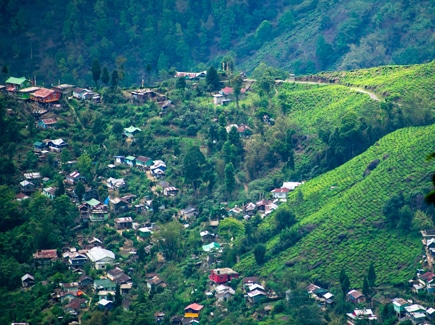
52 departures
15,857 guests travelled

128 departures
1,06,289 guests travelled

353 departures
73,150 guests travelled
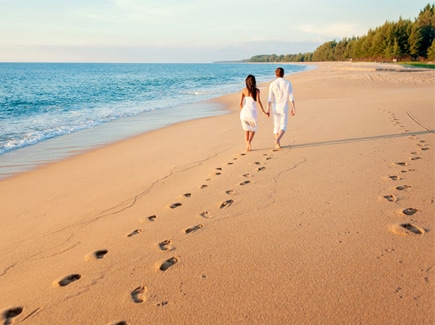
131 departures
1,19,862 guests travelled

32 departures
11,114 guests travelled

18 departures
11,472 guests travelled
ISO 9001:2015 Certified
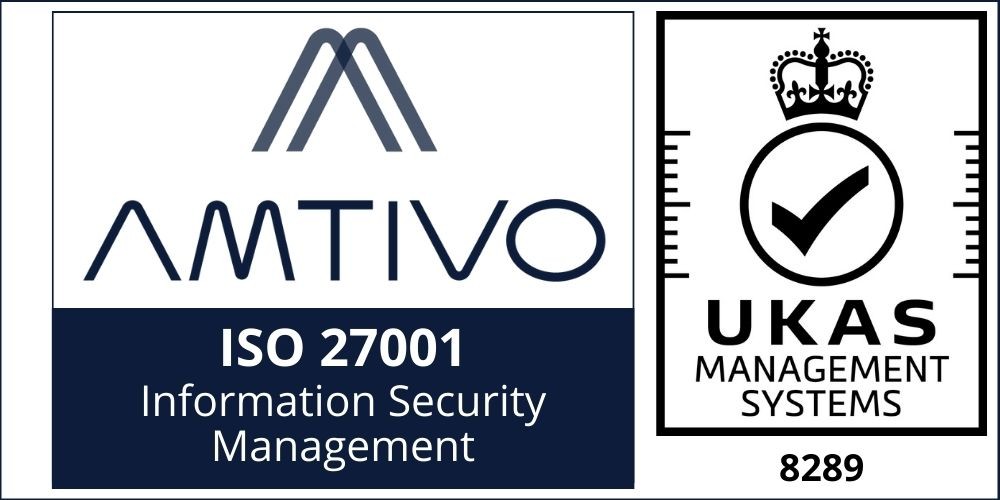
Travel Information for Indians Visiting Nepal
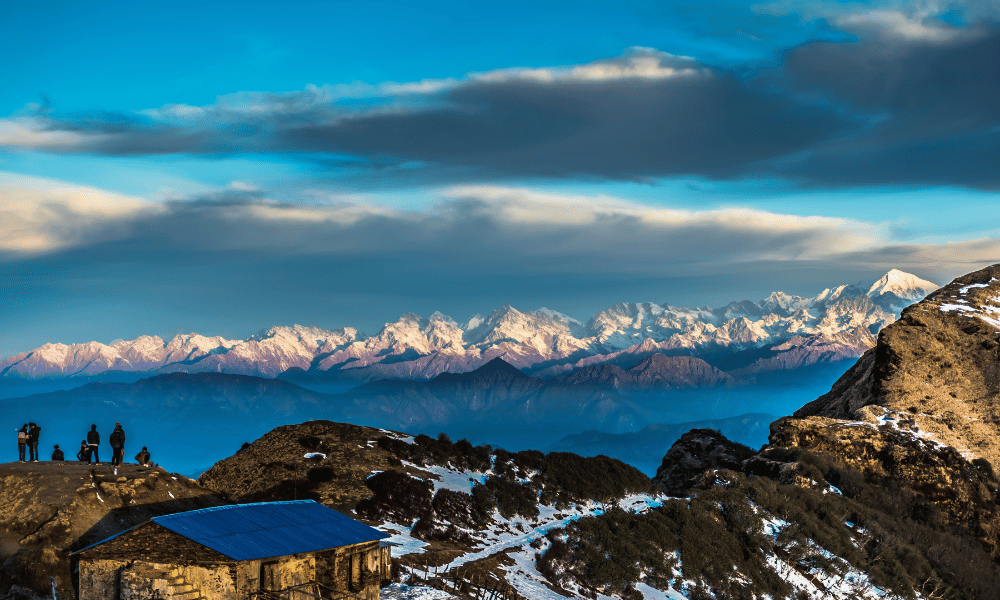
Holidays to Nepal
Nepal is a country of diverse cultures, customs, and geography. The country is known for its amazing natural landscapes, the Himalayas, and the lifestyle of the people. Visiting Nepal for Indian nationals is super easy because of the shared culture (in most dimensions) and values.
Though the geography of Nepal is varied, the people are quite accustomed to the tourism atmosphere as the country mostly relies upon tourism revenue. However, for Indian nationals, understanding the diverse nature of processes, things to do, and the documentation required to enter the country are a matter of concern.
Some of the helpful travel information to gather before entering the country is provided here for the understanding of Indian nationals who are willing to visit Nepal.
Table Of Content
Travel document, covid-19 travel requirements, vehicle and transportation, domestic flights in nepal, entrance fees, food and beverages, weather conditions, health and safety, optional activities, travel etiquettes.
For an Indian National to visit Nepal, a visa is not required. However, it is important to note that this exemption is only intended for Indian citizens and other nationals who need to obtain a visa to enter Nepal.
For NRIs (Non-Residential Indians), a visa is required to enter the country. Visas can be obtained on arrival at the point of entry (at the Airport), apply online, or visit the consular or embassy of Nepal in the respective country.
Procedures to Apply for Visa for People Other than Indian Citizens (Source: Embassy of Nepal, New Delhi )
All individuals intending to travel to Nepal need to submit an online application for a visa in the portal of the Department of Nepal Immigration.
For online application from Nepali Missions abroad, please go through the following link: https://nepaliport.immigration.gov.np/onlinevisa-mission/application
For online application before arriving in Nepal from Nepal Immigration, please go through the following link: https://nepaliport.immigration.gov.np/online and for online application after arriving in Nepal from Nepal Immigration, please go through the following link: https://nepaliport.immigration.gov.np/ and apply at the Visa-On-Arrival section.
The printed copy of the visa form generated online needs to be submitted at the Embassy along with the hard copy of the passport and its photocopy, visa copy of India/copy of the relevant document.
The required fee should be paid in local currency at the Embassy.
After following the due procedures, the Embassy will issue the appropriate visa to the applicant. For tracking the status of the visa application, follow the link: https://nepaliport.immigration.gov.np/visa-application-track
Please go through the following link for more information on Nepali tourist visa: https://in.nepalembassy.gov.np/visa/
Please go through the following link for further information on Nepali immigration: https://www.immigration.gov.np/
For any queries on the issues related to Nepali visa, please kindly contact the Consular Section of the Embassy at phone no. 01123476212, +232, +221.
Nepal Tourist Visa Fee:
Though there is an exemption on visas for an Indian citizen to visit Nepal, some documents are required for verification and the immigration process. This is applied to the Indian nationals travelling to Nepal having their legal status as a citizen of India.
Effective from 1st October 2000 an Indian citizen over the age of 18 years travelling between India and Nepal by air would have to keep in his/her possession any of the following documents to establish his/her identity as an Indian citizen.
Since the pandemic has hit most of the world now, the post-COVID travel scene is different as per the country. This has forced the travel industry to adapt to the new set of regulations. As per the regulations set by the government of Nepal, if you are traveling from India to Nepal, you are required to have a vaccination certificate or a negative PCR certificate tested within 24 hours of departure. An International Traveler Form as provided by CCMC should be filled out before departing from India.
This information is as per the present scene and in the future, the regulation may change or be modified according to the decision of the Ministry of Health, Covid Control Management Committee, Nepal.
International Airport Arrival Procedures
Indian Nationals who are visiting Nepal, need to go through Immigration at the International Airport of Nepal. After fulfilling the immigration requirements, proceed towards the baggage collection and Arrival exit.
The airport arrival process is easy for Indian citizens as there is no need to obtain a visa, considering the person entering the country is carrying either a Valid Indian Passport, Voter ID, or emergency certificate issued by the Embassy of India in Nepal.
If the person is traveling to Nepal, having their arrangements made by Holidays to Nepal Pvt. Ltd., a representative from the company will be at the main exit gate, displaying the name as discussed prior to arrival. This will make the pick-up process easy and the swift arrangements will come into effect after the arrival of the traveler. The rest of the domestic travel process can be discussed at the accommodation facility of the tourist.
Upon arrival, you can connect to the available wifi at the airport and contact us to update your situation on the arrival process. We can inform our representatives and ask him/her to prepare accordingly.
As of now, there isn’t any duty-free facility at the Tribhuvan International Airport in Nepal. In the near future, we can expect to have a duty-free service at the airport. However, there are Duty Paid shops with limited capacity in the Departure terminal to serve travelers.
Currency/Payments
The nepalese rupee (nepali: रुपैयाँ; symbol: रु; code: npr) is the official currency of nepal. the currency of nepal is pegged with the indian currency (inr) at the rate of 1.6. (i.e. inr 1= npr 1.60)..
It is also important to note that as per the circular issued by the Reserve Bank of Nepal, Indian currency having a denomination of 100 or less is accepted all over the country. But if you are traveling to Nepal, you do not have to worry about currency issues or having to carry a hefty sum of 100 rupees. The local money exchange or travel companies can easily exchange your money with any denomination to NPR.
“If you are worried about paying the travel company, we accept Indian currency and also if you need any exchange facility, we can help you do that.”
For the Payment process, you can transfer the amount to the SBI Bank of Nepal from the SBI Bank of India. Or you can transfer the amount to our Indian bank accounts. The account details will be provided in private mail.
The vehicle and transportation for Indian tourists are governed by the tourist vehicle association and provided by travel companies. The vehicle charges differ according to the type of vehicle required. In Nepal, the charge of the vehicle is not determined on a mile basis, instead, it's on the basis of sightseeing and places you visit.
Mostly, we organize private trips. So we only provide vehicles on a private basis. However, SIC transfers between some prominent cities of Nepal are available for people who want to explore Nepal in a sufficient time period.
We provide vehicle services to tourists visiting Nepal. In most cases, the vehicle is included in the tour cost. However, if you have requested vehicle-only service, the cost as per the itinerary will be provided. The disclosure on a lump-sum basis will not be entertained as there are varied determinants that decide the cost of the vehicle. However, for the add-on plans set during the trip, pro-rata charges according to the places you visit will be applicable.
Most of Nepal is untouched by the railway facility. Only one railway service is available in Nepal and that too is in the lowlands of Janakpur. It connects the Nepal and India border. To visit most of the country, you either have to take flights, a helicopter, or the drive option. But if you are planning to reach the remote mountains of Nepal, you may have only the option to trek in the mountains.
Most of Nepal is connected by domestic flights. So, you may have to reach some of the places, depending upon the itinerary tailored, by flight. In such cases, we provide airport transfers. Some of the major tourist places such as Kathmandu, Pokhara, Chitwan, Janakpur, Lumbini, Mustang, Lukla, etc. have flight accessibility. However, in the case of Lukla, a flight is the only option to reach there.
During the boarding process of a domestic flight, any of the aforementioned travel documents are required for the passenger verification process.
There are some remote mountain areas, where only small aircraft such as twin otters or STOL aircraft provide flight services. In such fleets, there are chances of cancellations and delays due to rapidly changing weather conditions. In such cases, if the vehicle transportation is accessible, you will be escorted via vehicle. But if that’s not also the case, you will have to wait until the flight becomes functional. This is mostly applicable for the flights to Lukla and Jomsom.
Entrance fees are collected for the welfare and development of the place. In most tourist places, entrance fees are applicable. However, for Indian nationals, entrance fees are exempted in some places, and in some places the fees are lower than the foreigners. This is mainly due to the neighboring bond and bilateral relations between the two countries.
For instance, in Pashupatinath temple, Indian nationals do not have to pay entrance fees. These charges are mostly excluded from our trips. And travelers are required to pay the entry charges at the point of entrance fee collection. This makes the due process convenient for the travelers as well as the company.
Nepal is a country of multi-ethnicity and cultural attributes. This country, ever since the beginning of civilization, has been ranked as a culturally enriched and diverse place. In such a small territory, there are diverse cultural groups with their own food and beverages.
In most of the places you visit, you can get Dal Bhat Tarkari. In the eateries of Kathmandu, Pokhara and other urban tourist cities, you can easily get other continental and fusion food items. However, during trekking time in the remote mountains, eating what’s there may be the only choice.
For vegetarian Indian citizens, there are so many Indian vegetarian and vegan restaurants in Kathmandu and Pokhara . In every place, if you are a vegetarian, you can request a veg food item. Hotels also provide vegetarian food as per the choice of the traveler.
If you are fond of beverages, you can get local and international beverage items in the urban cities of Nepal. In remote places, that may not be an affordable luxury.
The weather condition is also an important factor to understand in Nepal. If you are traveling to Nepal in Spring and Autumn, the weather and climate are moderate. The visibility is clear and the temperature is moderate with a pleasant atmosphere. In these months, the chances of flight delay and cancellation are also low.
Table: Kathmandu Temperature, Source: Weatherspark
During peak monsoons, during the months of June and July, traveling can be difficult due to frequent rainfall and flight delay. However, if you are traveling via the drive option, it is still possible and quite safe to visit some of the places in Nepal.
Table : Average Rainfall, Source: Weatherspark
The Winter season is also a good time in terms of the places you visit. However, if you are traveling to explore mountains, you might not get clear visibility. But for pilgrimage and leisure purposes, every month in Nepal is enjoyable and offers a wonderful experience in the incredible Nepali hospitality.
Spring, Summer, and Autumn have moderate temperatures. A light jacket and summer cloth will do in most places. However, if you are planning to visit the higher mountain areas of Nepal, depending upon the weather, you may have to carry winter jackets and clothes. Winter clothes are important during the winter season. In the outskirts of the valleys and higher elevations, there are chances of snowfall and light rain. So, carrying appropriate clothes to stay safe from frostbite and cold is important.
Health and Safety is also major concern when visiting a foreign land. If any health issues are encountered during the trip, there are many well-equipped hospitals in Nepal for your medical assistance. If you are worried about safety issues, Nepal is one of the safest countries for visitors.
The people in Nepal are hospitable. The guests in Nepal are treated with the utmost respect and given value. However, if you have encountered any issues and something doesn’t feel right during your trip, you can always get emergency support from the security personnel and even your associated travel company can assist you in the process.
Some Health and Safety Tips for Your Nepal Trip:-
Don’t use tap water in Nepal. It’s best to use mineral water.
Always eat at a good restaurant and eatery where hygiene is maintained.
If you are travelling to high elevations in the mountains of Nepal, it is best to avoid cigarettes and alcoholic beverages. Alcoholic beverages sometimes trigger altitude sickness.
Eat healthy foods.
If you are visiting Muktinath temple and other high elevation areas, there are chances of High Altitude Sickness. So, it’s important to remain hydrated and energised.
If you have any health issues or previous medical history, it's better to consult your physician before travelling to the higher elevations and inform your travel agent of the same.
While hiking in the mountains, stay on the uphill side of the trail to let the Donkeys and Mules pass.
During hiking, stay on the trail to avoid leeches. Use salt to get rid of them and be extra careful during the monsoon season.
In case you are lost, try to contact your operator. If that’s not accessible, try returning the same way you came and get support from the locals. If you are in a difficult situation and not able to find your way back, contact your tour operator and tourist police.
It is always safe to trek or hike with a local companion or a guide.
Wear sunglasses if you are in exposure to bright sunlight, especially in the snow.
You can experience so many available adventurous things in Nepal beyond a scheduled itinerary. Some adventure to the trip gives a wonderful touch to the experience. Everest Mountain Flight, Paragliding, Mountain Biking, Bungee Jumping, Canyoning, Jungle Safari in Chitwan, hiking, etc. are some of the options to explore in Nepal.
If you are keen to explore adventure activities in Nepal, visit Things to Do in Nepal . These optional activities are a part of add-on plans. And are not by default included in the package. So, if you want to do any of these activities, the cost will be raised separately.
Nepal is shaped by nature and culture. It has been one of the incredible places to explore due to its varied lifestyle, customs and geography . If you are traveling to Nepal, there are several things that you should know to maintain a healthy bond among the people of the places you visit.
Namaste is a welcoming act. You should always respond by saying the same. Putting palms together to show integrity and respect is something Nepalese people do to welcome their guests.
Do not enter temples and monasteries by wearing shoes. Leather jackets and shoes are also not appropriate clothing while visiting religious places.
Respect people around. No matter how they look, where they are, or what they do, giving respect always helps to maintain a healthy atmosphere and hospitable environment. It is not a travel etiquette but a dire need for humanity.
While staying in a hotel, if you have any complaints, you can politely ask the front desk personnel to make the necessary arrangements. If the problem is still not solved, asking your tour operator is a convenient way to sort the issue out.
Don’t hurt the sentiment of other people by sabotaging somebody’s character, ethics or morale. Nepal is mostly a Hindu country, so Hindu sentiments are widespread around.
Don’t take photographs in the ‘No Photo’ zone.
Do not litter.
Public display of affection is considered indecent in Nepal.
Market and Shopping
If you are traveling to Nepal, you can buy some souvenirs or necessary items in the Nepalese market. Thamel, Lakeside, Patan, and Durbarmarg are some popular areas to get clothes, handicrafts, footwear, and several other items. There are a lot of shops around.
In every tourist place you visit, there’s something you can buy. The local items carry a memoir of the visit and are a symbol of the travel spirit. In the evening, you can explore the nightlife in Thamel and Durbarmarg.
Would you like to book an activity or a trip with us?
Get in touch with our experts right away and finalize an experience!
Call Us Now
Similar blogs.
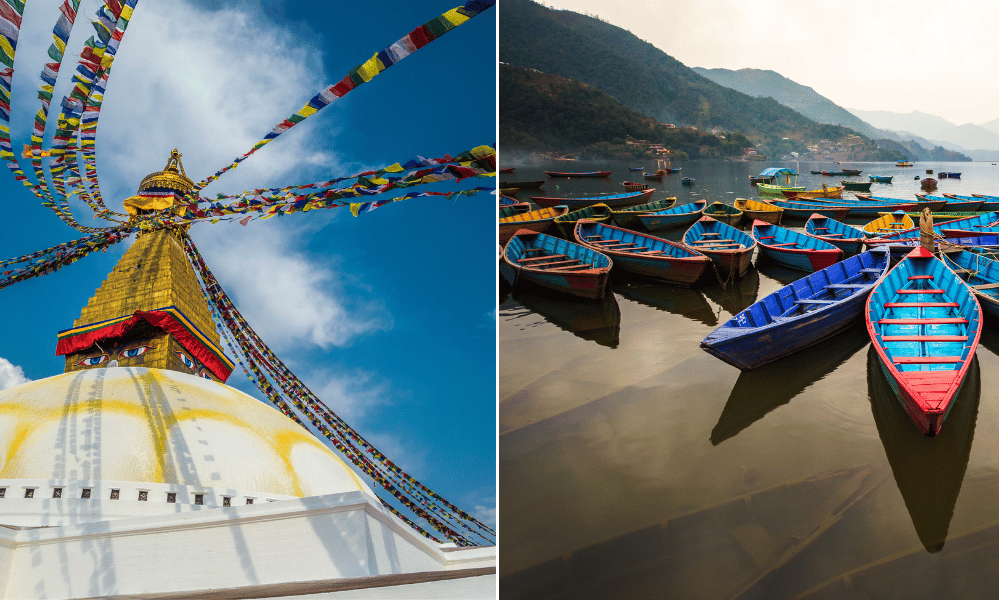
Best Time to Visit Kathmandu and Pokhara
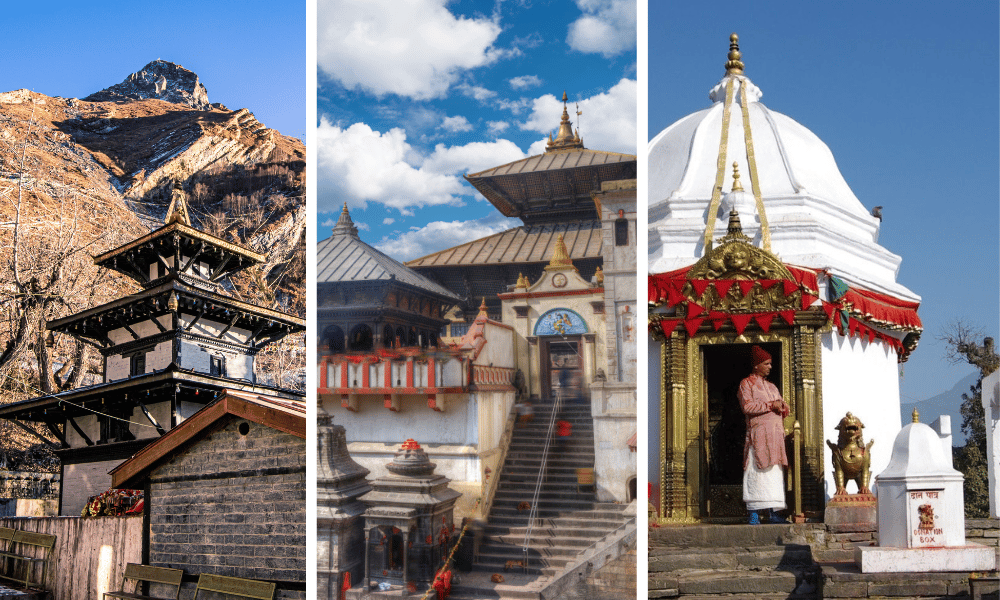
12 Must Visit Hindu Temples in Nepal
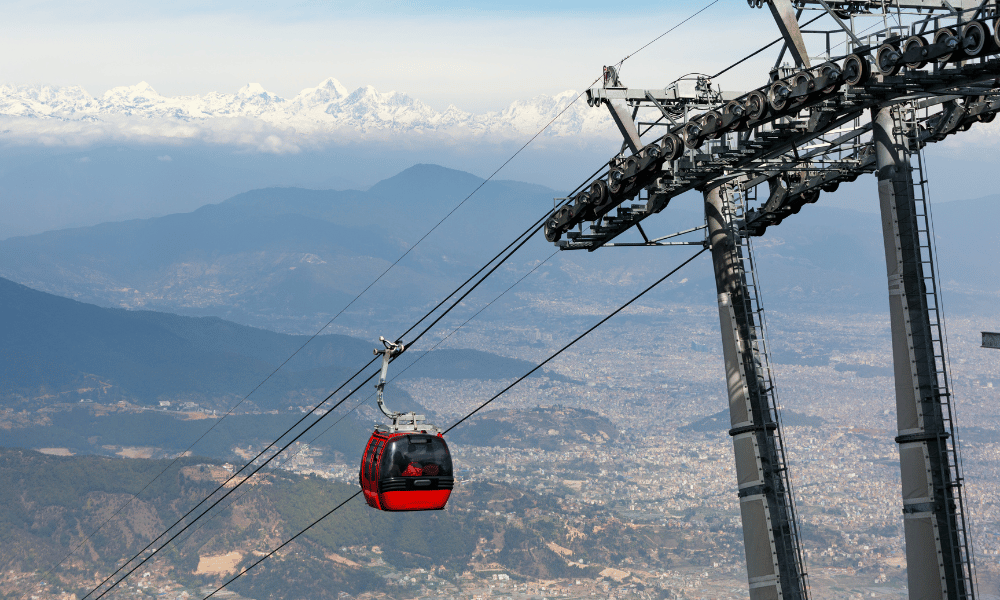
Cable Cars in Nepal
Cookies on GOV.UK
We use some essential cookies to make this website work.
We’d like to set additional cookies to understand how you use GOV.UK, remember your settings and improve government services.
We also use cookies set by other sites to help us deliver content from their services.
You have accepted additional cookies. You can change your cookie settings at any time.
You have rejected additional cookies. You can change your cookie settings at any time.
- Passports, travel and living abroad
- Travel abroad
- Foreign travel advice
Entry requirements
This advice reflects the UK government’s understanding of current rules for people travelling on a full ‘British citizen’ passport from the UK, for the most common types of travel.
The authorities in Nepal set and enforce entry rules. If you’re not sure how these requirements apply to you, contact the Embassy of Nepal in the UK .
COVID-19 rules
There are no COVID-19 testing or vaccination requirements for travellers entering Nepal.
Passport validity requirements
To avoid problems at immigration, make sure your passport has an ‘expiry date’ at least 6 months after your date of entry into Nepal.
Check with your travel provider that your passport and other travel documents meet requirements. Renew your passport if you need to.
You will be denied entry if you do not have a valid travel document or try to use a passport that has been reported lost or stolen.
Checks at border control
At border control, you may need to show:
- a travel insurance document which has cover for healthcare costs including repatriation and other emergencies while you are in Nepal
- confirmation of where you will spend your first night, for example, a hotel booking
Visa requirements
You can get a Nepal visa online up to 15 days in advance of your arrival. You can also queue up to get a tourist visa on arrival, but payment must be made in cash, with US dollars being the preferred currency. Applying in advance can reduce the time it takes you to pass through immigration. Visas are available for several lengths of stay at various costs. Look on the immigration department website for the options and how to apply .
Overstaying your visa in Nepal is a serious crime, and can lead to significant fines or imprisonment.
Vaccination requirements
At least 8 weeks before your trip, check the vaccinations and certificates you need in TravelHealthPro’s Nepal guide .
If you are arriving in Nepal directly from certain countries in Africa and Latin America, you will need to show a yellow fever certificate to enter Nepal.
Customs rules
There are strict rules about goods you can take into or out of Nepal. You must declare anything that may be prohibited or subject to tax or duty.
Bringing precious metals into Nepal is strictly regulated. You can carry gold ornaments up to 50 grams and silver ornaments up to 100 grams. If you bring in undeclared gold or silver, you may:
- get a fine equivalent to the value of the goods
- go to prison for between one month and 5 years depending upon the value of the goods
- have the goods confiscated
- be detained during the proceedings
Taking money into Nepal
When you arrive in Nepal, declare on your customs declaration any amount above the value of 5,000 US dollars in banknotes or 10,000 dollars in notes and travellers cheques combined. Customs will give a certified declaration which you must keep. You will need to convert all your Nepali currency before you leave Nepal, and the bank or exchange counter at the airport may ask you for the declaration.
ATMs are not reliable outside main tourist sites.
Related content
Is this page useful.
- Yes this page is useful
- No this page is not useful
Help us improve GOV.UK
Don’t include personal or financial information like your National Insurance number or credit card details.
To help us improve GOV.UK, we’d like to know more about your visit today. We’ll send you a link to a feedback form. It will take only 2 minutes to fill in. Don’t worry we won’t send you spam or share your email address with anyone.
Exploring Nepal: Travel Restrictions For Indian Tourists Amidst The Pandemic
- Last updated Nov 07, 2023
- Difficulty Beginner
- Category United States
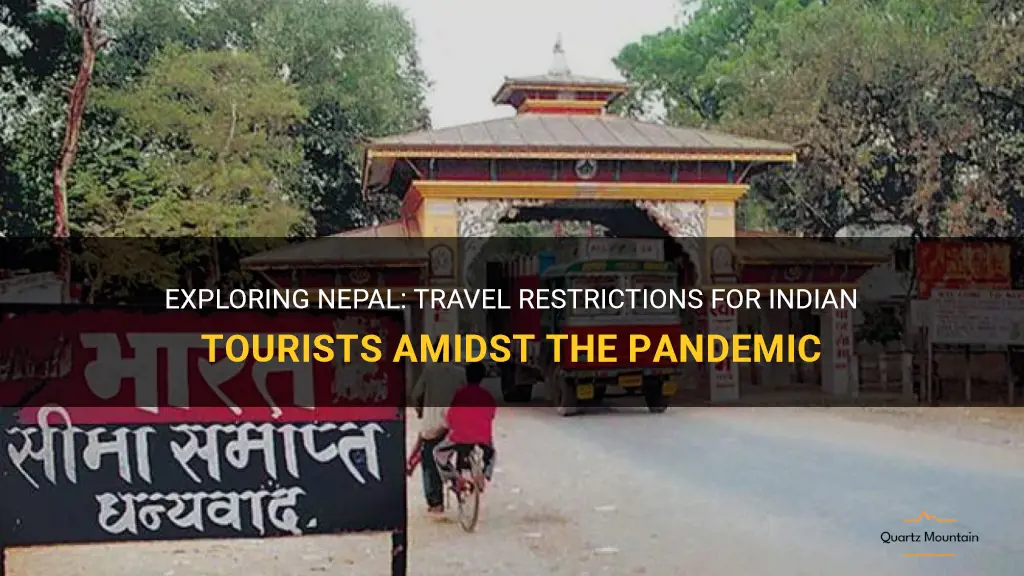
India and Nepal, two neighboring countries with rich cultural and historical ties, have always shared a strong bond. However, due to the current global pandemic, travel restrictions have been put in place between the two nations. These restrictions, aimed at controlling the spread of the virus, have impacted the normal movement of people, affecting tourism, trade, and personal relationships. In this article, we will explore the reasons behind these travel restrictions and their implications for the people of India and Nepal.
What You'll Learn
What are the current travel restrictions in place for individuals traveling from india to nepal, are there any exemptions or special considerations for certain types of travelers, how long are these travel restrictions expected to be in effect, are there any specific requirements or documentation needed for individuals wishing to travel from india to nepal, are there any alternative travel options available for individuals who cannot currently travel from india to nepal.

Due to the ongoing COVID-19 pandemic, the government of Nepal has implemented several travel restrictions and regulations for individuals traveling from India to Nepal. These measures are put in place to control the spread of the virus and protect the health and safety of the population.
Firstly, it is important to note that as of now, only limited categories of individuals are allowed to travel from India to Nepal. These include Nepali citizens, diplomatic and UN officials, and Indian nationals stranded in Nepal who need to return to their home country. Other travelers, such as tourists or individuals traveling for business purposes, are not currently permitted to enter Nepal.
For those eligible to travel, there are several requirements and protocols that must be followed. These include:
- Negative PCR Test: Individuals traveling from India to Nepal must provide a negative PCR test result for COVID-19. This test should be conducted within 72 hours before departure. The test must be conducted by a government-approved laboratory and the result should be in English.
- Quarantine: Upon arrival in Nepal, individuals are required to undergo a 10-day quarantine at a designated facility. The cost of quarantine is borne by the traveler. Additionally, individuals must have a booking confirmation for the quarantine facility before boarding their flight to Nepal.
- COVID Insurance: It is mandatory for travelers to have valid travel insurance that covers COVID-19 related expenses. This insurance should be purchased before traveling to Nepal and should cover the duration of the stay.
- Health Declaration Form: Individuals must fill out a health declaration form and submit it to the immigration authorities upon arrival in Nepal. This form includes information about recent travel history, health status, and contact details.
It is crucial for travelers to stay updated with the latest guidelines and regulations, as they are subject to change depending on the evolving situation. It is advisable to check with the embassy or consulate for the most accurate and up-to-date information before planning any travel from India to Nepal.
Examples of these travel restrictions can be seen in practice. For instance, a Nepali citizen returning from India would need to provide a negative PCR test result, book a quarantine facility, and fill out the health declaration form upon arrival. Similarly, an Indian national stranded in Nepal would require a negative PCR test and COVID insurance to travel back to India.
In conclusion, there are several travel restrictions in place for individuals traveling from India to Nepal due to the COVID-19 pandemic. These restrictions aim to control the spread of the virus and safeguard public health. It is important for travelers to familiarize themselves with the specific requirements and protocols before planning any trips to Nepal.
Understanding Canada's Travel Restrictions for Christmas: What You Need to Know
You may want to see also
Yes, there are exemptions or special considerations for certain types of travelers. These exemptions can include diplomatic personnel, children, disabled individuals, and frequent travelers. These exemptions are put in place to accommodate the specific needs and circumstances of these individuals, while still ensuring the safety and security of all travelers.
One category of travelers that may be exempt from certain restrictions is diplomatic personnel. Diplomats and members of diplomatic missions, such as ambassadors and consular officials, often have special privileges and immunities as part of their official duties. This can include exemptions from certain travel restrictions or requirements, such as visa requirements or security screenings. These exemptions are typically based on international agreements and diplomatic protocols.
Another category of travelers that may receive exemptions or special considerations are children. Depending on the age and circumstances of the child, they may be eligible for exemptions from certain requirements, such as passport or visa requirements. For example, infants or young children may not need their own passport and can be included in their parent's passport. Additionally, children traveling with both parents may be exempt from additional documentation or consent requirements. These exemptions are designed to facilitate family travel and ensure the well-being of children.
Disabled individuals may also receive exemptions or special considerations when traveling. To ensure accessibility and equal treatment, many countries have laws and regulations in place that provide exemptions or accommodations for individuals with disabilities. This can include exemptions from certain security screenings, priority boarding, assistance with mobility devices, and access to accessible facilities. These exemptions and accommodations are important to ensure equal access and inclusivity for all travelers.
Frequent travelers, such as members of trusted traveler programs or individuals who frequently travel on business, may also be eligible for exemptions or special considerations. These individuals are often pre-screened and deemed low-risk by immigration and border control authorities. This can result in expedited processing, access to dedicated lanes or programs, and exemptions from certain security measures. These exemptions are designed to reward frequent travelers for their reliability and to streamline their travel experience.
In conclusion, there are exemptions or special considerations for certain types of travelers. These exemptions can include diplomatic personnel, children, disabled individuals, and frequent travelers. These exemptions are put in place to accommodate the specific needs and circumstances of these individuals, while still ensuring the safety and security of all travelers. It is important for each traveler to understand the specific regulations and requirements that apply to their situation to ensure a smooth and hassle-free travel experience.
Exploring LA: California Travel Restrictions and Must-Know Information
As the world continues to grapple with the ongoing COVID-19 pandemic, many countries have implemented travel restrictions in an effort to control the spread of the virus. These restrictions vary by country and are subject to change as the situation evolves. How long these travel restrictions will remain in effect is a complex question without a definitive answer. However, there are several factors to consider when trying to understand the potential duration of these restrictions.
Firstly, it's important to note that travel restrictions are primarily put in place to protect public health. The duration of these restrictions will largely depend on how successful countries are in controlling the spread of the virus. If strict measures such as lockdowns, social distancing, and widespread vaccination campaigns are successful in reducing the number of cases, travel restrictions may be relaxed sooner. Conversely, if the virus continues to spread and new variants emerge, travel restrictions may need to be extended or tightened.
Another factor to consider is the global vaccination rollout. Vaccination is seen as a key tool in controlling the spread of the virus and allowing for the safe resumption of international travel. The speed and effectiveness of the vaccination campaigns around the world will play a significant role in determining how long travel restrictions remain in effect. Countries that are able to vaccinate a large portion of their population quickly may be more inclined to lift travel restrictions earlier.
Additionally, the emergence of new variants of the virus adds another layer of uncertainty to the duration of travel restrictions. Some variants, such as the Delta variant, have shown to be more transmissible and potentially more resistant to current vaccines. As new variants emerge, governments may need to reassess and adjust their travel restrictions accordingly to protect their populations.
Furthermore, travel restrictions are also influenced by geopolitics and international cooperation. Different countries have varying levels of control over the spread of the virus, and this could impact their willingness to open up their borders for travel. In some cases, countries may form travel bubbles or bilateral agreements with each other to facilitate limited travel. The duration of travel restrictions could be influenced by the ability of countries to work together and come up with safe and coordinated strategies for reopening travel.
It's worth noting that travel restrictions can have significant economic and social impacts. The tourism industry has been particularly hard hit by these restrictions, with many businesses and workers relying on international travel for their livelihoods. Governments are acutely aware of these impacts and will likely work towards finding a balance between public health and economic recovery. As vaccination rates increase and the global situation improves, there will likely be pressure to lift travel restrictions to support the recovery of the tourism industry.
In conclusion, the duration of travel restrictions is difficult to predict with certainty. It will depend on a range of factors including the success of public health measures, the global vaccination rollout, the emergence of new variants, geopolitical factors, and the economic and social impacts of the restrictions. Continued monitoring of the situation and ongoing collaboration between countries will be crucial in determining how long these travel restrictions will remain in effect.
Navigating Airline Travel Fluid Restrictions: What You Need to Know
Yes, there are specific requirements and documentation needed for individuals wishing to travel from India to Nepal. These requirements are in place to ensure a smooth and safe travel experience for both the traveler and the country of destination. Below, we will discuss the specific requirements and documentation needed for individuals planning to travel from India to Nepal.
The first and most important requirement is a valid passport. All individuals traveling to Nepal from India must possess a valid passport, with at least six months of validity remaining from the date of entry into Nepal. It is important to note that undocumented individuals or those with expired passports will not be allowed to enter Nepal.
Apart from a valid passport, individuals traveling from India to Nepal must also have a visa. Indian nationals can obtain a visa on arrival at the Tribhuvan International Airport in Kathmandu or at the border crossings. However, it is advisable to obtain a visa beforehand to save time and any potential hassle. Foreign nationals must apply for a visa at the Nepalese embassy or consulate in their home country before traveling to Nepal.
COVID-19 Travel Restrictions:
Due to the ongoing COVID-19 pandemic, there might be additional travel restrictions and requirements in place. It is crucial to check with the relevant authorities, such as the Embassy of Nepal or the Ministry of Health, for the most up-to-date information regarding COVID-19 travel restrictions. This may include providing proof of vaccination, a negative COVID-19 test result, or undergoing quarantine upon arrival.
Proof of Accommodation and Travel Itinerary:
In addition to a valid passport and visa, it is important to have proof of accommodation and a travel itinerary. This can be in the form of hotel reservations, bookings for guesthouses, or a letter of invitation from a host in Nepal, stating their address and contact information. Having a detailed travel itinerary helps with immigration and ensures a smooth entry into the country.
While not mandatory, it is highly recommended to have travel insurance when traveling to Nepal. Travel insurance provides coverage for medical emergencies, trip cancellations, lost baggage, and other unforeseen events. It is advisable to choose a comprehensive travel insurance policy that covers all possible contingencies.
Currency and Customs Declarations:
It is important to have enough cash in the local currency, Nepalese Rupees (NPR), for the duration of your trip. Currency exchange services are available at the airport and major cities in Nepal. Additionally, individuals must declare any goods or items of value they are carrying with them when entering Nepal. Failure to declare goods or providing false information can result in penalties or legal consequences.
In conclusion, individuals wishing to travel from India to Nepal must have a valid passport, obtain a visa, and comply with any additional travel restrictions due to the COVID-19 pandemic. Proof of accommodation and a travel itinerary, as well as travel insurance, will also be helpful during the immigration process. It is important to stay updated with the latest requirements and regulations by consulting the Embassy of Nepal or relevant government authorities. By ensuring you have all the necessary requirements and documentation, you can have a hassle-free and enjoyable trip to Nepal.
Navigating the International Travel Restrictions Traffic Light System: A Guide for Travelers
With the current travel restrictions in place due to the ongoing pandemic, many individuals find themselves unable to travel from India to Nepal. However, there are still alternative travel options available for those who are determined to explore the beautiful country of Nepal. In this article, we will discuss some of these alternative options that individuals can consider.
Fly to a neighboring country and take a land route:
One option is to fly to a neighboring country, such as Bangladesh or Bhutan, and then take a land route to enter Nepal. This requires careful planning and research on the available routes and transportation options. While it may take more time and effort, it can still be a fulfilling way to reach Nepal.
Travel via a third country:
Another alternative is to travel via a third country that has travel agreements with both India and Nepal. For example, individuals can fly to a country like Thailand or the United Arab Emirates, and then take a connecting flight to Nepal. This option may involve additional costs and longer travel times, but it can be a way to bypass the travel restrictions.
Explore local destinations within India:
Instead of traveling abroad, individuals can also consider exploring the local destinations within India. India itself is a diverse and culturally rich country with countless beautiful places to explore. From the majestic mountains of the Himalayas in the north to the serene beaches of Goa in the south, there is something for everyone. This can be a great opportunity to discover hidden gems within your own country.
Virtual tours and experiences:
For those who are unable to travel physically, virtual tours and experiences offer a unique way to explore a destination. Many travel companies and organizations now offer virtual tours of popular tourist spots in Nepal. These tours provide a 360-degree virtual experience, allowing individuals to immerse themselves in the culture and beauty of Nepal from the comfort of their own homes.
Plan ahead for future travel:
If all else fails, it is essential to remember that the current travel restrictions will eventually be lifted. While it may be disheartening to postpone travel plans, this is an opportunity to plan ahead for future travel to Nepal. Use this time to research and plan your dream itinerary, learn about the culture and traditions of Nepal, and save up for your future trip. It may take time, but the anticipation and excitement of finally being able to visit Nepal will be worth it.
In conclusion, while the current travel restrictions may prevent individuals from traveling from India to Nepal, there are still alternative travel options available. Whether it's exploring local destinations within India, traveling via a neighboring country or a third country, or exploring through virtual tours, there are ways to fulfill your wanderlust even during these challenging times. Remember to plan ahead, stay informed about the latest travel updates, and most importantly, stay safe. Happy travels!
Colombia Implements Travel Restrictions from India in Response to COVID-19 Surge
Frequently asked questions.
As of [current date], there are travel restrictions in place for individuals traveling from India to Nepal. Due to the rise in COVID-19 cases in India, the Nepalese government has temporarily suspended all regular international flights and closed its land borders with India. This means that individuals are currently unable to travel from India to Nepal by air or land routes.
While regular international travel from India to Nepal is suspended, there are certain exceptions to the travel restrictions. These exceptions include Nepalese citizens returning home, individuals with diplomatic or official passports, and individuals involved in essential services. However, even for those who are exempted from the travel restrictions, strict health and safety protocols, including mandatory quarantine and COVID-19 testing, may be required upon arrival in Nepal.
The duration of the travel restrictions from India to Nepal is subject to the evolving COVID-19 situation and decisions made by the respective governments. It is recommended to regularly check with the Nepalese embassy or consulate in India, as well as official government sources, for the latest updates on travel restrictions and when they may be lifted. It is important to stay informed and flexible when planning travel from India to Nepal, as the situation can change rapidly.

- Karisa Garcia Author Reviewer Traveller

- Karli Trujillo Author Editor Reviewer
It is awesome. Thank you for your feedback!
We are sorry. Plesae let us know what went wrong?
We will update our content. Thank you for your feedback!
Leave a comment
United states photos, related posts.
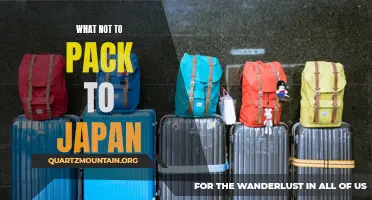
Tips on what to avoid packing when traveling to Japan
- Dec 09, 2023

A Complete Checklist: Essentials for a Romantic Picnic Date
- Nov 17, 2023
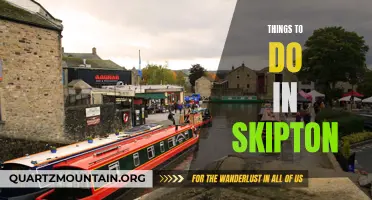
12 Fun Things to Do in Skipton for an Unforgettable Trip
- Jun 21, 2023
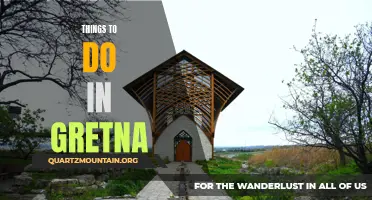
12 Exciting Things to Do in Gretna for a Memorable Experience
- May 13, 2023

Essential Items to Pack for an Amazing Adventure on Amelia Island
- Dec 30, 2023
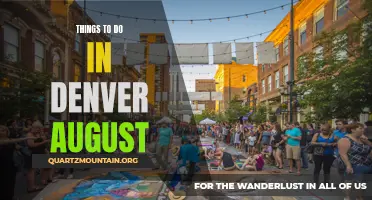
Top Events and Activities to Enjoy in Denver this August
- Jul 26, 2023

Search Smartraveller

Latest update
Exercise a high degree of caution in Nepal due to the risk of civil unrest and natural disasters.
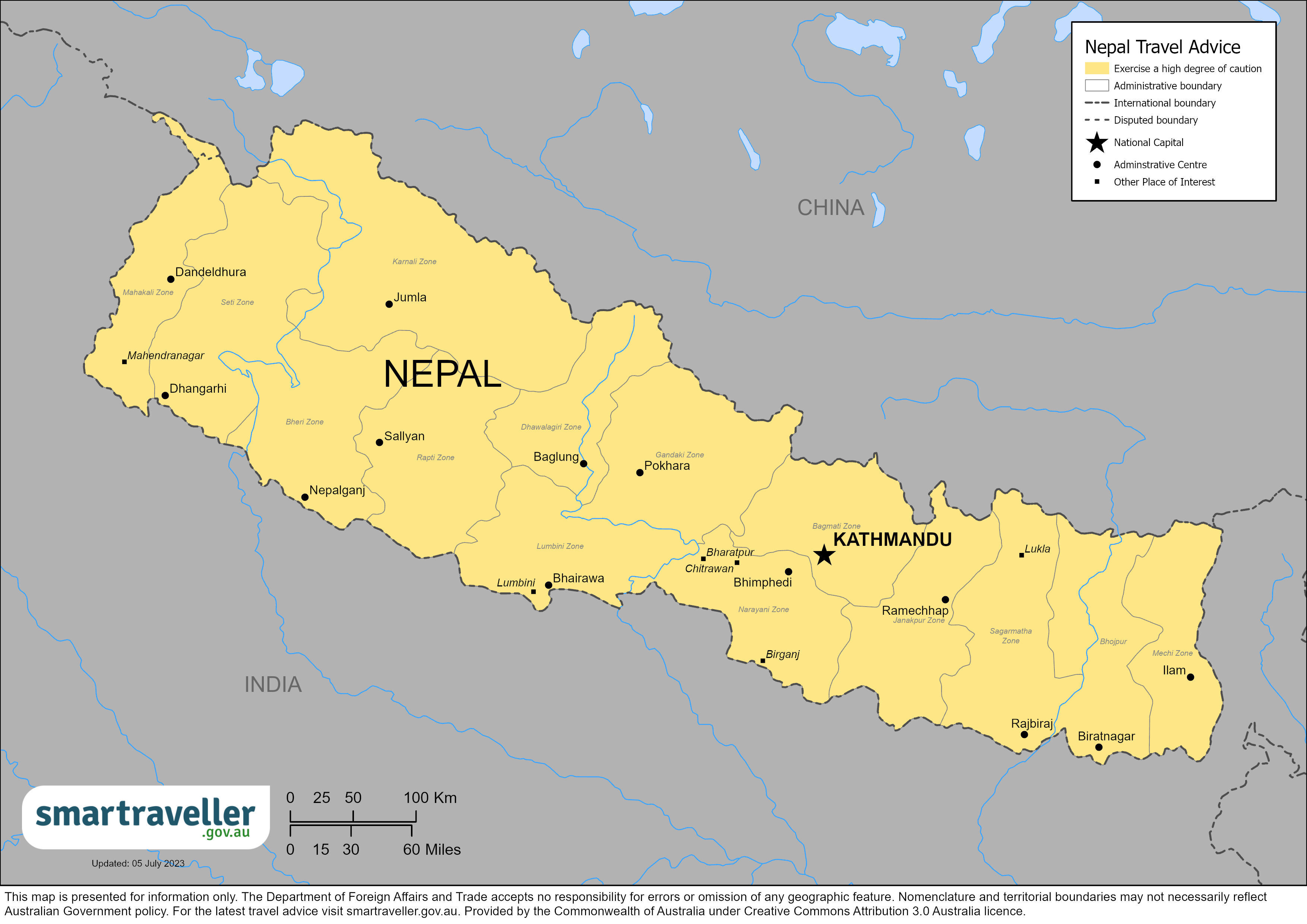
Nepal (PDF 733.49 KB)
Asia (PDF 2.21 MB)
Local emergency contacts
Fire and rescue services, medical emergencies.
Call 100 or go directly to the hospital.
Call 100 or visit the nearest police station. Alternatively, call the Tourist Police.
Traffic Police
Tourist police.
- 1144 – headquarters
- 470 0750 – Kathmandu
- 146 2761 – Pokhara
Advice levels
Exercise a high degree of caution in Nepal.
- A small number of incidents involving Improvised Explosive Devices (IEDs) occur annually, often associated with political events, such as election periods. Physical confrontations between rival political organisations can also occur. In November 2022, there were several small-scale explosions in Nepal.
Terrorism is a threat worldwide. An attack could happen anywhere and at any time.
- Political protests are commonplace and general strikes occasionally occur. Strikes can disrupt essential services. Don't visit government buildings during political unrest. Reconsider the need to operate a vehicle during strikes as it may be a target. Don't participate in public protests as it would breach your visa conditions, and you would be arrested and deported.
- Pickpocketing and petty theft are common. Bag-snatching and 'snatch-and-grab' attacks by thieves on motorbikes occur. Keep your belongings close. Don't travel alone; females are at a higher risk of assault.
- Travellers have been victims of armed robberies and assaults, including sexual assaults. Drink spiking often occurs before a sexual assault. Never accept food, drinks, gum or cigarettes from strangers. Don't leave your food or drinks unattended.
- Nepal experiences earthquakes, landslides, floods and severe weather. Be prepared for a major emergency. Keep an emergency kit that includes first aid supplies and bottled water.
Full travel advice: Safety
- Altitude sickness is a risk above 2,500m. It can be life-threatening. It can affect anyone, even people who are physically fit. Ensure your travel insurance covers medical evacuation from altitude. Some towns, including Kathmandu, have high levels of seasonal smog and pollution. Get medical advice if you have breathing difficulties.
- Malaria is a risk in the Terai (plains) and Hill districts and Chitwan National Park. Consider taking anti-malarial medicine for these areas. Other mosquito-borne diseases are becoming more common, including in Kathmandu. These include dengue and Japanese encephalitis. Ensure your accommodation is insect-proof. Get vaccinated against Japanese encephalitis before you travel.
- Rabies is common. It's fatal without immediate treatment. Avoid dogs, monkeys and other mammals. Get medical help straight away if an animal bites or scratches you.
- HIV/AIDS is common. Take steps to reduce your risk of exposure to the virus.
- Waterborne, foodborne, parasitic and other infectious diseases are common. These include typhoid, cholera and hepatitis. Drink only boiled or bottled water. Avoid raw or undercooked food.
- Medical facilities in Nepal are very limited, especially outside Kathmandu. In Kathmandu, treatment at high-standard clinics is expensive. If you're seriously ill or injured, you'll need medical evacuation. Ensure your travel insurance covers this.
Full travel advice: Health
- Don't use or carry illegal drugs. You may be offered illegal drugs in tourist areas. Penalties for drug offences are severe, including for possessing small amounts.
- Be careful when taking photos. It's illegal to photograph army barracks, checkpoints and military personnel.
- Don't participate in public protests as it would breach your visa conditions, and you would be arrested and deported.
- It's illegal to convert people from their religion. Punishment can include jail. If you're suspected of trying to convert people, you will likely be deported and banned from re-entering Nepal.
- Same-sex relations are legal. However, society is conservative. LGBTI travellers have reported harassment and discrimination. Avoid public displays of affection.
- Nepal doesn't recognise dual nationality. Always travel on your Australian passport.
Full travel advice: Local laws
- You need a visa to enter Nepal. Visas-on-arrival are available, but travellers should check with the nearest Nepal Embassy for details and conditions.
- You no longer need to complete a pre-departure COVID-19 (PCR) test or show a vaccination certificate on arrival in Nepal.
- Nepal is issuing trekking and mountaineering permits, but you should check with your intended tour provider on operations in the 2023 spring and autumn seasons.
- The local currency is the Nepalese Rupee (NPR). Exchange foreign currency for NPR at banks and exchange bureaus in major centres. Major hotels and commercial centres accept credit cards. ATMs are uncommon in remote areas. Carry enough cash to cover your needs.
- Only use registered taxis and authorised limousines. Taxi drivers often refuse to use meters and overcharge travellers. Negotiate the fare with the driver before you go. Avoid public buses and vans. They're overcrowded and poorly maintained. Intercity buses often have serious accidents. Women may be harassed on public buses.
Full travel advice: Travel
Local contacts
- The Consular Services Charter details what we can and can't do to help you overseas.
- To stay up to date with local information, follow the Embassy's social media accounts.
- For consular help, contact the Australian Embassy in Kathmandu .
Full travel advice: Local contacts
Full advice
Civic unrest and political tension.
A small number of incidents involving Improvised Explosive Devices (IEDs) occur annually, often associated with political events, such as election periods. These attacks have caused deaths and serious injuries. Physical confrontations between rival political organisations can also occur.
These incidents usually don't target travellers, but you could get caught up in violence aimed at others.
Threats have been made against religious organisations in Nepal. This includes schools.
Demonstrations and protests
Calls for political protests, strikes and demonstrations sometimes are common. Violent clashes between protesters and authorities can occur. Avoid visiting government buildings during political unrest.
During strikes, authorities may enforce curfews at short notice in the areas that protests affect. This happens throughout Nepal.
Illegal roadblocks and enforced national or local strikes can occur. These happen without notice and continue for long periods.
Road travel can be dangerous. Protesters may forcibly stop vehicles, including taxis, or target them with projectiles.
Travel services may also be affected. This includes travel to trekking areas and outside of the Kathmandu valley.
To reduce your risks during strikes:
- limit your movements - don't go out unless you have to
During periods of unrest:
- avoid demonstrations, protests and other public gatherings
- monitor the media for new threats, especially when political tensions are high
- avoid affected areas
- obey curfews
- follow the instructions of local authorities
More information:
- Demonstrations and civil unrest
Petty crime
Pickpocketing and petty theft are common, especially:
- at tourist sites and airports
- from hotel rooms
Bag-snatching and 'snatch-and-grab' attacks by thieves riding motorcycles occur. Victims are often injured.
Police have increased their presence in Thamel and Durbar Marg to reduce crime in these areas.
To reduce your risk of petty crime:
- only carry a copy of the main pages of your passport, not the original
- walk on footpaths away from the curb, with your bag held on the opposite side to the traffic
- keep your personal belongings close, especially in crowded areas
- avoid travelling alone, especially if you're a woman
- never trek alone
- If you're the victim of fraud or a scam, report it to local police immediately.
Violent crime
Travellers have been victims of armed robberies and assaults, including sexual assaults .
Victims of sexual assault often have their drinks 'spiked' before the assault. This happens in popular areas of Kathmandu and Pokhara.
Women are at particular risk, especially when alone and at night.
To protect yourself from drink spiking:
- never accept food, drinks, gum or cigarettes from strangers
- don't leave drinks unattended
- if you aren't sure if a drink is safe, leave it
- stick with people you trust when you're out
Get urgent medical help if you think you or a companion have had your drinks spiked.
Cyber security
You may be at risk of cyber-based threats during overseas travel to any country. Digital identity theft is a growing concern. Your devices and personal data can be compromised, especially if you're connecting to Wi-Fi, using or connecting to shared or public computers, or to Bluetooth.
Social media can also be risky in destinations where there are social or political tensions or laws that may seem unreasonable by Australian standards. Travellers have been arrested for things they have said on social media. Don't comment on local or political events on your social media.
More information:
- Cyber security when travelling overseas
To stay safe from terrorism:
- be alert to possible threats, especially in public places and places frequented by foreigners
- report any suspicious activity or items to the police
- take official warnings seriously
- follow the advice of local authorities
If there's an attack, leave the area immediately if you can.
Tours and adventure activities
Transport and tour operators don't always follow safety and maintenance standards. This includes adventure activities, such as trekking, paragliding, rafting or kayaking.
Paragliding accidents have caused serious injuries and deaths. Rivers can be unpredictable and dangerous, even for experienced kayakers and rafters.
Mountaineering can be dangerous. Some mountaineering expedition companies may hire inexperienced guides and save other costs in order to offer cheaper prices, including to climb Mount Everest. Carefully check a company's credentials and experience before you book.
If you plan to do an adventure activity :
- check if your travel insurance policy covers it
- ask about and insist on minimum safety requirements
- always use available safety gear, such as life jackets or seatbelts
If proper safety equipment isn't available, use another provider.
Trekking and mountaineering
With conditions, foreign tourists are permitted to enter Nepal for mountain trekking and mountaineering. All foreigners require a permit for trekking and mountaineering. Solo foreign trekkers are required to have a licenced trekking guide. Trekking is managed through the Trekkers' Information Management System (TIMS) by:
- Trekking Agency Association of Nepal (TAAN)
- Nepal Tourism Board (NTB)
All foreign trekkers must have a valid TIMS card. This includes those not travelling with organised groups.
TIMS cards help authorities locate trekkers in case there's an emergency.
Get a TIMS card through:
- authorised trekking companies
- TAAN offices in Kathmandu or Pokhara
- the NTB office in Kathmandu
Special regulations apply to mountaineering expeditions. All expedition members must have permits.
Get a licenced trekking guide through authorised trekking companies.
Trekking risks
Some trekking companies or guides may offer condensed treks. This is to attract travellers with limited time or budgets.
Shorter treks may not give you enough time to get used to high altitude. This may cause excessive physical strain and lead to significant health problems or death. See Health .
Make sure you have travel and medical insurance that covers:
- the altitude you'll reach
- altitude sickness
- emergency evacuation by helicopter or other means
See Health
Research regulations that apply to trekking in the area, such as permits or registration. Confirm requirements through:
- reputable companies in Nepal or Australia
- an embassy or consulate of Nepal
Find out how long you need to safely complete your trek, especially at high altitudes.
A trek to Everest Base Camp should take at least 12 days from Lukla. This is the start and end points of treks in the Everest region.
Hire a trekking company with a good reputation and professional guides.
Don't trek alone. Solo foreign trekkers are required to have a licensed trekking guide.
Before you travel, check:
- the security situation
- route conditions
- likely weather in the area
Be ready to change your plans.
For more information on trail conditions, check the Himalayan Rescue Association .
Let family or friends know about your plans. Tell them how long your trek will take and your route.
Medical evacuation
Sometimes trekkers are pressured into taking expensive helicopter evacuations. This can happen at the first mild signs of ill health, without having had a proper medical consultation.
In such cases, insurance companies have declined to pay for the evacuation. The trekker must then pay the cost.
Some people have reported cases of dishonest trekking guides deliberately serving contaminated food or water. The aim was to make travellers sick to justify their evacuation.
Individuals who arrange helicopter evacuations sometimes falsely claim to have checked with a trekker's insurance company.
Some travellers have been encouraged to provide false or misleading information to insurance companies about an evacuation.
If you become ill while trekking, confirm if your insurance covers evacuation costs. Do this yourself, if possible, before you agree to a helicopter evacuation.
Telecommunications
Telecommunications facilities are limited and can be unreliable, especially outside major cities and towns.
Mobile phone coverage doesn't exist in many rural and remote areas.
Essential supplies
Electricity supplies can be unreliable, including in Kathmandu. Unreliability increases during winter and in the lead up to the monsoon season.
Shortages of essential supplies can happen with limited notice. Essential supplies include:
Shortages can affect businesses, including hotels and guesthouses.
Climate and natural disasters
Nepal experiences earthquakes , landslides, floods and severe weather .
Major natural disasters can lead to:
- injuries and deaths
- disruptions to transport and essential services
- damage to infrastructure
- food shortages
- health issues.
Be prepared for a major emergency. Keep an emergency kit that includes:
- first aid supplies
- water treatment tablets or stocks of bottled water.
If a natural disaster occurs:
- keep your passport in a safe, waterproof location
- monitor local media
- keep in touch with friends and family
- avoid unnecessary travel to affected regions.
Register with the Global Disaster Alert and Coordination System to receive alerts on major disasters.
Earthquakes
Nepal is in an active earthquake zone. Earthquakes and tremors are common.
Landslides, floods and avalanches
Landslides and floods resulting in deaths occur regularly in Nepal. This happens especially during the monsoon season, from June to September.
Major roads and all trekking areas can be affected.
Avalanches can happen at any time of year.
Severe weather
Storms and blizzards can occur with little or no warning, especially in the Himalayas.
Travel insurance
Get comprehensive travel insurance before you leave.
Your policy needs to cover all overseas medical costs, including medical evacuation. The Australian Government won't pay for these costs.
If you can't afford travel insurance, you can't afford to travel. This applies to everyone, no matter how healthy and fit you are.
If you're not insured, you may have to pay many thousands of dollars up-front for medical care.
- what activities and care your policy covers
- that your insurance covers you for the whole time you'll be away.
Physical and mental health
Consider your physical and mental health before you travel, especially if you have an existing medical condition.
See your doctor or travel clinic to:
- have a basic health check-up
- ask if your travel plans may affect your health
- plan any vaccinations you need.
Do this at least 8 weeks before you leave.
If you have immediate concerns for your welfare or the welfare of another Australian, call the 24-hour Consular Emergency Centre on +61 2 6261 3305 or contact your nearest Australian Embassy, High Commission or Consulate to discuss counselling hotlines and services available in your location.
- General health advice
- Healthy holiday tips (Healthdirect Australia)
Medications
Not all medication available over the counter or by prescription in Australia is available in other countries. Some may even be considered illegal or a controlled substance, even if prescribed by an Australian doctor.
If you plan to bring any medication, check if it's legal in Nepal. Take enough legal medicine for your trip.
Carry a copy of your prescription and a letter from your doctor stating:
- what the medicine is
- your required dosage
- that it's for personal use
Health risks
Air pollution.
Air quality in Nepal varies, especially in winter. Some towns, including Kathmandu, experience high levels of seasonal smog and pollution.
Get medical advice if you're worried about air pollution.
- Pollution levels in Kathmandu
Altitude sickness
If you travel to an area higher than 2,500m, you might develop altitude sickness .
Altitude sickness can be deadly. It can affect anyone, even if you're very physically fit.
Your risk of altitude sickness increases if you:
- ascend too quickly
- have had altitude sickness before
- exercise or drink alcohol before you can adjust to the altitude
- have health problems that affect your breathing.
If you'll be travelling above 2,500m, get advice from your doctor before you travel.
Insect-borne illnesses
Malaria is a risk in:
- the Terai (plains) and Hill districts
- Chitwan National Park.
Other insect-borne diseases are becoming more common, including in some areas of Kathmandu. These diseases include:
- Japanese encephalitis
To protect yourself from disease:
- make sure your accommodation is insect-proof
- use insect repellent
- wear long, loose, light-coloured clothing
- get vaccinated against Japanese encephalitis before you leave
- consider taking medicine to prevent malaria.
- Infectious diseases
HIV/AIDS is common.
Take precautions if engaging in activities that expose you to the virus.
Other health risks
Waterborne, foodborne, parasitic and other infectious diseases are common. These include:
- swine flu (influenza A H1N1)
- bird flu (avian influenza)
- leptospirosis
Serious outbreaks sometimes occur.
Highly contagious eye problems, such as conjunctivitis , are common after the monsoon season.
To protect yourself from illness:
- drink boiled water or bottled water with sealed lids
- avoid ice cubes
- avoid raw and undercooked food, such as salads
- avoid contact with dogs and other mammals and birds.
Get medical advice if you have a fever or diarrhoea.
Animals may carry rabies in Nepal. If a stray dog, monkey or other mammal bites you:
- immediately wash the wound with soap and water
- get urgent medical treatment.
Medical care
Medical facilities.
Medical facilities and ambulances in Nepal are very limited, especially outside Kathmandu.
In Kathmandu, treatment at high-standard clinics is expensive. Up-front payment is usually needed.
If you become seriously ill or injured, you'll need to be evacuated to a place with better facilities. Medical evacuation can be very expensive.
You're subject to all local laws and penalties, including those that may appear harsh by Australian standards. Research local laws before travelling.
If you're arrested or jailed, the Australian Government will do what it can to help you under our Consular Services Charter . But we can't get you out of trouble or out of jail.
In tourist areas, it's common to be offered to buy drugs.
Penalties for drug offences are severe. Even if you're found with small quantities, authorities can convict and jail you.
- Carrying or using drugs
Surrogacy laws
Commercial surrogacy has been illegal since 2015.
- Going overseas for international surrogacy
- Going overseas to adopt a child
It's illegal to take photos or videos of:
- army barracks
- checkpoints
- military personnel.
It's illegal to convert people from their religion. Punishment can include jail.
If authorities suspect you're trying to convert people, you will likely be deported and banned from re-entering Nepal for years.
Same-sex relationships are legal. Nepali LGBTI+ people actively advocate for their rights. However, Nepal is a conservative and traditional society.
Some LGBTI+ travellers have reported harassment and discrimination. Avoid public displays of affection.
- LGBTI travellers
Australian laws
Some Australian criminal laws still apply when you're overseas. If you break these laws, you may face prosecution in Australia.
- Staying within the law
Dual citizenship
Nepal doesn't recognise dual nationality.
If you're a dual citizen, this limits the consular services we can give if you're arrested or detained.
Always travel on your Australian passport .
- Dual nationals
Local customs
Dress codes are relaxed in tourist areas of Kathmandu and Pokhara. Other parts of the country are more conservative.
Dress modestly to avoid offending locals. If in doubt, seek local advice.
Visas and border measures
Every country or territory decides who can enter or leave through its borders. For specific information about the evidence you'll need to enter a foreign destination, check with the nearest embassy, consulate or immigration department of the destination you're entering.
You need a visa to enter Nepal. Visas-on-arrival are available but travellers should check with the nearest Nepal Embassy for details and conditions.
You need a valid visa in your passport to leave Nepal.
Maximum stays
Australians in Nepal may be able to extend their visas. Please consult Nepal's Department of Immigration for updates.
Expired visas
You must have a valid visa in your passport to leave Nepal.
If your visa has expired, extend it at the Department of Immigration before you leave.
If you overstay your visa, authorities can detain you until you pay a fine. The amount of the fine is based on the number of days you overstayed.
Entry and exit conditions can change at short notice. Contact the nearest embassy or consulate for details about visas, currency, customs and quarantine rules.
Border measures
You no longer need to complete a pre-departure COVID-19 (PCR) test, show a vaccination certificate or quarantine on arrival in Nepal.
Nepal’s land borders are open to foreign nationals. Follow the Australian Embassy Facebook and Twitter accounts for regular updates.
Contact an embassy or consulate of Nepal for details.
Some countries won't let you enter unless your passport is valid for six months after you plan to leave that country. This can apply even if you're transiting or stopping over.
Some foreign governments and airlines apply the rule inconsistently. Travellers can receive conflicting advice from different sources.
You can end up stranded if your passport is not valid for more than six months.
The Australian Government does not set these rules. Check your passport's expiry date before you travel. If you're not sure it'll be valid for long enough, consider getting a new passport .
Lost or stolen passport
Your passport is a valuable document. It's attractive to people who may try to use your identity to commit crimes.
Some people may try to trick you into giving them your passport. Always keep it in a safe place.
If your passport is lost or stolen, tell the Australian Government as soon as possible:
- In Australia, contact the Australian Passport Information Service .
- If you're overseas, contact the nearest Australian embassy or consulate .
If you get an emergency passport, you must also transfer your visa to your new passport before leaving Nepal.
To do this, present the following to the Department of Immigration :
- a police report
- two current passport-sized photographs
Passport with 'X' gender identifier
Although Australian passports comply with international standards for sex and gender, we can't guarantee that a passport showing 'X' in the sex field will be accepted for entry or transit by another country. Contact the nearest embassy, high commission or consulate of your destination before you arrive at the border to confirm if authorities will accept passports with 'X' gender markers.
- LGBTI travellers
The local currency is the Nepalese Rupee (NPR).
Declare all amounts over $US5,000 or equivalent on arrival and departure. This covers all forms of currency, not only cash.
You can't take more than $NPR5,000 in or out of Nepal.
You can change foreign currency for NPR at banks and exchange bureaus in major centres.
Credit cards are accepted at major hotels and commercial places.
ATMs are not common in remote places. Carry enough cash to cover your needs.
Local travel
Monsoon season.
The monsoon season generally occurs from June to September but can be unpredictable.
Expect travel disruptions and be prepared to change your plans.
Road travel can be dangerous, especially in the low-lying Terai (plains), where the risk of flooding is higher.
Landslides are common in mountainous areas, including the Kathmandu valley.
Airports may close. Air travel disruptions are common.
Monitor Nepal weather information for up-to-date information on conditions. Contact your travel provider about possible disruptions to your travel plans.
Travel from Nepal to India
Nepal’s land borders are open to foreign nationals. For information on the entry requirements for India please refer to the Smartraveller India specific travel advice.
Contact the nearest embassy or consulate of India for up-to-date information.
- Travel advice for India
- Indian Ministry of Home Affairs
Travel from Nepal to Tibet
Generally, only travellers in organised tour groups get visas and permits for the Tibetan region of China.
If you're planning to travel to Tibet:
- check the travel advice for China
- contact an embassy or consulate of the People's Republic of China
If you're in Nepal, contact the Embassy of the People's Republic of China in Kathmandu.
Driving permit
To drive in Nepal, you need both:
- a valid Australian driver's licence
- an International Driving Permit (IDP)
Get your IDP before you leave Australia.
Your travel and vehicle insurance could be void if you drive without an IDP.
If you stay for longer than six months, you need a Nepali driver's licence.
The minimum driving age is 18 years.
Road travel
You're more likely to die in a motor vehicle accident in Nepal than in Australia.
Driving can be dangerous due to:
- crowded and poorly maintained roads
- poor driving standards
- aggressive drivers who ignore traffic laws.
Road travel is dangerous at night, especially in rural areas.
Landslides and flooding can damage or block rural roads. This is common during the monsoon season from June to September. Towns or areas are often cut off for days at a time.
Landslides and other disruptions can occur on the Mugling-Narayanghat highway, a section of the road between Kathmandu and Chitwan National Park, and the Prithvi Highway, the road between Kathmandu and Pokhara.
Road travel can be disrupted due to:
- demonstrations and strikes
- roadworks and infrastructure projects.
Significant delays on major roads within cities and towns, as well as on highways, are common.
Open drains and uncovered manholes are a risk to pedestrians and cyclists.
Locals often assume foreigners are at fault in car accidents, regardless of the situation. They may demand money. Crowds of onlookers can gather quickly after an accident and may turn hostile.
Car accidents resulting in injuries often lead to confrontations and road closures. Violence against drivers also happens.
If you plan to drive in Nepal:
- learn local traffic laws and practices
- monitor the media for road closures
- always keep your car windows up and doors locked
- avoid travel between cities after dark.
If you're involved in a traffic accident and are worried about your safety:
- stay in your locked vehicle
- phone 103 for the Traffic Police
- wait for the police.
- Driving or riding
Motorcycles
Check if your travel insurance policy covers you when using a motorbike, quad bike or similar vehicle.
Always wear a helmet. Helmets bought in Nepal may not meet Australian safety standards.
Only use registered taxis and authorised limousines. Arrange them through your hotel or resort.
Taxi drivers often refuse to use meters and overcharge travellers. Negotiate a fare with the driver before the trip.
Fuel shortages can make it hard to get local taxis and other forms of transport.
Public transport
Travel on public buses and vans is dangerous. These vehicles are overcrowded and poorly maintained.
There are frequent accidents with multiple deaths involving intercity buses.
Accidents involving private hire cars and jeeps travelling between cities regularly occur and can cause injuries or death. If you are concerned, ask your driver to slow down and drive safely.
Women are often harassed, including sexually, on public buses.
- Transport and getting around safely
Check with your airline or tour operator for updates on your flight.
In normal circumstances, cancellations and delays are common, especially during:
- tourist seasons when the airport is crowded
- bad weather (especially throughout the monsoon season).
Check weather conditions before travelling. Bad weather conditions in mountainous and hill regions could further increase the risk to your safety and cause lengthy delays. Airfields such as Lukla's, in the Solukhumbu (Everest) region, are among the most remote and difficult to land on. These airfields are challenging for even the most technically proficient pilots and well-maintained aircraft.
All carriers from Nepal have been refused permission to operate air services to the EU due to safety concerns.
There have been several air accidents in Nepal over the last 10 years, including:
- 15 January 2023, a Yeti Airlines flight from Kathmandu to Pokhara with 72 people on board crashed shortly before landing. All 68 passengers and four crew were killed.
- 29 May 2022, a Tara Air flight from Pokhara to Jomsom with 22 people on board crashed shortly after take-off in bad weather. All 16 passengers and six crew were killed.
- 12 March 2018, a US Bangla Airlines flight from Bangladesh with 71 passengers on board crashed on landing at Kathmandu International Airport. Fifty-one passengers were killed.
- 26 February 2016, an Air Kasthamandap flight with 11 passengers on board crashed while flying between Nepalgunj and Jumla. Two crew members were killed.
- 24 February 2016, a Tara Air flight with 20 passengers on board crashed while flying between Pokhara and Jomsom. Twenty-three passengers were killed.
Check Nepal's air safety profile with the Aviation Safety Network.
DFAT doesn't provide information on the safety of individual commercial airlines or flight paths.
Tourism complaints
Contact your provider with any complaints about tourist services or products.
You can also lodge a complaint with the Nepal Tourism Board .
Emergencies
Depending on what you need, contact your:
- family and friends
- travel agent
- insurance provider
Traffic Police
Always get a police report when you report a crime.
Your insurer should have a 24-hour emergency number.
Consular contacts
Read the Consular Services Charter for what the Australian Government can and can't do to help you overseas.
For consular help, contact the Australian Embassy in Kathmandu.
Australian Embassy, Kathmandu
300 metres north of Narayan Gopal Chowk Bansbari, Kathmandu Phone: (+977 1) 437 1678 Fax: (+977 1) 437 1533 Email: [email protected]
Website: nepal.embassy.gov.au Facebook: Australian Embassy, Nepal X: @AusAmbNP
Check the Embassy website for details about opening hours and any temporary closures.
24-hour Consular Emergency Centre
In a consular emergency, if you can't contact an embassy, call the 24-hour Consular Emergency Centre on:
- +61 2 6261 3305 from overseas
- 1300 555 135 in Australia

Travelling to Nepal?
Sign up to get the latest travel advice updates..
Be the first to know official government advice when travelling.
Embassy of India, Kathmandu, Nepal
- Ambassador Profile
- People's Corner
- Holidays at the Embassy
- Working Hours
- Deputy-chief-of-mission
- Ambassador's Office
- Deputy-Chief
- Administration Wing
- Commerce Wing
- Consular Wing
- Defence Wing
- Brief - Pension Paying Office, Pokhara
- Pension Paying Office, Dharan
- Development Partnership Wing
- Economic Wing
- Education Wing
- Political Wing
- Press, Information & Culture Wing
- ICCR in Nepal (Swami Vivekananda Cultural Centre)
- Nepal Bharat Library
- Security Wing
- Reconstruction Wing
- Previous Ambassadors
- About India-Nepal Relations
- Emergency Telephone Number of Indian Missions/Posts for Grievances
- Right to Information
- About Amrit Mahotsava
- Emergency Contact Numbers
- Consular Services
- Valid Travel Documents
- Emergency Travel ID
- Entry of Indian Registered Vehicles in Nepal
- Kailash Mansorvar yatra (Via Nepal)
- Mountaineering Expeditions in Nepal
- Passport Services
- Passport Fees
- eTourist Visa (eTV)
- Download Forms
- Notice - Visa & Passport
- Medical Degree Verification
- Visa & Passport Contact Address
- IMPORTANT NOTICE FOR OCI/PIO CARD HOLDERS
- Renunciation of Indian Citizenship
- Registration of Indian students in Nepal
- Registration of Indian Nationals in Nepal
- FAQ on Marital Disputes
- About Development Partnership
- Tender Notice
- Development Partnership - Downloads
- Contact Address
- About Reconstruction Wing
- About Press, Information and Culture
- Mission Life
- PIC Contact Address
- About B. P. Koirala Foundation
- Board Members
- Structure of the Foundation
- About Nepal Bharat Library
- New Arrivals in Library
- Services Offered
- Membership Requirements
- Membership Application Form
- Library Hours
- About Defence
- PPO Pokhara
- PPO Kathmandu
- Bhu Puu Magazine
- Record Office Indian Embassy
- ECHS Branch
- Sampark Alumni Network
- Scholarships/Forms
- About Education and Scholarship
- Indian Technical & Economic Co-operation (ITEC) Programme
- Calendar of Scholarship Scheme
- Advisory for Indian students seeking admissions in medical colleges/Universities in Nepal
- Events/Photo Gallery
- Press Releases
- Republic Day
- Independence Day
- Commerce Wing Brief
- Business Opportunities in Nepal
- A handbook for Indian Investors in Nepal
- Complaints on Trade Disputes
- e-catalogue for Exports of Indian Millets
- About Economic Wing
- Vehicle Permit Fees
- Skip to main content
- Screen Reader Access

भारतीय राजदूतावास काठमांडू, नेपाल Embassy of India Kathmandu, Nepal

- Home › Consular › Visa
Introductory Information
- Except Bhutan & Nepal Nationals all foreign nationals including children MUST obtain a visa to travel to India
- Please do not finalize your travel arrangements to India before ascertaining the visa requirements.
- Validity of Visas is effective from the date of issue and not from the date of entry into India
- The Embassy of India, Kathmandu reserves the right to delay/refuse visa without assigning any reasons. Visas are issued subject to various checks and clearances. Visa fee once deposited will not be refunded.
- The Embassy of India, Kathmandu reserves the right of granting and deciding type of visa / duration of visa / number of entries, irrespective of the fees rendered.
- Passport must be valid for a minimum period of six months and in cases of long term visas, at least till the duration of the visa requested for.
- Acceptance of visa application does not necessarily mean grant of visa.
- Suppression of facts or furnishing misleading/false information will result in denial of visa without assigning any reasons.
- Granting of visa does not confer the right of entry which is subject to the discretion of the Immigration Authorities.
- Canvassing for visa, suppression of material facts or submission of forged / false documents is a disqualification. Overstay of visa or violation of visa rules is a disqualification for grant of future visa.
- No objection letter from either of the parents is required if a minor is traveling with one parent.
- If the minor is traveling alone or with relatives, consent letter signed by both the parents is required
- Visa applications of non-resident foreign nationals will be entertained for short term Tourist visa (3 month or 6 month/single entry). They are advised to obtain long term Tourist visas and other categories of visas from the country of their origin.
VISA SERVICE: General Information
- With effect from 19.11.2012 all visa applications submitted at the Indian Visa Service Centre (IVSC) (i.e. by the ordinary passport holders) and at the Embassy of India, Kathmandu (i.e. by Diplomatic, Official and UNLP passport holders) will only be accepted in the online form.
- From 17.09.2009, Embassy of India, Katmandu has authorized Nepal SBI Bank to operate Indian Visa Service Centre' (IVSC) at the following address:
Indian Visa Service Centre (IVSC) House No.296, Kapurdhara Marg, Kathmandu (Adjacent to Indian Embassy, Kathmandu) Tel: 009771-4001516, Fax: 009771-4001517 E-Mail: visa[dot]india[at]nsbl[dot]com[dot]np , Website: http://nepalsbi.com.np/content/indian-visa-service-center-ivsc.cfm
WORKING HOURS
- Online visa applications can be submitted at the visa counter of the IVSC between 0930 hrs to 1200 hrs on all working days. Processing time is 7-10 days or more depending on the visa regulations.
- Delivery of passports affixed with visas can be collected next working day of submission of original passport from the counter of the IVSC between 1500 hrs to 1700 hrs on all working days.
GUIDELINES FOR APPLYING & OBTAINING MANDATORY ONLINE VISA
- Visit Embassy of India, Kathmandu website www.indembkathmandu.gov.in . Click on “Visa & Passport” on the Home page of the website and then click on “ Visa” for general information/instructions on visa and type of visa, you wish to apply. You will find all relevant information pertaining to the visa category selected therein. You may then click on the hyperlink “Online Visa Application” to be redirected to the Government of India Visa Online Application Website: www.indianvisaonline.gov.in for the online visa application form.
- Carefully note down the Temporary Application ID number (15 alpha numeric characters), which will be displayed immediately on the Government of India Visa Online application form. This can be saved to retrieve your application and continue in case you wish to complete part of the application later.
- Upon successfully completing the online application, you will receive a Web Reference Confirmation Number . The completed Government of India Visa Application form will open up in PDF format at this stage. Save the form and print out the same for submission to the Indian Visa Service Centre, House No.296, Kapurdhara Marg, Kathmandu (Adjacent Embassy of India, Kathmandu) on the next day.
- When filing the Online Form, please ensure all details entered are accurate. The option to edit form is not available once the form has been saved. In such case, a new form needs to be filled with correct information.
- You can use either an Ink-Jet or Laser printer to print the completed Visa Application Form once you have submitted online.
- This site is best viewed in Internet Explorer (Windows) version 8.0 and above.
- You must also have Adobe Acrobat Reader version 7.0 or a higher version installed on your computer in order to download and print the completed application form.
- Printout of the completed form, signed by applicant in presence of officials of the Indian Visa Service Centre, should be submitted along with supporting documents and passport for scrutiny and processing of visa to Indian Visa Service Centre, Kathmandu on the next day.
- Submission of all relevant documents mentioned in the checklist on the website is important for acceptance of the visa application at the Indian Visa Service/Embassy of India, Kathmandu.
- It is a mandatory requirement to ensure that your photo is 2 inch x 2 inch (51mm x 51mm) in size with white background. Photos which do not meet this specification will not be accepted . Detailed requirements regarding the photo can be found in the Indian Online VISA Site.
- The online visa application form should be filled at least one day in advance of submission of application form print-out at the Indian Visa Service Centre/Embassy of India, Kathmandu.
- In case of any difficulty in filling up of visa application forms, applicants may please call our Indian Visa Service Centre Tel: 00971-4001516.
Information regarding Online Visa Application is also available at the website of Indian Visa Service Center, Kathmandu - http://nepalsbi.com.np/content/indian-visa-service-center-ivsc.cfm Note:
- Depending on the speed of your Internet connection, it may take several minutes to download the initial and completed copies of the form/s.
- Once you have completed your online application form please ensure that you bring a hard copy of the completed and signed form with you when visiting the Indian Visa Service Centre. Incomplete applications or those not signed by applicants themselves or containing incorrect information are liable for rejection without any claim for fee refund.
On first day of visit to the IVSC
- Produce your online visa application and your passport for scrutiny and processing of your visa request.
- Collect your receipt and note the date for your next visit.
- Keep the fee receipt carefully. Present the same during your subsequent visit.
- Transit visa will be granted on the next day of submitting the print out of duly completed online visa application form.
Important Notice for Agents
- In the part of “applicant contact details ” on the online visa application form, the applicant is required to fill the personal contact number on the online application form. The visa application form containing agent contact number instead of applicant contact number will not be accepted at India Visa Application Centre.
THE ONLINE VISA APPLICATION - FREQUENTLY ASKED QUESTIONS (FAQs) Question: What information will I need to complete the application? Answer: Information needed on the India Visa Application is as under:
- Personal information: Name, Last name at birth (If different), Marital Status, Gender, Date of birth, Place of birth
- Spouse information (if married): Maiden name, Name, Nationality
- Nationality: Current nationality, Acquired by birth or by naturalization
- Nationality at birth, Any other nationality held at present/past
- Educational Qualification, Religion (you may choose not to disclose)
- Present address: Street number, City, State, Zip
- Permanent address: Street number, City, State, Zip, Country
- Contact numbers: Home/Hotel phone, Cell phone
- Profession / Employer information: Name, Address, City, State, Zip, Country
- Passport information: Passport number, Date of issue, Date of expiration
- Details of any other Passports/Identity Certificate held
- Parent’s information: Father/Mother's name, nationality of Parents or Grandparents (paternal and maternal) who at any point held Pakistan Nationality? (If yes): provide detail
- Previous Indian Visa information: Visa Type, Number of entries, Places to visit, Object of Journey
- Visited India before (if yes): Addresses visited, Cities visited, Consulate that issued visa Starting/Ending Dates
- Have you ever been refused an Indian visa before? (if yes): Provide details
- Are you holding a valid "No objection" to return to India endorsement? (If yes): Provide details
- Have you worked with Armed Forces: provide organization, place of posting, designation/rank.
- Expected Date of departure from Nepal to India, Port of arrival in India
- Reference information in India: Name, address and phone number of reference in India
- Reference information in Nepal: Name, address and phone number of reference in Nepal
- Countries visited in the last 10 years
Question: What do I choose for Indian Mission? Answer: Your Indian Mission is the location of the processing site where you will submit your application. Question: What do I enter if I don’t have a 'Citizenship or National ID number'? Answer: Please enter 'NA'. Do not enter your social security number, insurance number or driver's license number. Question: There is no place for me to enter my middle name. Where do I type it in? Answer: Enter your middle after your first name in the Given Name field. Question: I am an unemployed adult. What can I enter under 'Profession'? Answer: Choose 'Other' and in the 'Employer Name and Address' field, please enter 'None'. Question: I am completing a form for my baby who does not have a profession. What can I enter? Answer: Choose 'Other' and in the 'Employer Name' field, please enter 'NA minor child'. If you child is going to school, please choose 'Student' under profession. Question: The options under 'Profession' does not include my job. What can I do? Answer: You have the option to choose 'Other' and in the 'Designation/Rank' field, specify your job title. Question: How do I answer 'Any other valid Passport/Identity Certificate(IC) held?'. Answer: If you possess any other passport, travel document or Identity Certificate that is valid and issued to you by the country of your current nationality or any other country, answer yes and provide the required details in the specific columns provided for this. If not, answer no. Question: I am not comfortable disclosing my religion. What can I do? Answer: You have the option to choose 'Others' and in the field below that, enter NA. Question: If I completed the online application, but I did not print copy of my application, what should I do? Answer: We suggest you check your email with our Online Visa Registration Details from the Indian government website webmaster. This email will contain your Web File Number. Choose continue with registration and on the next page, choose the grey 'RePrint' button on upper right hand corner of the screen. If you continue to encounter issues, you are allowed to complete a new online application. Question: What can I do if I am having trouble completing the online visa application? Answer: Please verify that Javascript and cookies are enabled on your computer. Also check that the date/time on your computer is set correctly. If the date/time is set in the future, this can result in not being able to advance past the first page in some browsers. Question: Can I save my application, and come back to it later? Answer: When you begin an application online, you will be provided with a Temporary Application ID which is usually 15 alphanumeric digits. Using this Application ID and temporary password, you will have up to seven days to complete your application. You can resume a partially completed application by going to the online India visa application , choose "Continue Registration". On the following page in the upper right hand corner, enter your Temporary Application ID number and choose "Go". Please remember that if you do not complete your application within seven days, your application will be deactivated and you will have to start a new application. Question: Is there a different version of the application that can be faxed or emailed to me? Answer: You must use the online application form. The form is bar coded and will store your information securely for faster processing. No handwritten application forms will be accepted. Question: I made a mistake on my visa application, how should I correct it? Answer: Mistakes made on your online visa application cannot be corrected after you press ‘SAVE’ option. Please ensure that all information is complete and that passport information is entered exactly as shown on your passport. If you continue to encounter issues, you are allowed to complete a new online application. . BRIEF INFORMATION AND REQUIREMENTS ON VARIOUS CATEGORIES OF VISA: Documents required for all type of Visa:
- Copy of Passport
- Copy of Nepalese visa
- Copy of previous Indian visa
I TOURIST VISA (TV):
- As per the extant instructions of the Government of India, a Tourist Visa can only be granted to a foreigner who does not have a residence or occupation in India and whose sole objective of visiting India is recreation, sight-seeing, casual visit to meet friends and relatives etc.
- No other activity is permissible on a Tourist Visa.
- It is non-extendable and non-convertible to other types of visas and its misuse would entail deportation by Indian authorities. It may also entail denial of visa by the Mission.
- Tourist visa, maximum period of 12 months validity could be granted to foreigners.
- Repeated applications for Tourist visa will not be entertained.
I eTourist Visa (eTV) Please click on the link for the official website regarding e Tourist Visa (eTV) – https://indianvisaonline.gov.in/evisa/tvoa.html
II BUSINESS VISA (BV): It is mandatory for Business Visa applicant to be a resident in Nepal for at least 2 years
- Business Visa needs to be obtained from Indian Mission of the country of origin of the applicant or from the country of domicile of the foreigner provided the period of permanent residence of that applicant in that particular country is over two years.
- Business visa will be granted to a foreign businessman who wants to visit India to establish an industrial/business venture or to explore possibilities to set up industrial/business venture.
- Business visa will also be granted to a person who intends to visit India for purchase and sale of industrial products.
- It is generally granted for short visits to India for engaging in business or attending business meeting/negotiations.
- Undertaking employment with BV is illegal.
- This visa is to be used for short visits and not for continuous stay in India for engaging in business.
- Business visa will not be granted to foreign nationals coming for executing projects/contracts in India.
- A foreign national coming for executing projects/contracts will not be granted Business Visa. They may apply for grant of Employment Visa in Indian Mission in country of origin of the applicant.
- Family members of a foreign national granted Business Visa may apply for grant of an ‘X’ visa (i.e. Dependent Visa). The validity of ‘X’ Visa could be co-terminus with the validity of the principal Visa holder.
- Appropriate document endorsing business involved in is necessary which include the following:
- Company Registration Certificate
- Position held by the applicant in the company
- Invitation letters from company in India and letter from applicant’s company sponsoring the business visit to India indicating nature of applicant’s business, probable duration of stay, places and companies in India to be visited, are to be enclosed.
- Copy of Business Registration Certification issued by the Nepal authorities should be enclosed along with application.
III STUDENT VISA (SV):
- Granted for study only in Government of India recognized educational institutions/Colleges for foreigners to pursue a recognized course.
- Before seeking admission, Students are advised to confirm production of documents relating to recognitions of the institute/college for study by foreigners and recognition of the course. .
- Student visa is granted only for the term of the course.
- Certificate issued by the educational authorities in India, should indicate the full term of the course as well as the relevant year in which the applicant would be pursing the course.
- Submission of proof of Academic records in respect of education completed will be necessary. Evidence of admission to the Institute/Course from recognized University / Board (Indicate name of Institution/address/Tel & Fax no. & e-mail/website address)
- Certificate as a student if already pursuing studies in India
- Photocopies of relevant academic certificates on the basis of which admission is sought or has been obtained and satisfactory evidence of financial support - bank guarantee / letter of support from parent / guardian
- Student should also produce evidence of transfer of funds for at least 4 months sustenance in India
- Tourist Visa is not convertible to Student Visa. Seeking admission /studying in India under Tourist visa is illegal
- A provisional student visa for 3 months will be issued on the basis of provisional admission certificate/letter of offer issued by the university/recognized college or educational institution in India. If the admission is not given/ confirmed within the stipulated period, the student will have to leave India. This visa can be extended through local FRRO while studying in India, if required.
IV EMPLOYMENT VISA (EV) It is mandatory for an Employment Visa applicant to be a resident in Nepal for at least 2 years
- Copy of the Contract/Agreement of Employment with the Indian employer in Senior Managerial/Executive positions or jobs needing very special skills, will be necessary.
- Proof of registration of the company under relevant provisions of the Government of India rules,
- A letter from the employer indicating nature of the job, salary structure and duration of hire
- Justification letter from the employer for proposing to hire a foreigner should be submitted. Proof of qualifications and work experience of the applicant also need to be enclosed.
- The spouse and children accompanying the applicant would be issued the visa only after the applicant obtains employment visa. The copy of the applicant‘s employment visa should be attached with the spouse/children application along with a copy of marriage/birth certificate/s.
- Employment visa is extendable in India by Immigration Department. Registration is mandatory.
V TRANSIT VISA (TRV)
- It is granted for the sole purpose of enabling a foreigner to travel through India to reach his ultimate destination.
- Validity of Transit Visa is 15 days and stay should not exceed 03 days
- For stay in India beyond 03 days, appropriate visa must be obtained.
- Applicant must submit detailed travel plans along with his/her form and produce confirmed tickets.
VI RESEARCH VISA (RV)
- The foreigner who desires to undertake research in India should apply to the concerned Indian Mission with a copy of the subject of research projects, details of places to be visited, previous visits, evidence of confirmed admission to recognized or reputed institutions and evidence of financial resources.
VII CONFERENCE VISA (CV) Following Documents are required to be attached along with the application for a Conference Visa:
- Invitation letter from the organizer.
- Security clearance from the Ministry of Home Affairs, Govt. of India.
- Administrative approval of the nodal Ministry.
- Political clearance from the Ministry of External Affairs, Govt. of India.
- Clearance from the State Government/UT concerned.
VIII JOURNALIST VISA (JV)
- Applicants representing recognized print/electronic media and visiting India on professional work must apply well in advance.
- Interview is mandatory for Journalists while applying for visa including for Tourist Visa.
IX ENTRY VISA (XV)
- Granted to spouse of Indian nationals, particularly those who want to live in India with their Indian wife/husband. Permanent place of residence of the Indian national in India is necessary.
- Spouse of the Indian national must enclose along with the application form, a copy of the Indian passport of his/her spouse with the applicant’s name duly endorsed in the Indian passport, along with a copy of the marriage certificate. Original registered marriage certificate should be produced at the time of visa application.
- XV is also issued to spouse and children of foreign nationals who have been issued with Business/Employment Visa
- XV is extendable in India.
X MEDICAL VISA (MV) & MEDICAL ATTENDANT VISA (MXV ) Applicants going to India for medical treatment need to submit the following:
- Confirmed appointment with doctor/reputed hospital in India and a request letter to the Embassy of India, Kathmandu by concerned doctor/hospital.
- Original medical papers indicating appointment and requirement for treatment in India
- Medical papers showing current medical treatment in Nepal with details
- Details of hospital/clinic where the applicant intends to seek treatment or has been referred to by doctors in Nepal
- Medical visa is issued for treatment only for reputed hospitals in India.
REGISTRATION OF FOREIGNERS IN INDIA It is necessary when a foreigner intends to stay in India continuously for a period beyond 180 days. It is mandatory in respect of foreigners visiting India on Student/Employment/Research/Entry/Medical/Medical Attendant Visas.
- The registration has to be done within 14 days of his/her first arrival with the concerned Foreigners Regional Registration Office (FRRO) in India.
- Registration is not endorsed on passport and acceptance of disembarkation card on arrival by Immigration officials does not amount to registration. A separate Certificate of Registration / Residential Permit (RP) is issued by Immigration officials in India on fulfillment of conditions.
- The registration document is required to be shown to the Immigration officials at the port of departure, every time, while departing India. It is required to be surrendered to the immigration officials at the port of departure at the time of last departure, when another immediate visit on the same visa is not anticipated.
- Travel to Nepal
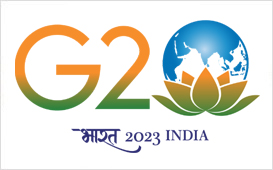
- Terms & Conditions
- Privacy Policy
- Copyright Policy
- Hyperlinking Policy
- Accessibility Statement
© 2018 Embassy of India, Kathmandu, Nepal. All Rights Reserved.
Visitors: 12124964 | Page last updated on: 23-04-2024
Designed by Jadon Webtech Pvt Ltd
- Culture & Lifestyle

- Madhesh Province
- Lumbini Province
- Bagmati Province
- National Security
- Koshi Province
- Gandaki Province
- Karnali Province
- Sudurpaschim Province
- International Sports
- Brunch with the Post
- Life & Style
- Entertainment
- Investigations
- Climate & Environment
- Science & Technology
- Visual Stories
- Crosswords & Sudoku
- Corrections
- Letters to the Editor
- Today's ePaper
Without Fear or Favour UNWIND IN STYLE

What's News :
- Qatar emir's Nepal visit
- Nepal to test Indian spices
- Communist parties for left unity
- Rice price soars
- Alzheimer's disease
India stops tea-laden Nepali trucks on border for lab tests
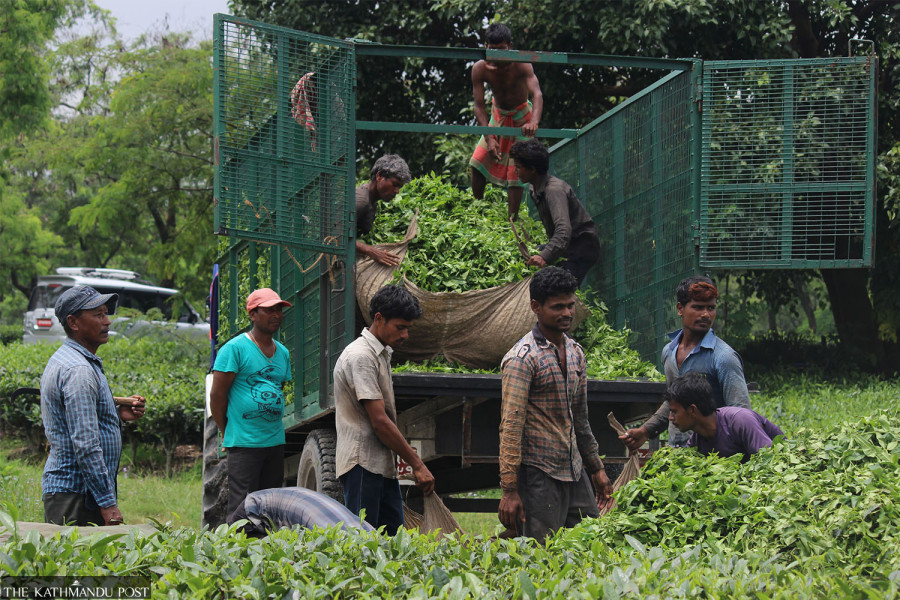
Parbat Portel
As India has asked its customs authorities to test the quality of India-bound Nepali tea, trucks laden with tonnes of tea destined for the southern neighbour are currently stuck at the Panitanki Customs across the Nepal-India border.
Nepali traders say India’s Commerce Ministry recently issued a circular to its customs offices to test the quality of all tea imports from Nepal.
In 2005 and 2015, the Commerce Ministry of India had issued a similar circular to its customs to conduct mandatory lab tests on Nepali tea.
“Since then, Indian customs had been randomly sampling 5-20 percent of Nepali tea,” said Eshwor Raj Poudel, consul general of Nepal to Kolkata, India. “But this time the Indian government ordered sampling every single batch, or 100 percent, of tea before exporting to India. The new circular has created problems,” he said.
Citing the circular, Poudel said, the southern neighbour has directed its customs to allow Nepali tea only after a negative report for toxins.
A few weeks ago, a lab test report of tea exported from Ilam to India came with a positive result for toxins, which has caused a problem in the export of Nepali tea to India, Poudel said.
“If the lab report of the new sample comes positive, it will give an easy excuse for India to stop the import of Nepali tea,” Poudel said.
Nepali tea samples are tested at the National Food Laboratory, Kolkata, India.
It takes 15 days for the results, which is likely to increase the cost of Nepali tea.
“We are compelled to park the tea-laden trucks on the road until the report comes. The tea can get damaged if it is held for a longer time,” said Roshan Agrawal, a customs agent. “There are no well-managed customs on the Indian side due to which we are forced to wait for the report by parking the trucks on the road.”
Poudel said that he has informed the Nepali Embassy in New Delhi and the Foreign, Agriculture and Industry and Commerce ministries about the issue. He said he also informed the Indian Embassy in Nepal about the problem.
“We have asked the Indian authorities to stick with the existing circular and not to enforce the new one,” Poudel said. “As the issue is related to public health, we don’t know how India will take our request,” he said.
Around 92 percent of Nepal-produced tea is exported to India through the eastern border point while 6 percent is exported from Biratnagar and 2 percent from Birgunj.
Some traders suspect geopolitics may be behind the new “hassles”. Recently, there have been reports that Nepal has been exploring alternative markets like China and Pakistan—two arch rivals of India—to export its tea.
Officials from Pakistan and China have been visiting Nepal to study tea and to potentially look for long-term supply agreements, according to the sources privy to the matter.
Nepal’s tea exports declined by 11.82 percent in the first eight months of the current fiscal year compared to the same period last fiscal year, customs data show.
Nepal exported 9,823 tonnes of tea—both orthodox and CTC—worth Rs2.46 billion during the review period.
Demand for Nepali tea has been rising as the bushes in Darjeeling have aged. Therefore, the Nepali tea leaves were a valuable input for the factories in and around Darjeeling, traders said.
For years, Indian buyers have been alleging that Nepal’s tea is substandard and, as a result, offering lower prices. Nepali tea is often stopped at different border points under various pretexts.
In June 2022, India’s Parliamentary Standing Committee on Commerce asked the Indian government to apply stringent requirements for the certificate of origin on tea imported from Nepal .
The committee had said the entry of low-quality products from neighboring countries was jeopardising the Indian tea industry and called for the imposition of anti-dumping duty ranging from 40-100 percent. The panel had also called for a review of the Indo-Nepal Treaty of 1950. In 2018, 11 trucks carrying tea were stopped at the Indian customs at Panitanki for a week over quarantine issues. Again, in 2020, over a dozen trucks carrying Nepali tea were stranded on the bridge over the Mechi river for days.
The Darjeeling Tea Association, for a long time, had been requesting the Indian government to stop tea imports from Nepal.
The National Tea and Coffee Board has prepared draft guidelines, which are in the final stages of completion to give the CTC tea a quality trademark recognition. In September 2020, Nepal’s orthodox tea got its trademark, 157 years after the country started growing the herb.
The market for Nepali CTC tea is also gradually being expanded to other countries.
Parbat Portel Parbat Portel is the Jhapa correspondent for Kantipur Publications.
Related News
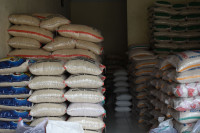
Rice prices hit record high amid Indian ban
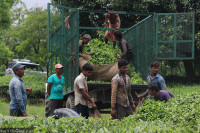
Nepal sets sight on multi-billion dollar LGBTIQ tourism market
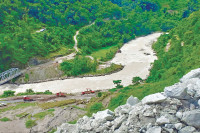
1,063 MW Upper Arun receives World Bank nod

Central bank panel proposes monthly QR code payment limit at IRs100,000 for Nepalis in India
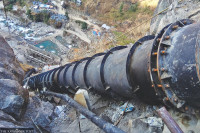
Political uncertainty clouds Nepal’s investment summit
Most read from money.
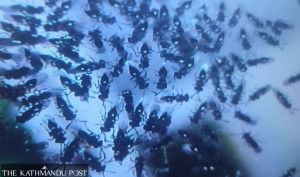
Nepal scientists confirm old remedy for armyworm
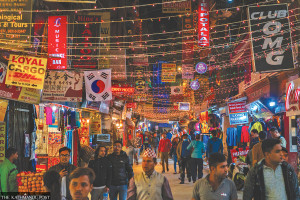
Thamel now open 24/7
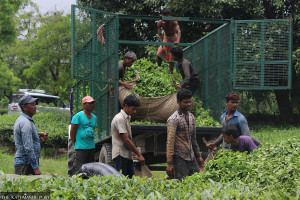
Escalating Middle East crisis threatens Nepali economy
Editor's picks.
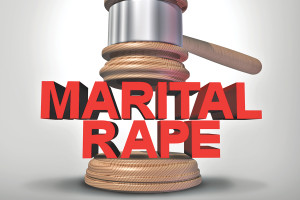
Laws on marital rape still murky in Nepal
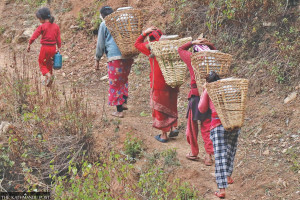
As springs dry up, water shortage deepens in high altitude villages of Mallarani in Pyuthan
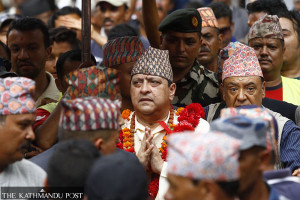
Melodrama for monarchy
E-paper | april 23, 2024.
- Read ePaper Online

IMAGES
VIDEO
COMMENTS
Only the following two documents are valid for Indian Nationals travelling by air between India and Nepal:-. VALID INDIAN PASSPORT. OR. Original Indian Voter ID card with Photograph. (issued by Election Commission of India) Note: Downloaded or online print Voter ID card containing details is not acceptable as travel document.
90 days. INR 10,500/-. VISA FOR INDIAN NATIONALS: Effective from 1st October 2000 an Indian citizen over the age of 10 years travelling between India and Nepal by air would have to keep in his possession any of the following documents to establish his/her identity as an Indian citizen. Valid Indian passport; or,
Call us in Washington, D.C. at 1-888-407-4747 (toll-free in the United States and Canada) or 1-202-501-4444 (from all other countries) from 8:00 a.m. to 8:00 p.m., Eastern Standard Time, Monday through Friday (except U.S. federal holidays). See the State Department's travel website for the Worldwide Caution and Travel Advisories.
Identity documents required for Indian citizen going to/coming from Nepal by Air:- Valid National passport. Photo Identity card issued by the Government of India/State Govt./UT Administration in India to their employees or Election ID card issued by Election Commission of India. Emergency Certificate issued...
Entry to Nepal. Identity documents required for Indian Citizens travelling to Nepal. (a) A citizen of India entering Nepal by land or air does not require a passport or visa for entry. (b) A citizen of India, while travelling by air between India and Nepal, is required to be in possession of any of the following identity documents to establish ...
Visa On Arrival We have been facilitating tourism promotion through "Visa on Arrival". We have made things easier for tourists visiting Nepal. Our On Arrival Visa Procedure is very simple. Before you board on the plane, make sure you are national eligible for Visa on Arrival. Steps to acquire...
Here's the good news - for most travelers, the entry requirements for Nepal are fairly simple and pain-free. Indian citizens do not need a tourist visa to visit the country, and most other tourists can get a 15-, 30- or 90-day visa on arrival. This includes visitors from the United States, Canada, Australia, New Zealand, Japan, South Korea ...
Visitors from India are not required to present a negative COVID-19 PCR test or antigen result upon entering Nepal. Can I travel to Nepal without quarantine? Travellers from India are not required to quarantine. Do I need to wear a mask in Nepal? Mask usage in Nepal is not required in public spaces and public transportation. Are the restaurants ...
Indian citizens do not need a tourist visa when travelling to Nepal in 2024. Indian passport holders can stay in Nepal for a short period of time. Please, read all the information below to make your trip easy and safe. Don't rely on information from only one source. Please, with at least one more source listed in the link. Updated: 04/09/2024.
30 days visa - $40 USD. 90 days visa - $100 USD (Includes multiple entry fees of $20) Passport holders of SAARC (South Asian Association of Regional Cooperation) countries (except Afghanistan and India) visiting Nepal for the first time in a given year (Jan 01 to Dec 31), a 30-day visa ON ARRIVAL is issued free of cost.
India. Indian citizens do not need a tourist visa when travelling to Nepal. Nepal Visa free is free for Indian citizens. With this tourist visa stay is usually long with a period of Unlimited. Applicant is not required to be present when applying for Nepal visa free. A total of 1 document is required for applying Nepal visa free.
The Government of Nepal has recently removed the requirement for travellers to complete an Online International Travel Arrival Form. You will, however need to present certain documentation on arrival: A passport with at least six months of validity. A COVID-19 vaccination certificate or PCR negative test result taken no more than 72 hours ...
Any proof of identity with a clear photograph of yourself (this needs to be issued by the Indian government and can either be in the form of an identity certificate or voter ID, etc.) A valid passport issued by the government of India. An Emergency Certificate is given to you by the Embassy of India in Kathmandu, Nepal.
The following Nepal entry requirements for Indian citizens should also be noted carefully. Indians aged above 65 years or below 15 years can enter Nepal by producing a photo-identity proof like PAN card, driving license, ration card, etc. Indians between the age group of 15 and 18 years can enter Nepal using their Identity Certificate issued by ...
Explore Nepal visa guide about visa requirements, different types of Nepal visas and how to apply or check your visa application online. Book. Flights ... Children between the age group of 15 to 18 years are allowed to travel between India and Nepal on the strength of Identity certificate issued by the principal of the school in the prescribed ...
No Test Required. Inter country travel : Not Required. Back to India : For Fully vaccinated, No Test is Required. If not Vaccinated then RT-PCR is mandatory 72 hours prior to Departure from Nepal for Adults & Children (Above 5 & Below 18 yrs) Child rule : Child above 5 & below 18, if fully vaccinated can travel with final vaccination ...
Indians can easily travel to Nepal with their passports or other relevant documents to gain entry to the country, whether at the immigration center at Kathmandu International Airport or elsewhere. ... While Nepal visa requirements for Indian citizens are unnecessary, the following documents must be carried by Indians in order to gain entry. ...
NPR 3200. It is also important to note that as per the circular issued by the Reserve Bank of Nepal, Indian currency having a denomination of 100 or less is accepted all over the country. But if you are traveling to Nepal, you do not have to worry about currency issues or having to carry a hefty sum of 100 rupees.
Passport validity requirements. To avoid problems at immigration, make sure your passport has an 'expiry date' at least 6 months after your date of entry into Nepal. Check with your travel ...
What are the current travel restrictions in place for individuals traveling from India to Nepal? Source: Al Jazeera. Due to the ongoing COVID-19 pandemic, the government of Nepal has implemented several travel restrictions and regulations for individuals traveling from India to Nepal.
Contact your travel provider about possible disruptions to your travel plans. Travel from Nepal to India. Nepal's land borders are open to foreign nationals. For information on the entry requirements for India please refer to the Smartraveller India specific travel advice. Contact the nearest embassy or consulate of India for up-to-date ...
India to Nepal. For customers from India to Kathmandu. Note: All customers are required to carry printout of e-visa along with other mandatory travel documents. Customer Categories Allowed to Travel. Citizens of Nepal; Customers with a Laissez-Passer issued by the United Nations; Customers holding a diplomatic passport, travelling on duty
Except Bhutan & Nepal Nationals all foreign nationals including children MUST obtain a visa to travel to India; Please do not finalize your travel arrangements to India before ascertaining the visa requirements. Validity of Visas is effective from the date of issue and not from the date of entry into India; The Embassy of India, Kathmandu ...
As India has asked its customs authorities to test the quality of India-bound Nepali tea, trucks laden with tonnes of tea destined for the southern neighbour are currently stuck at the Panitanki Customs across the Nepal-India border. Nepali traders say India's Commerce Ministry recently issued a circular to its customs offices to test the ...
A 2022 survey by American travel company Expedia Group of 11,000 customers found that 90 per cent seek sustainable travel options. Many high-end brands in Nepal have committed themselves to an ...